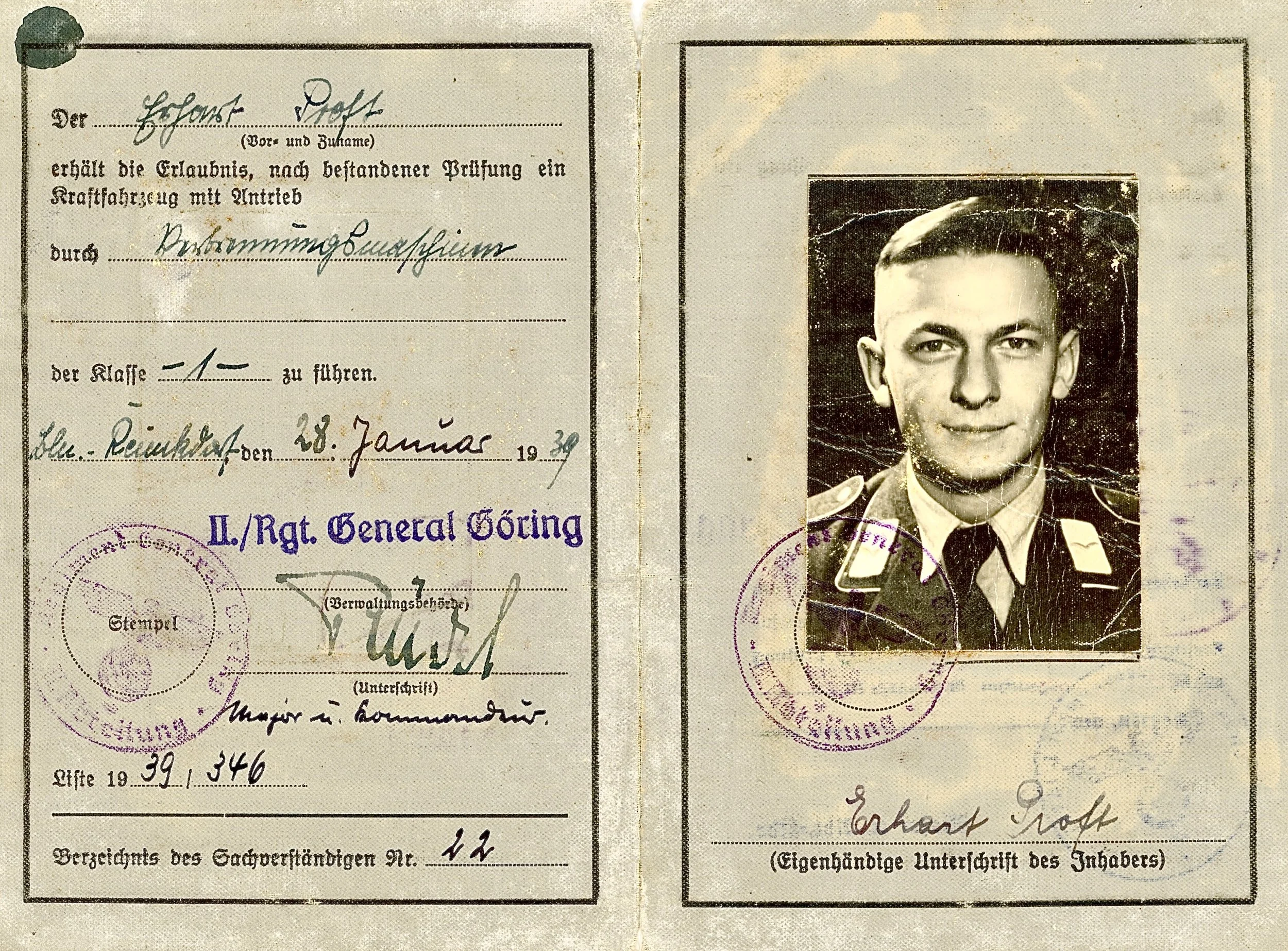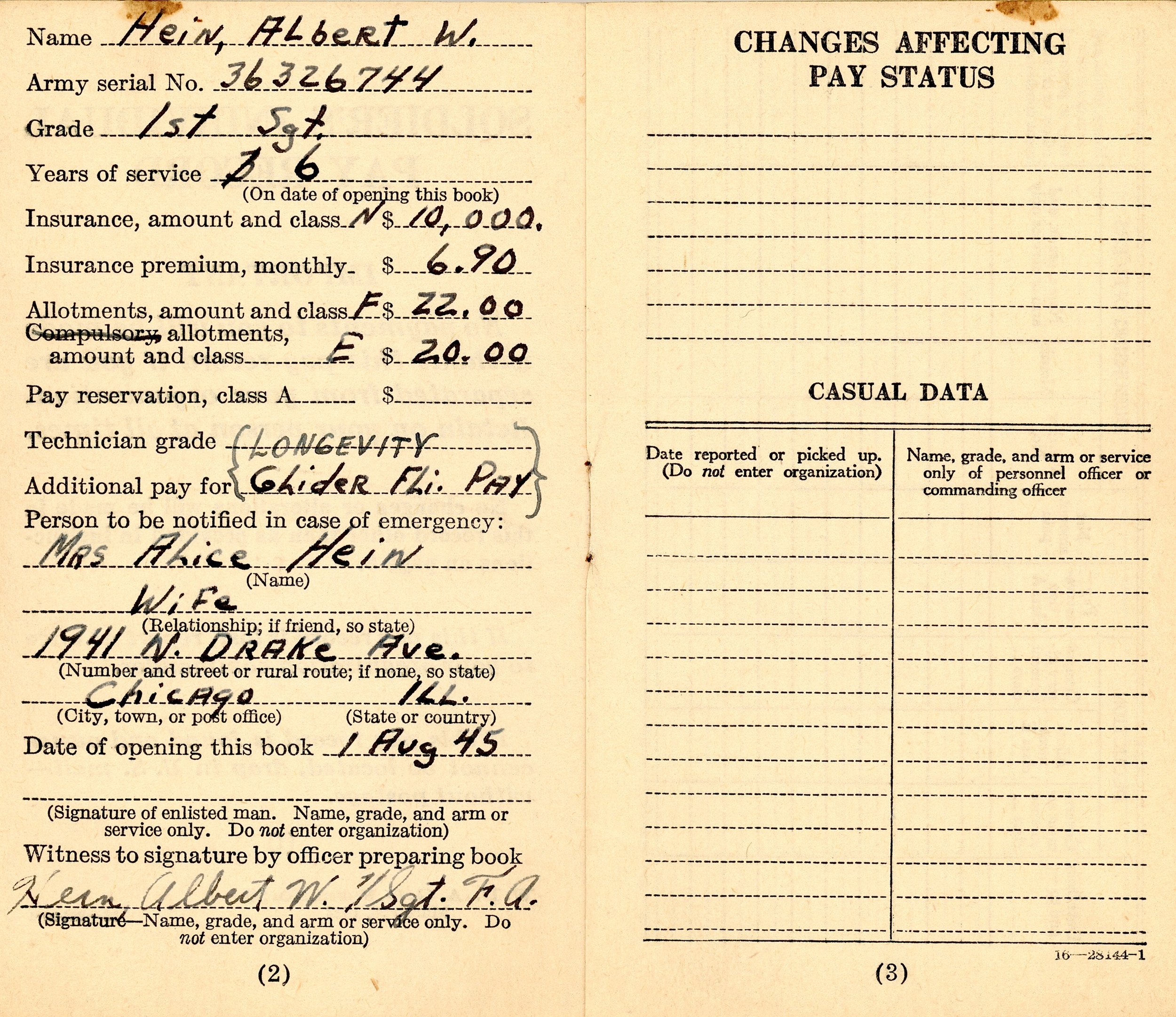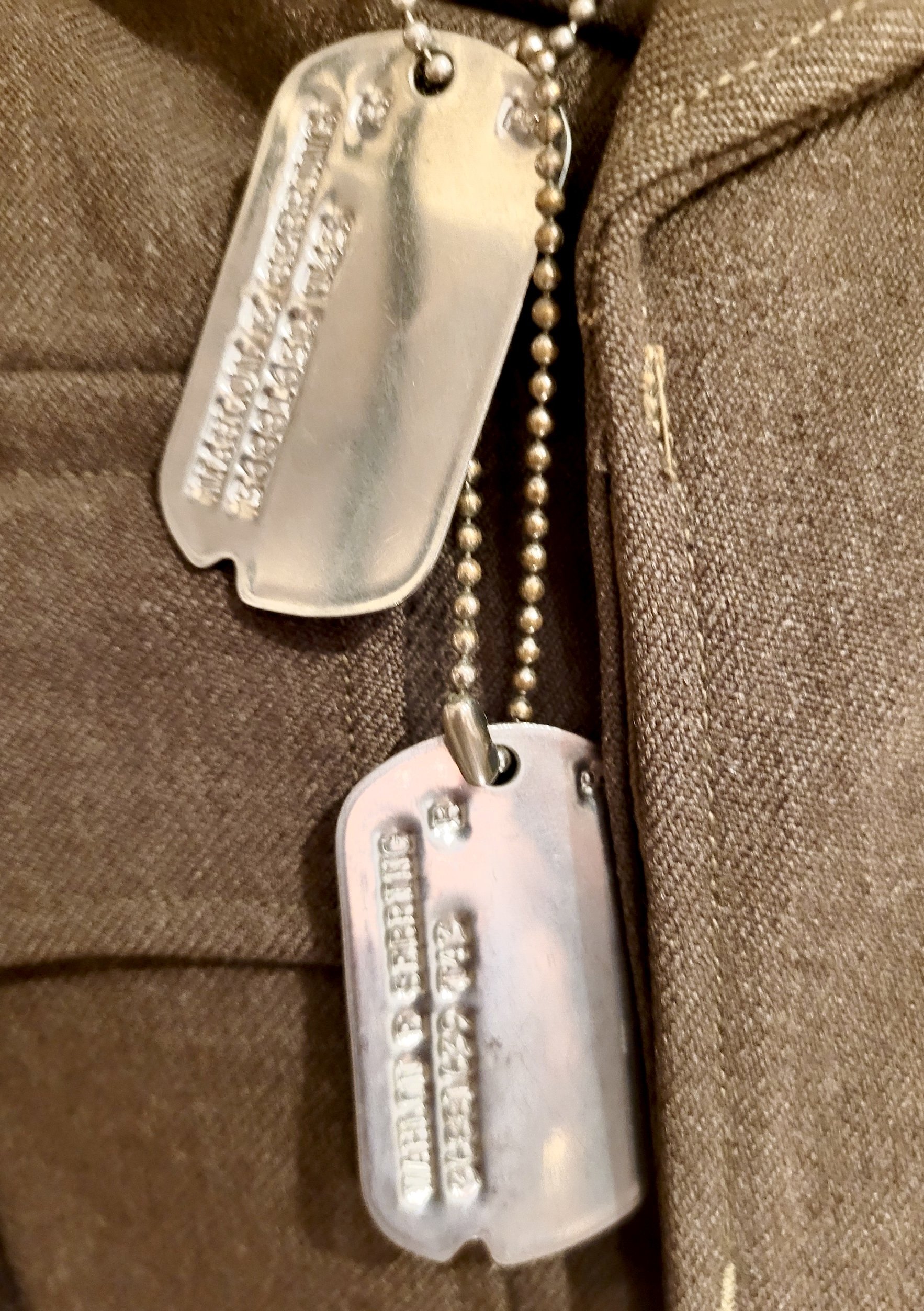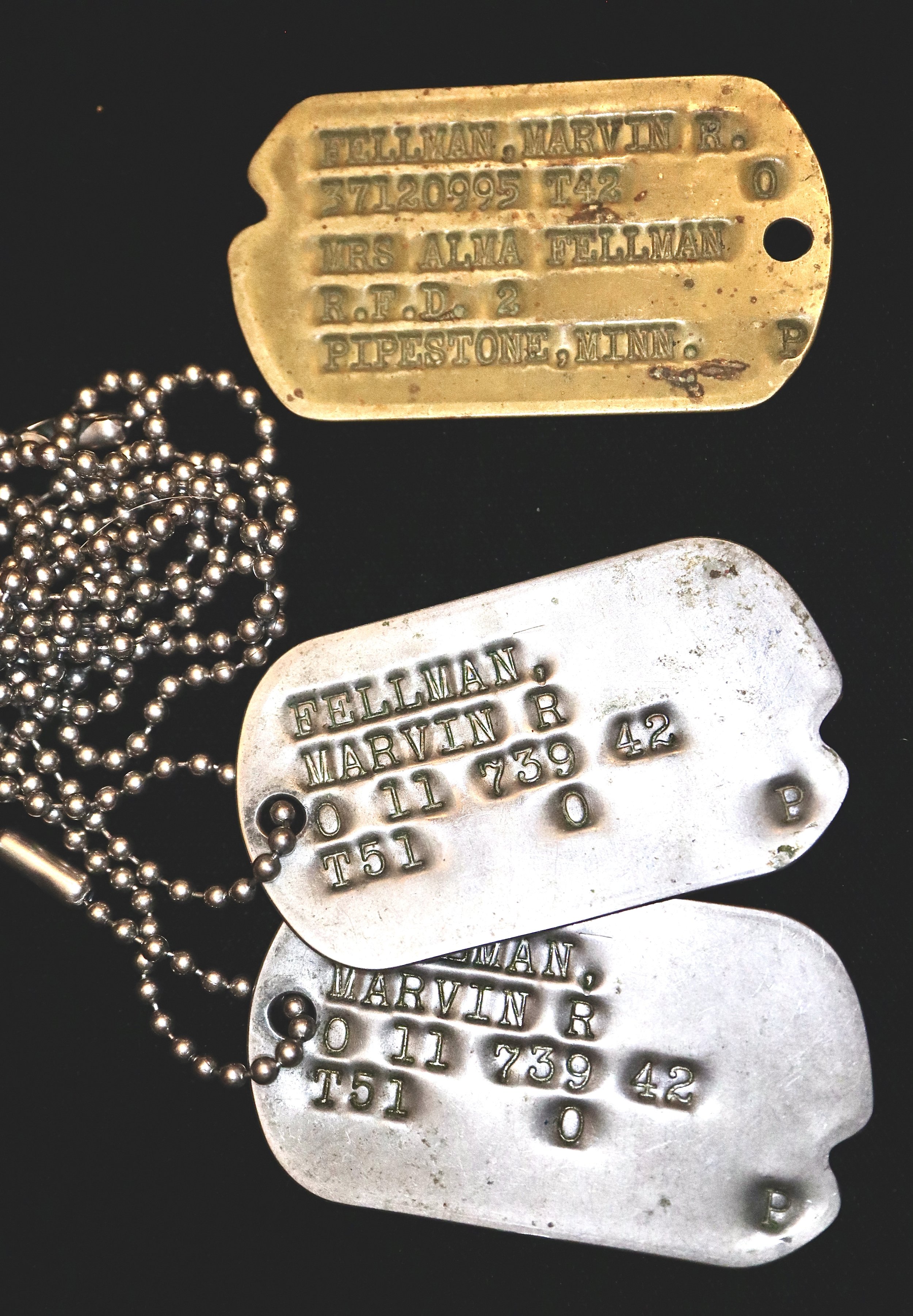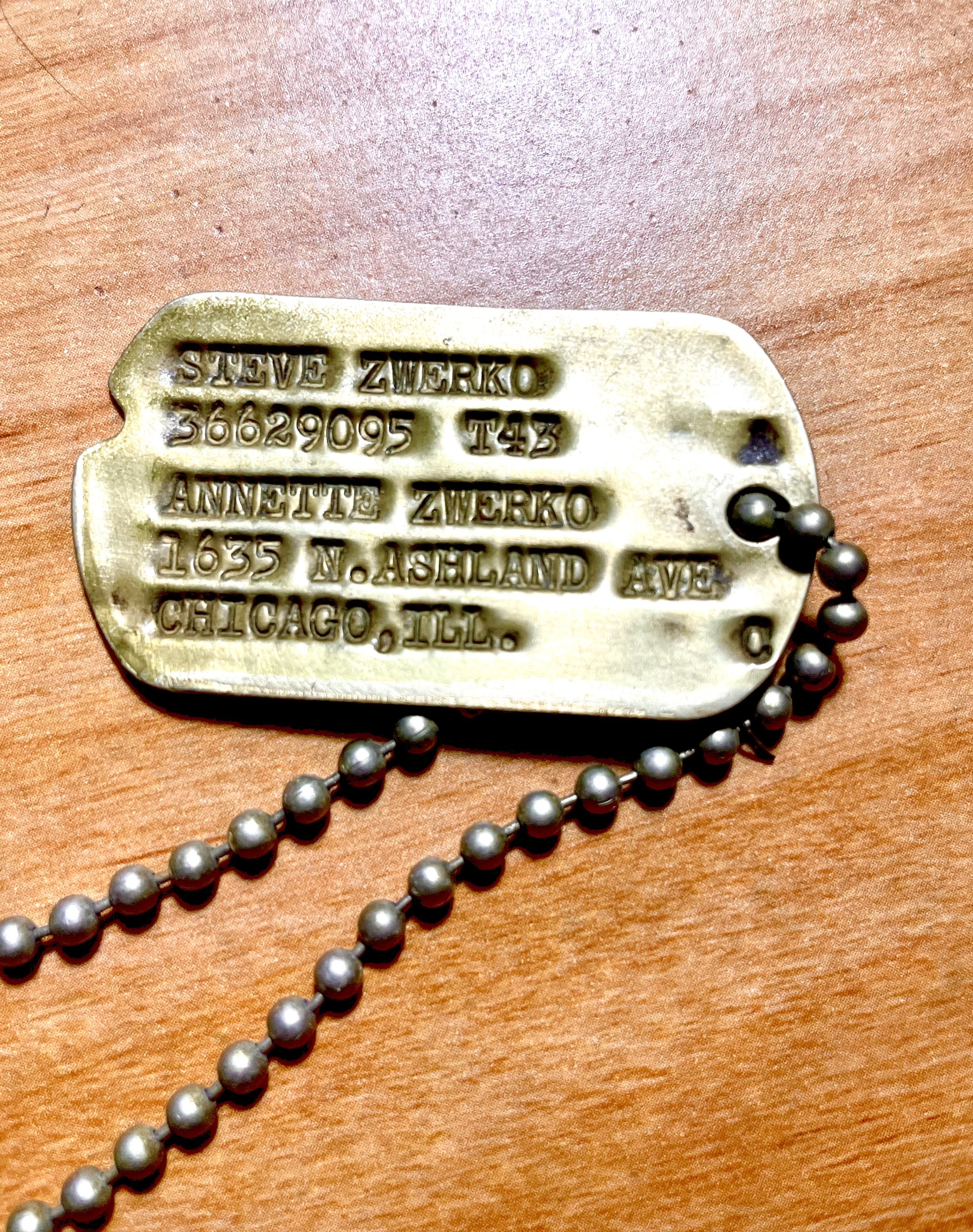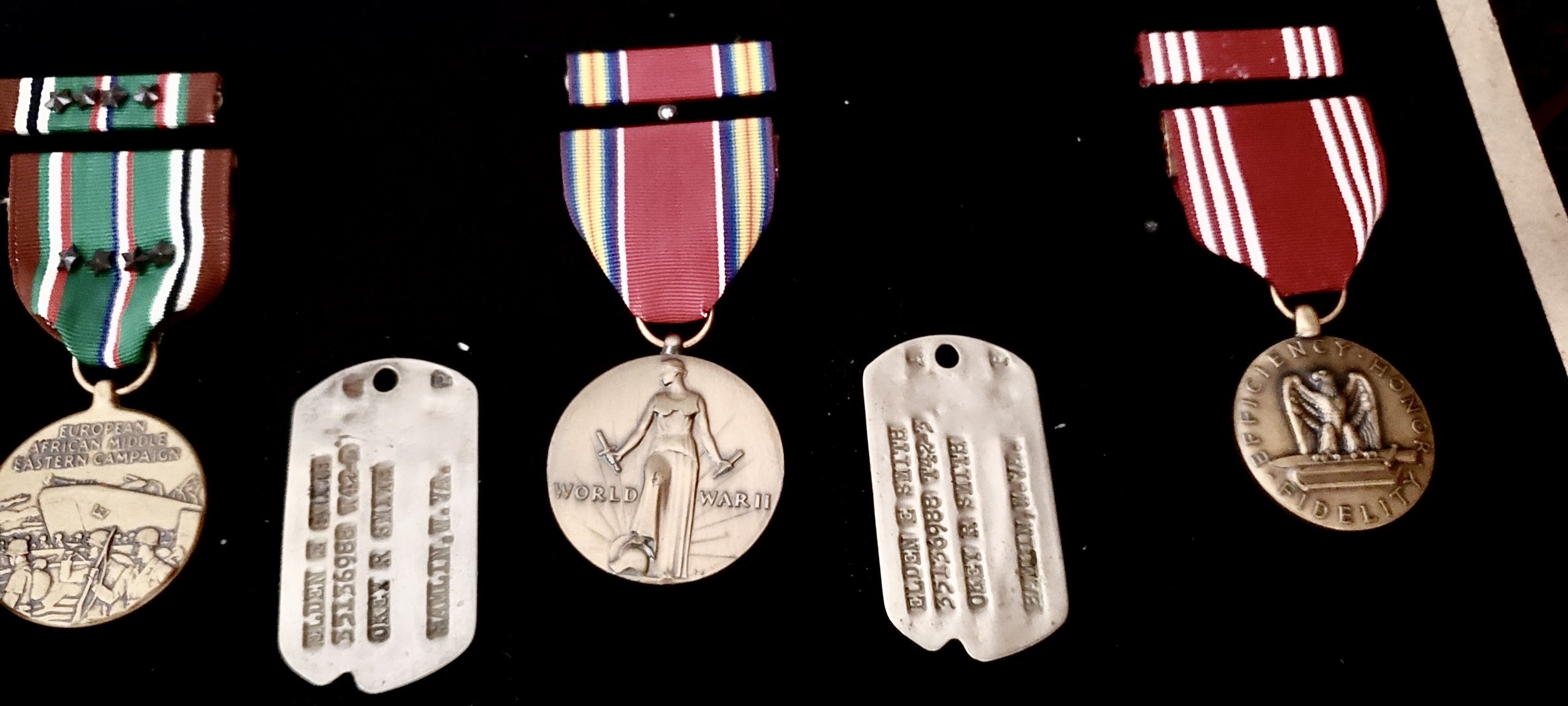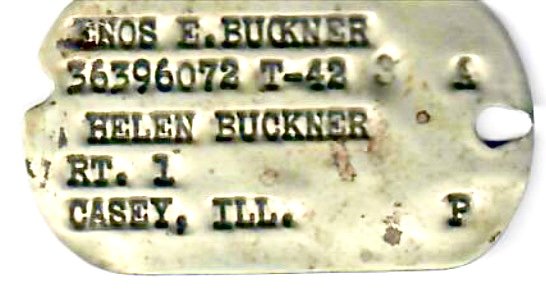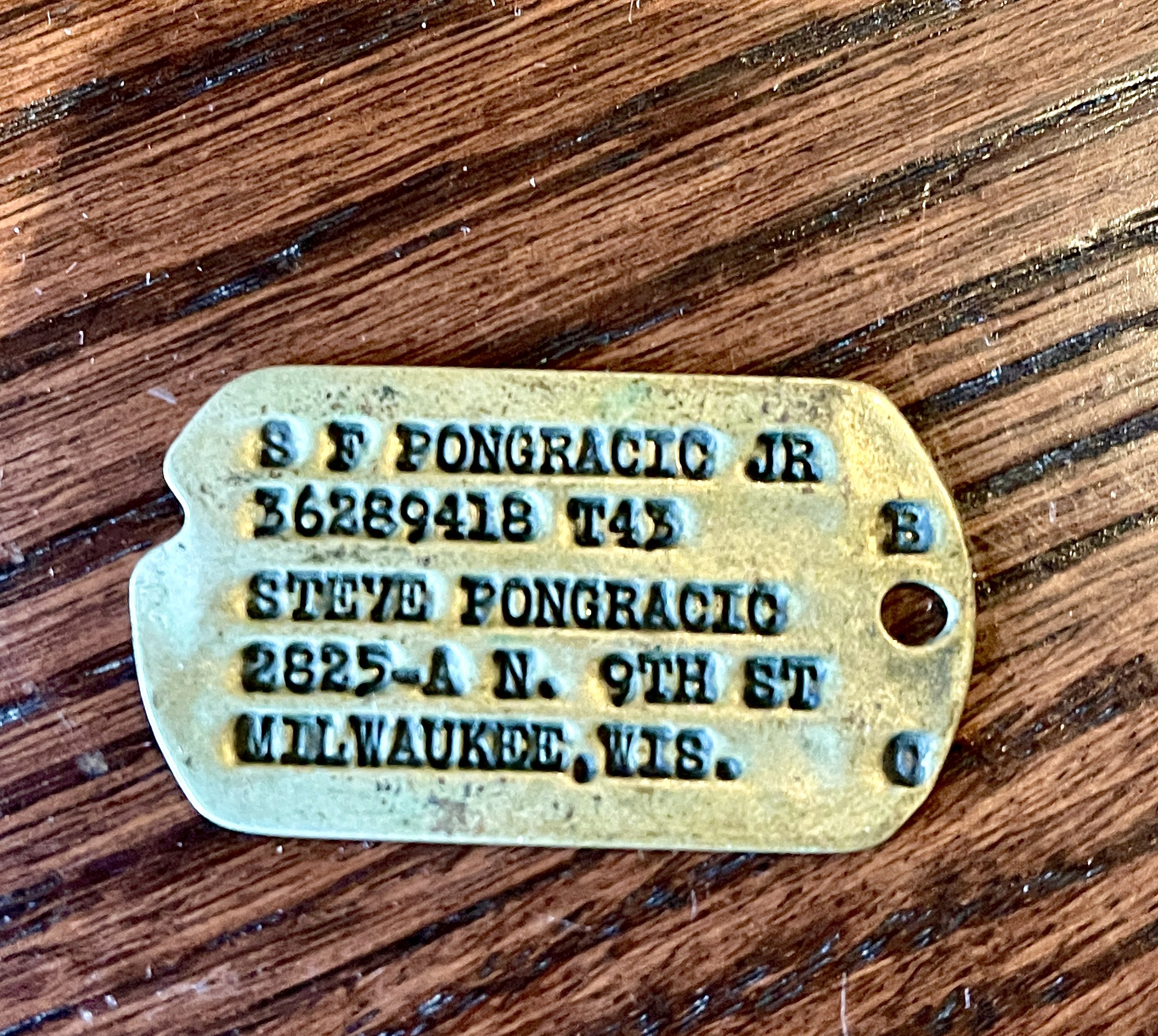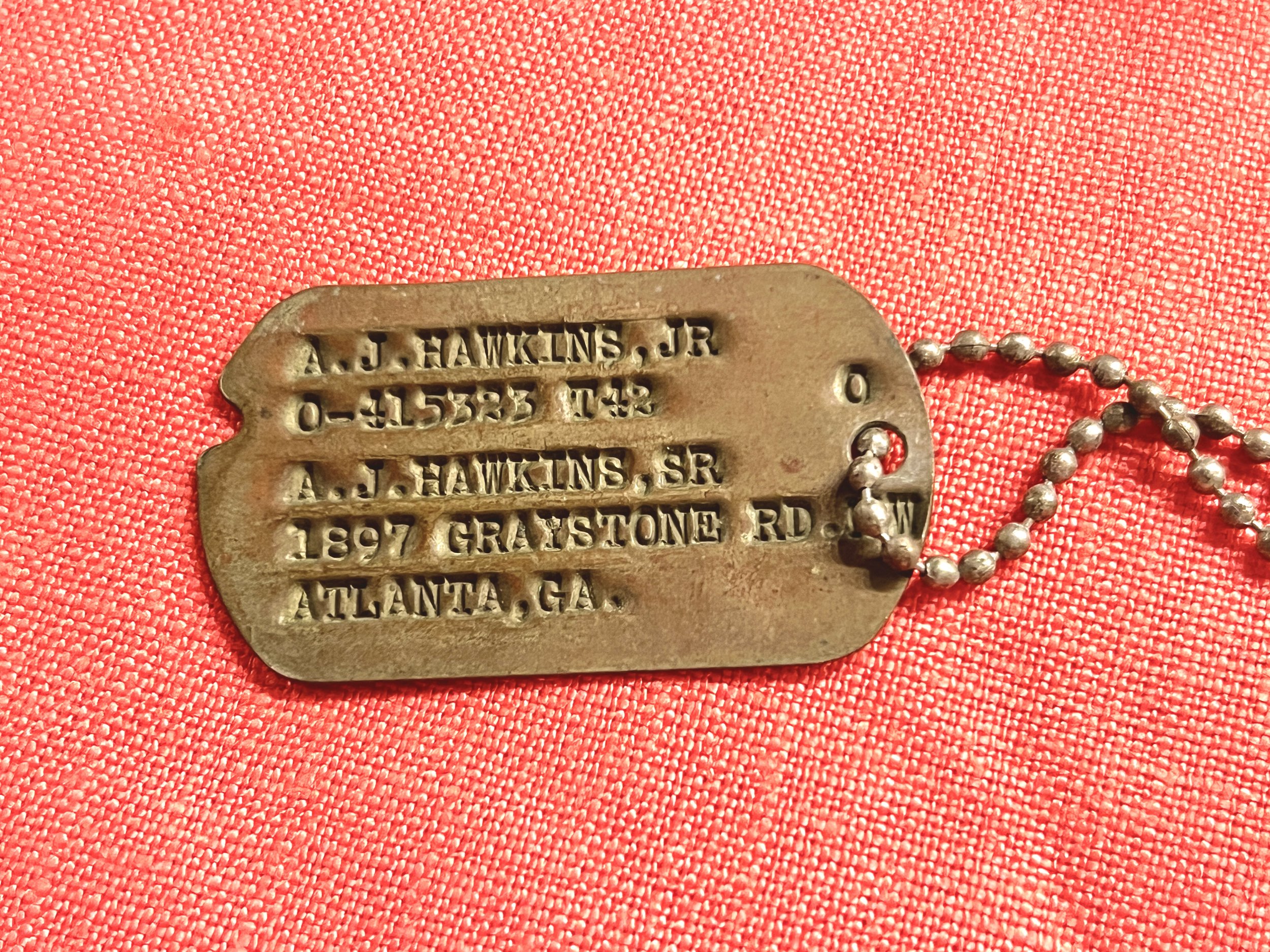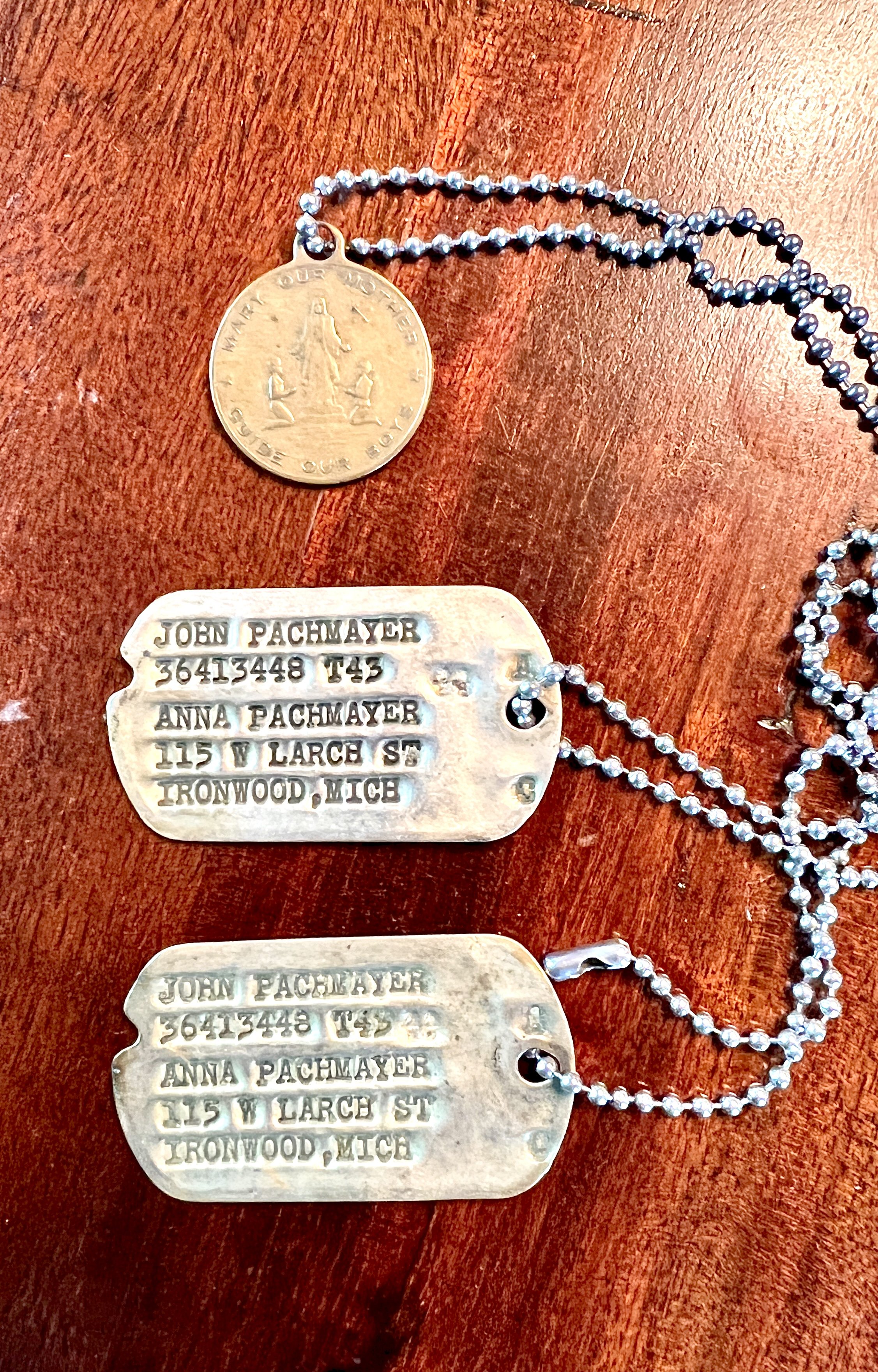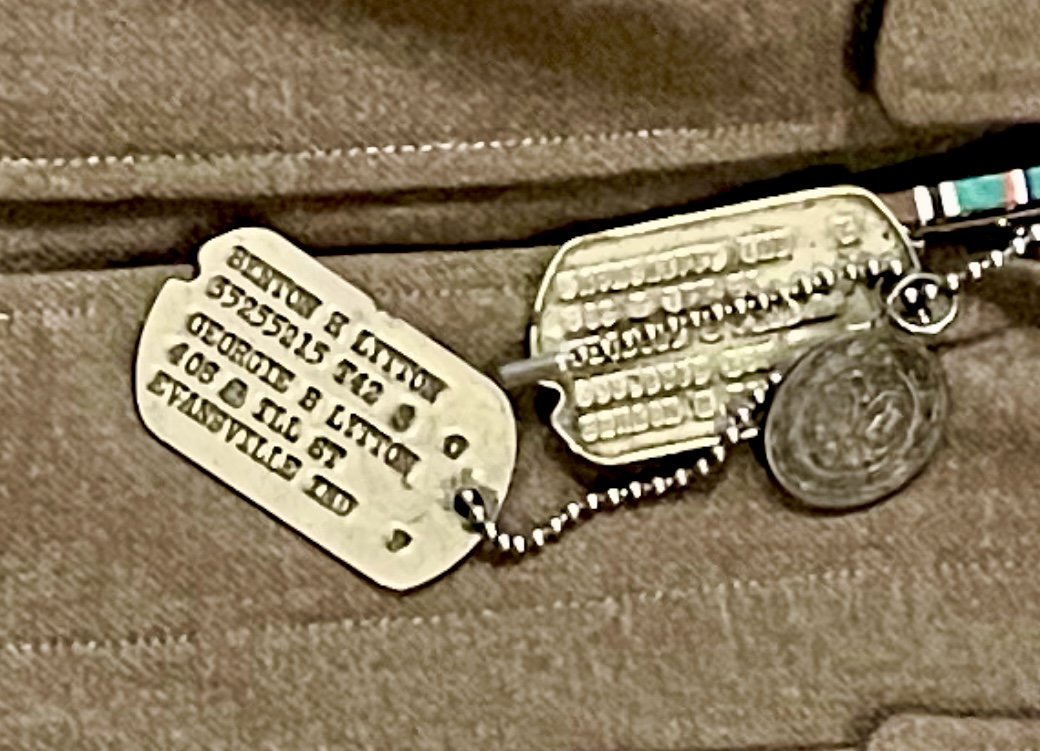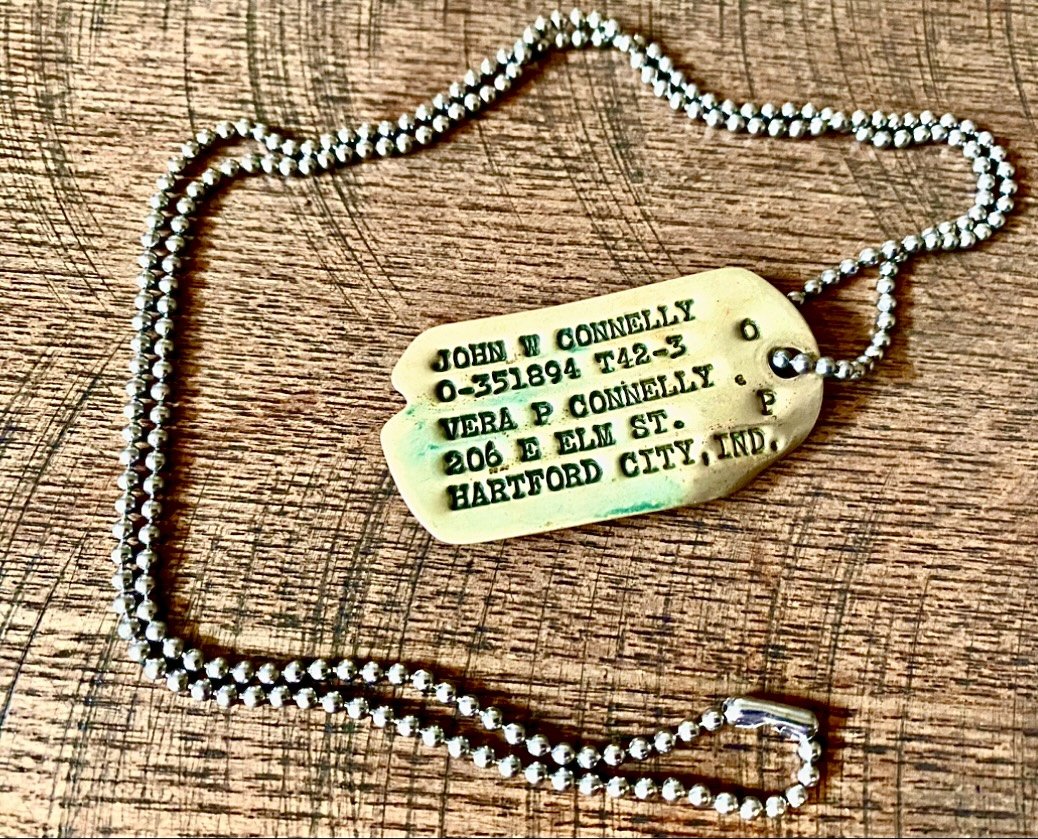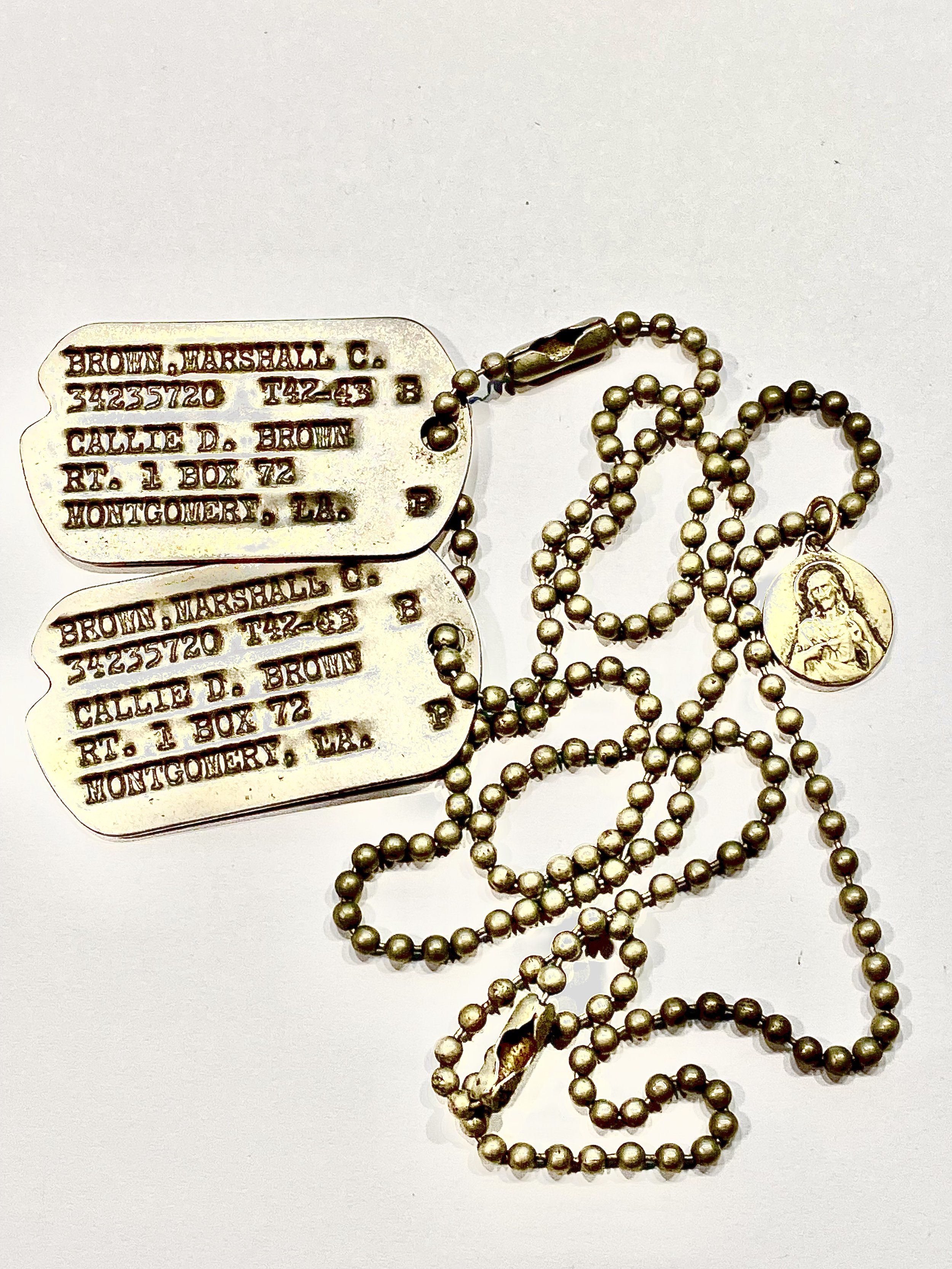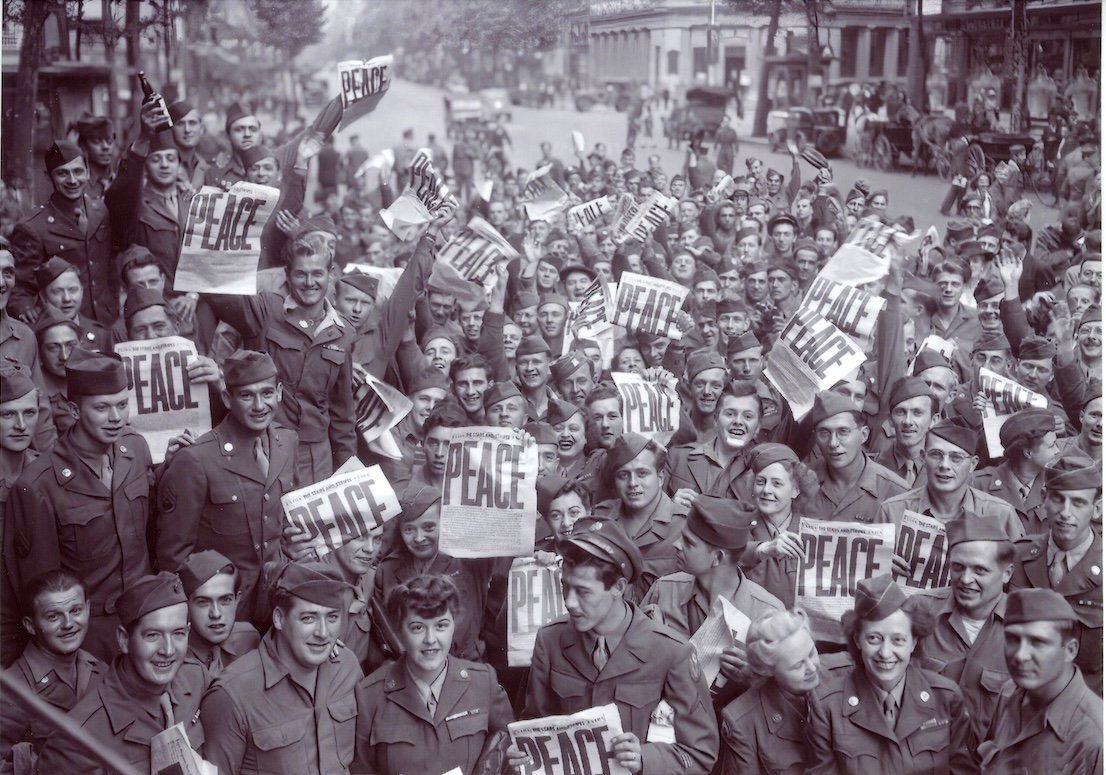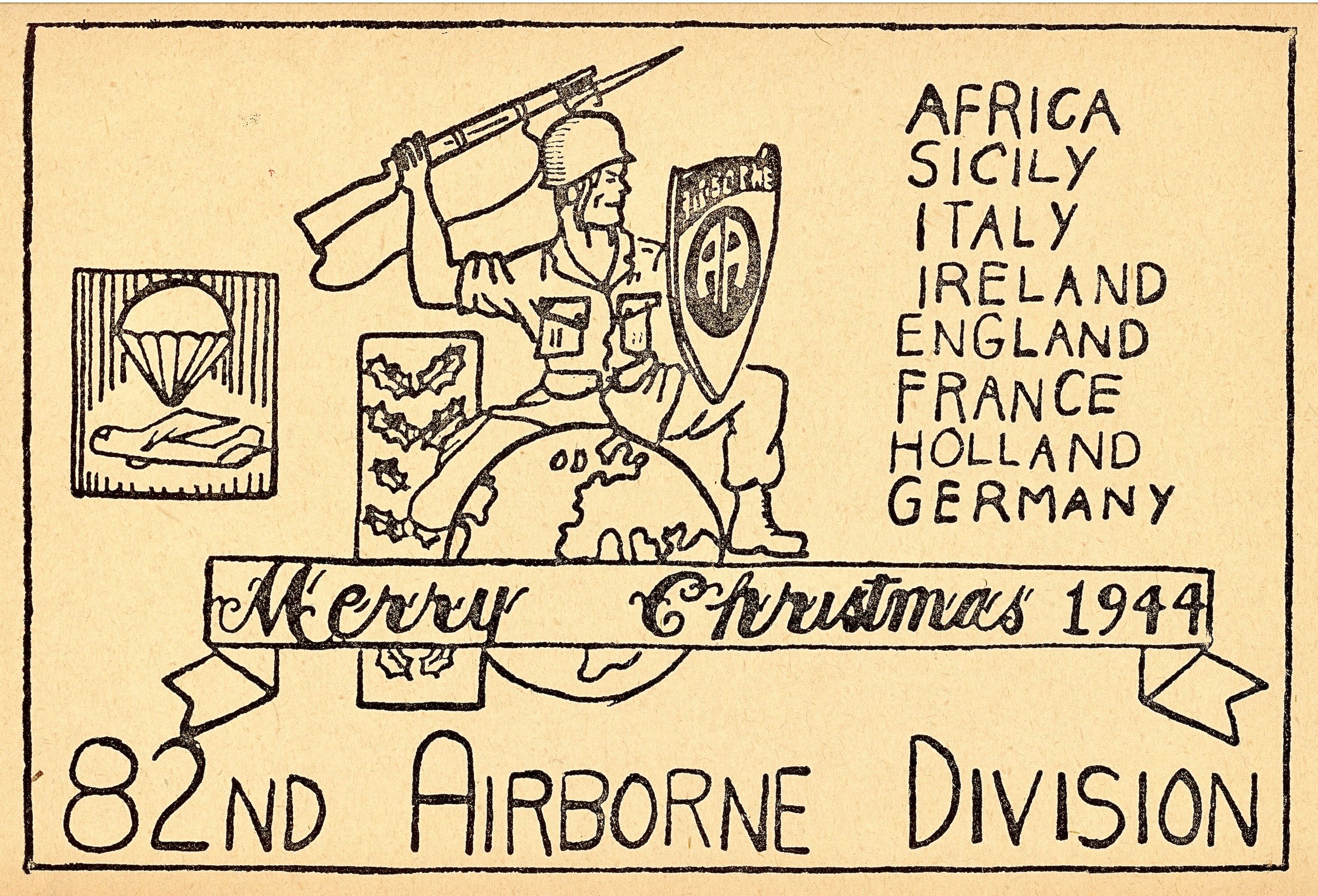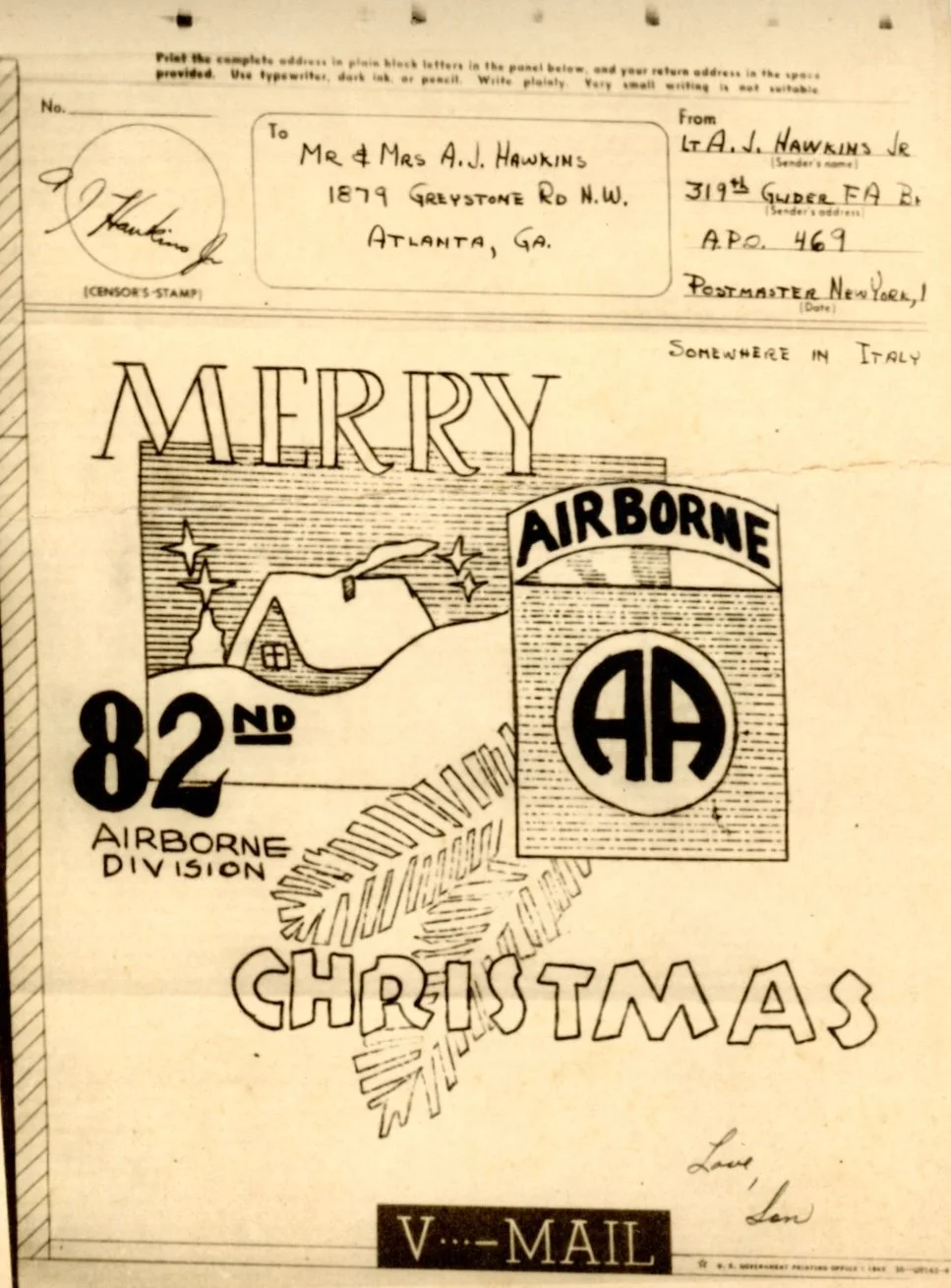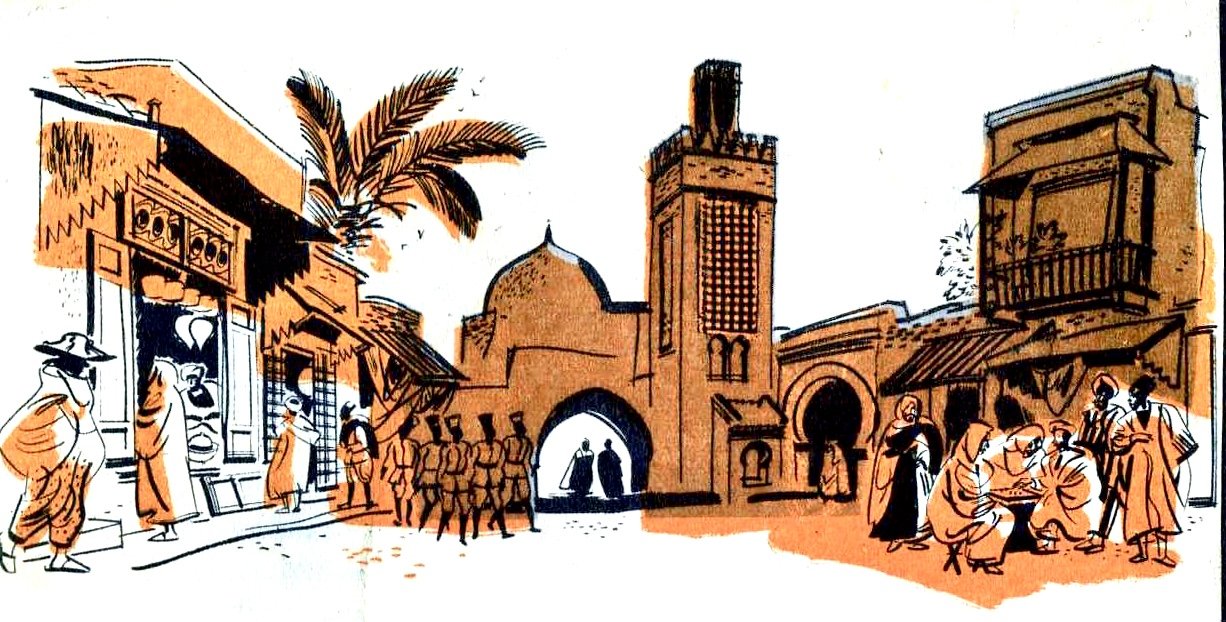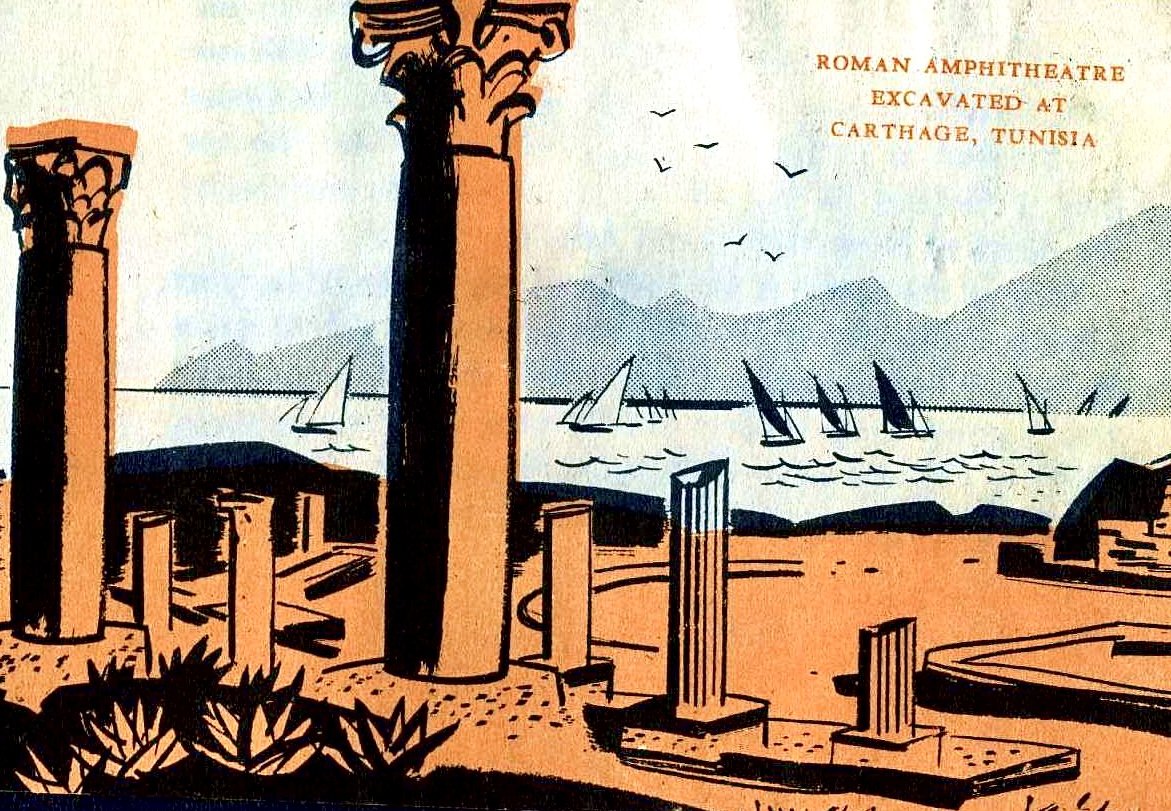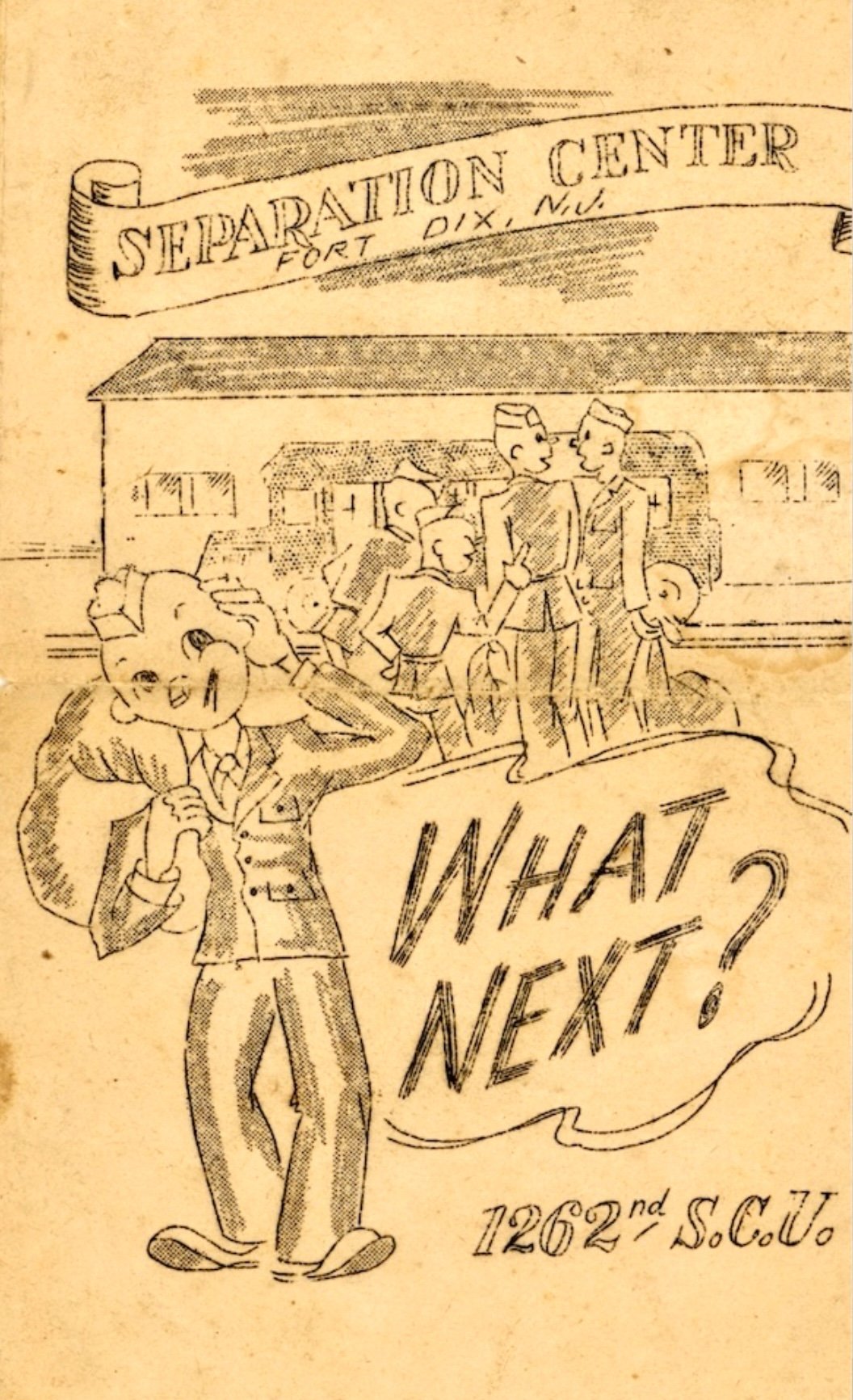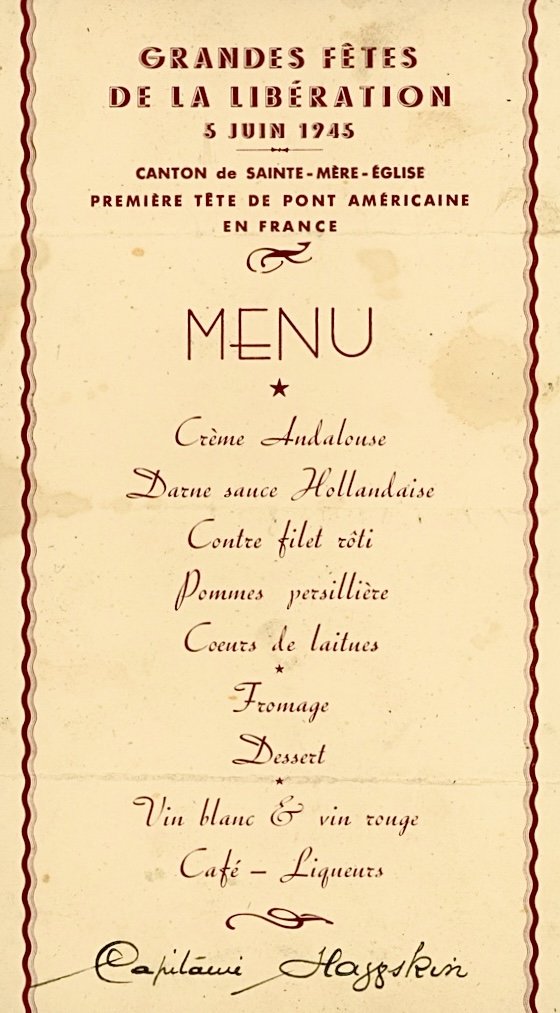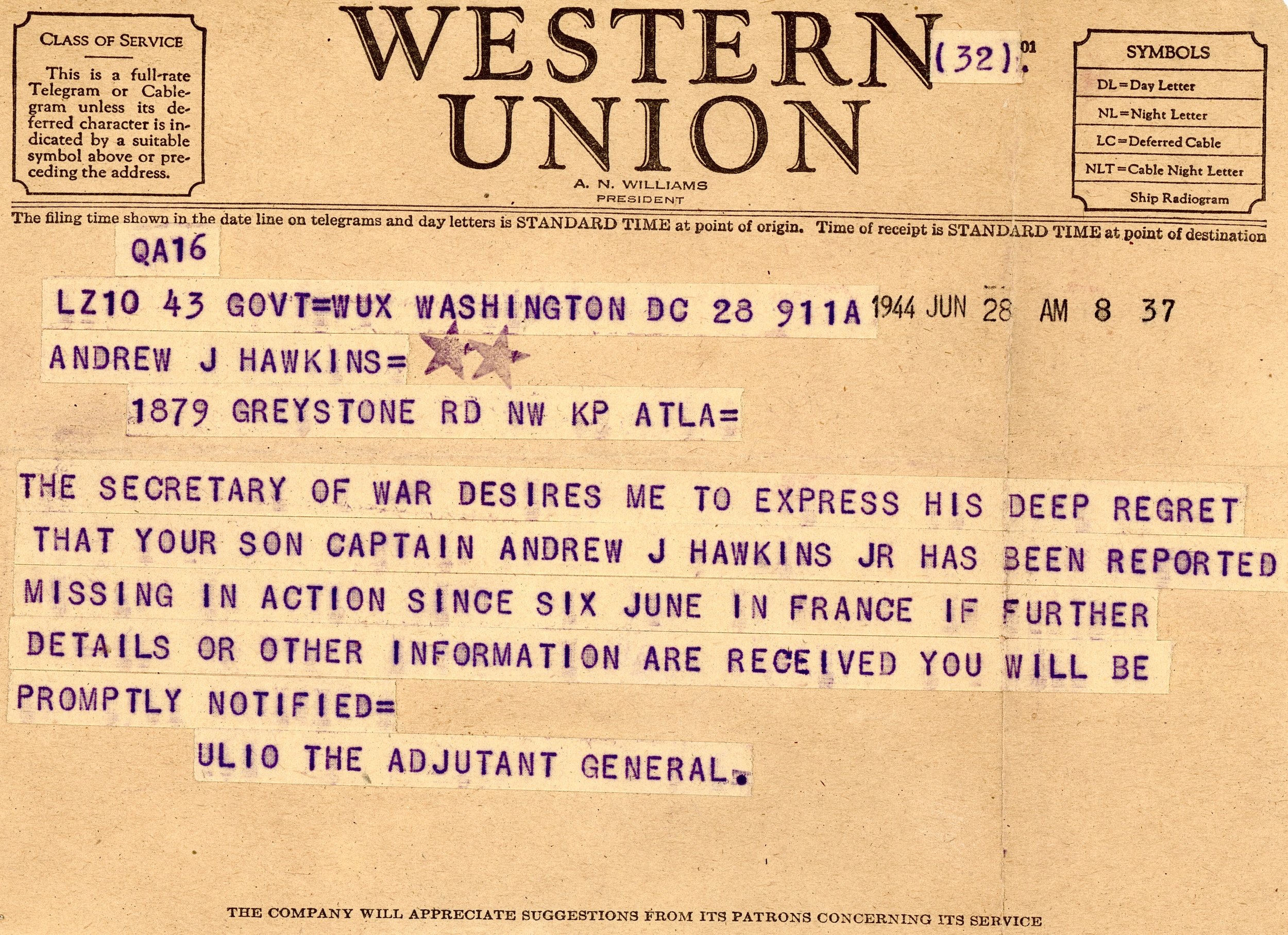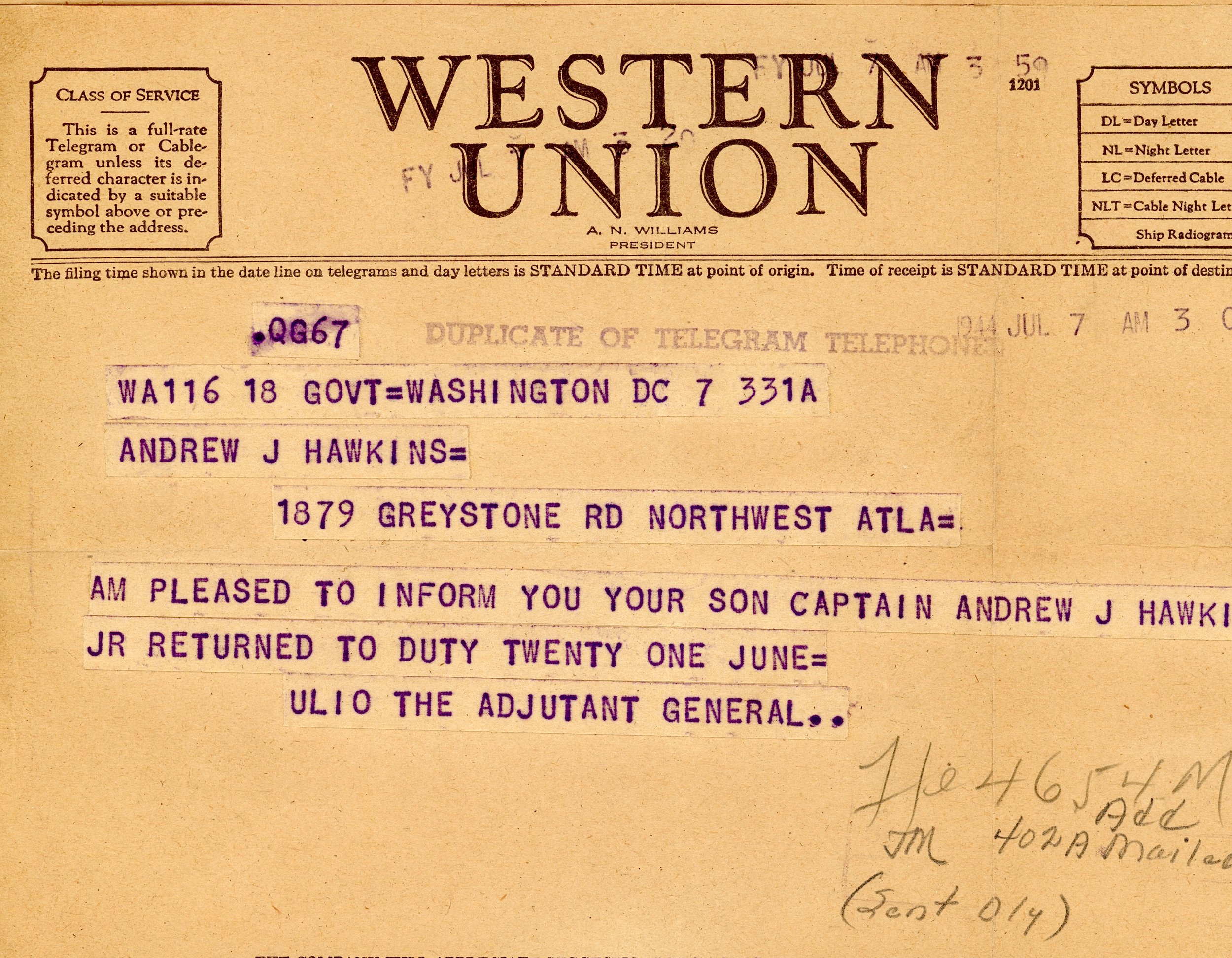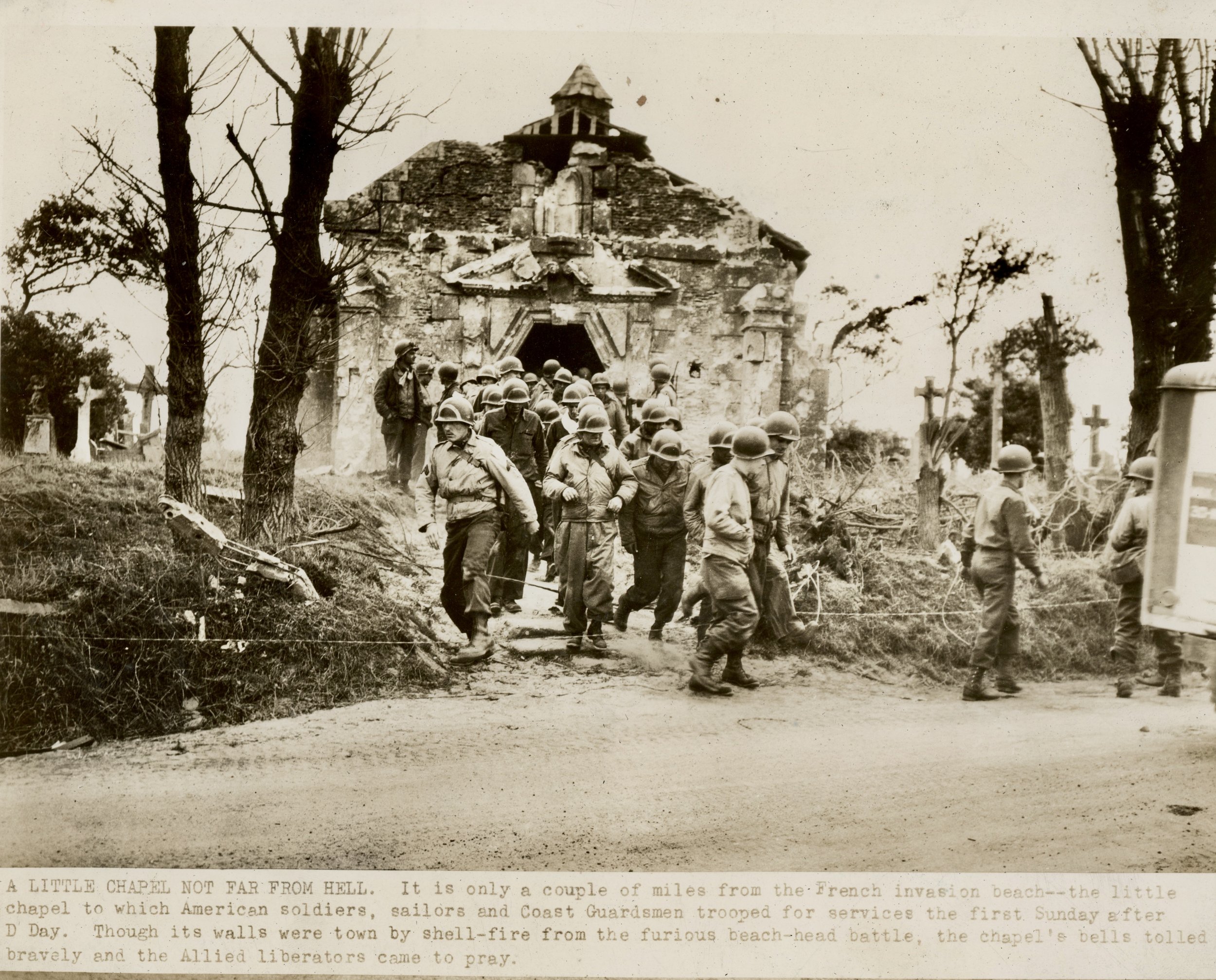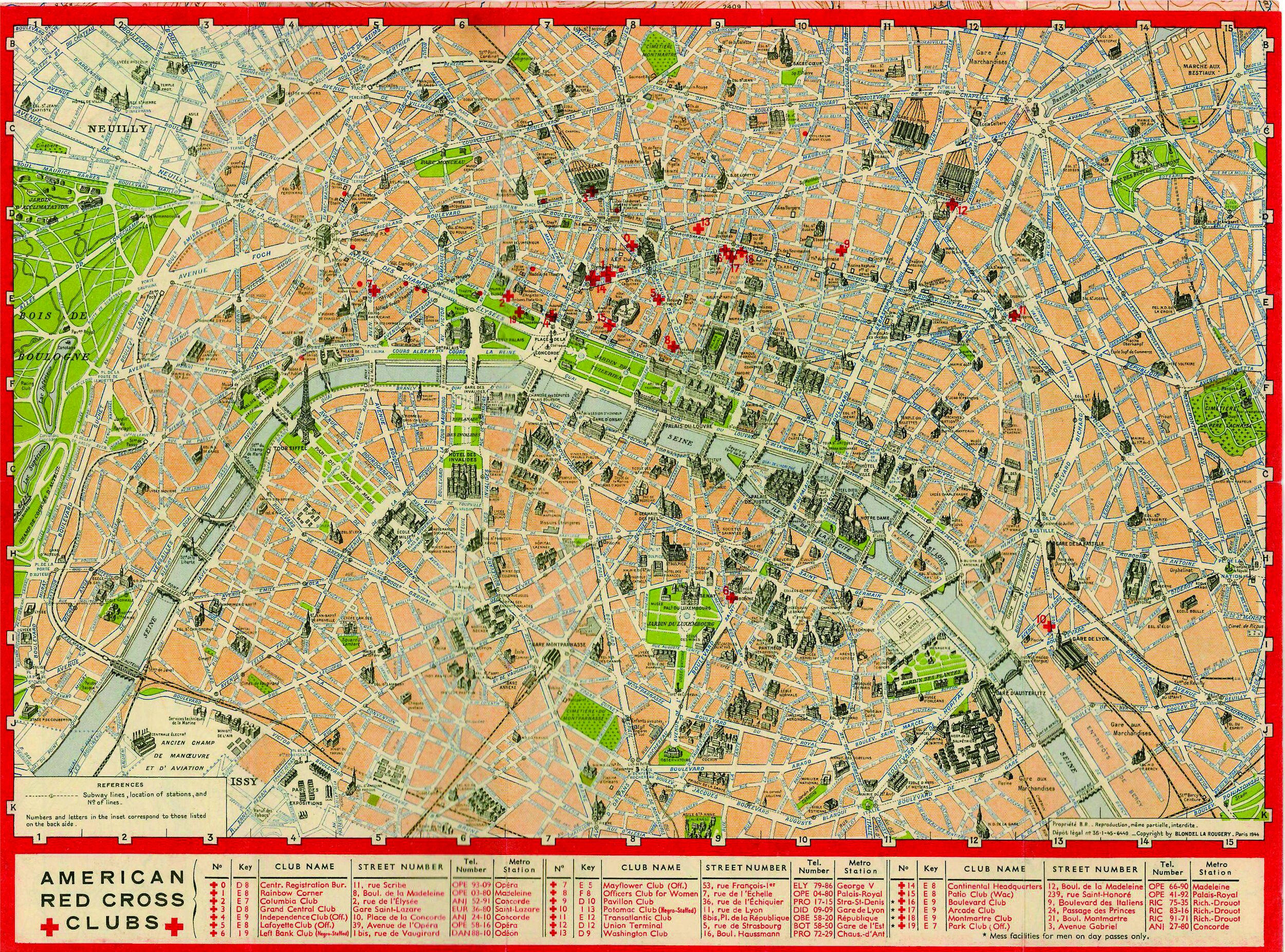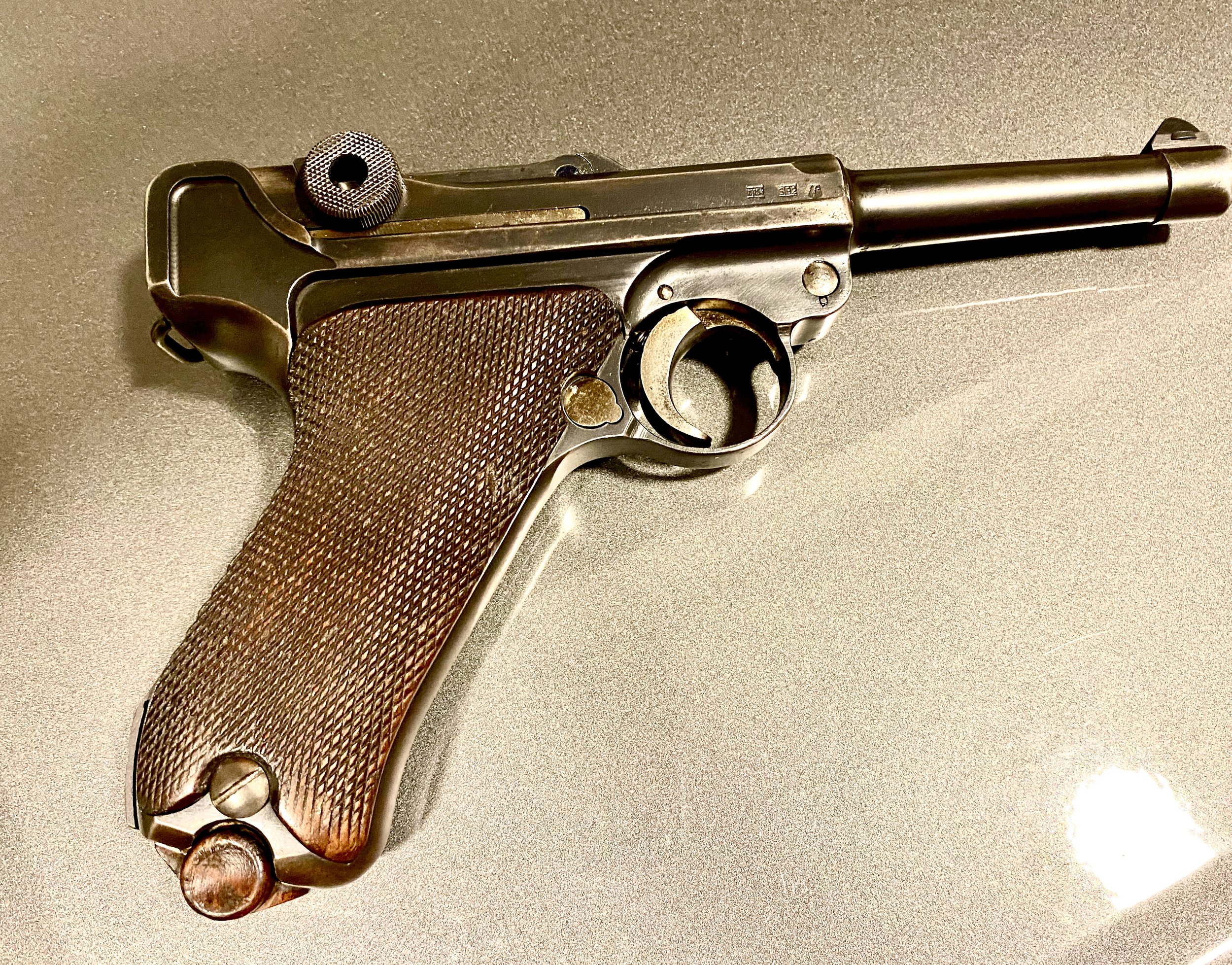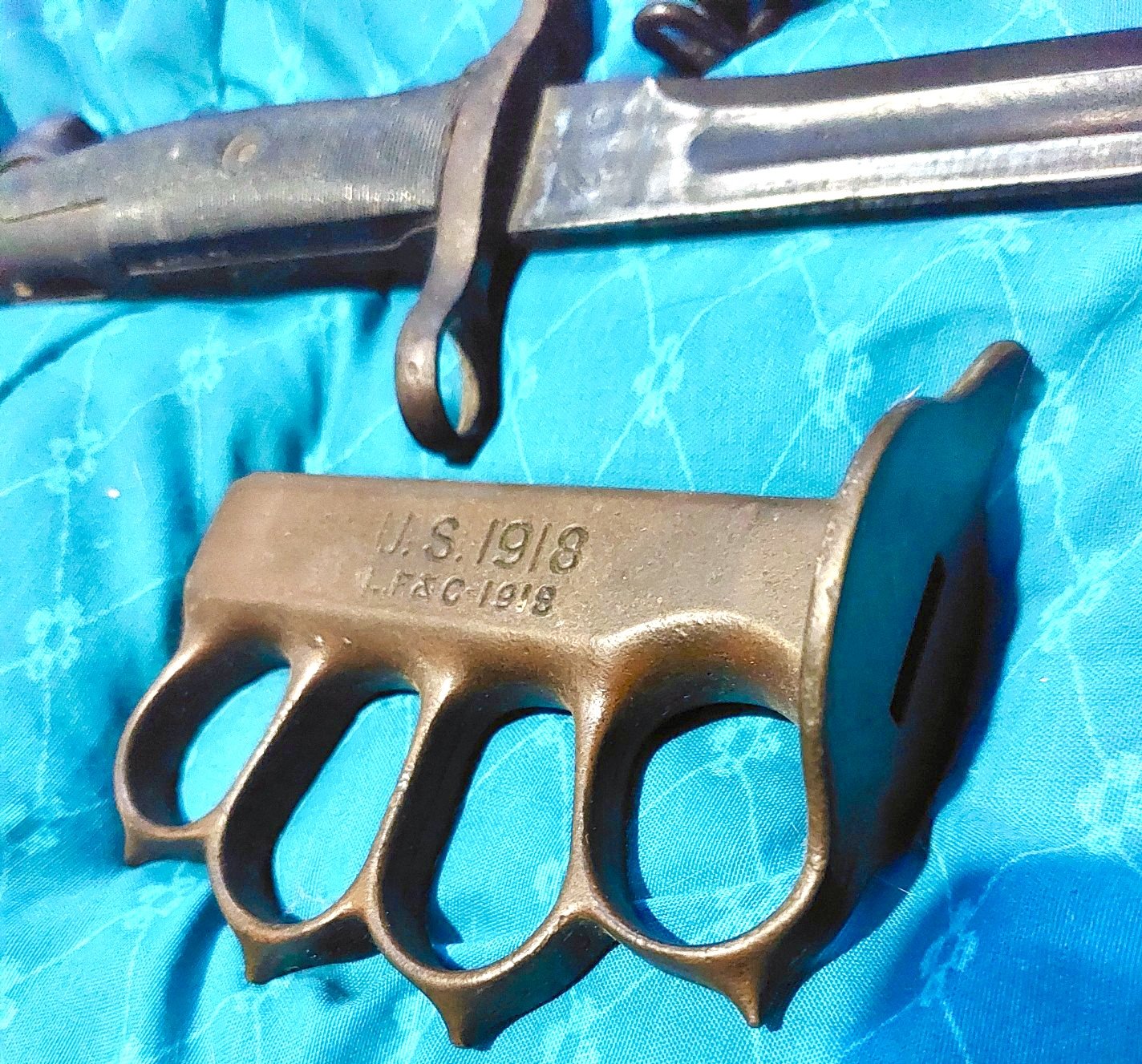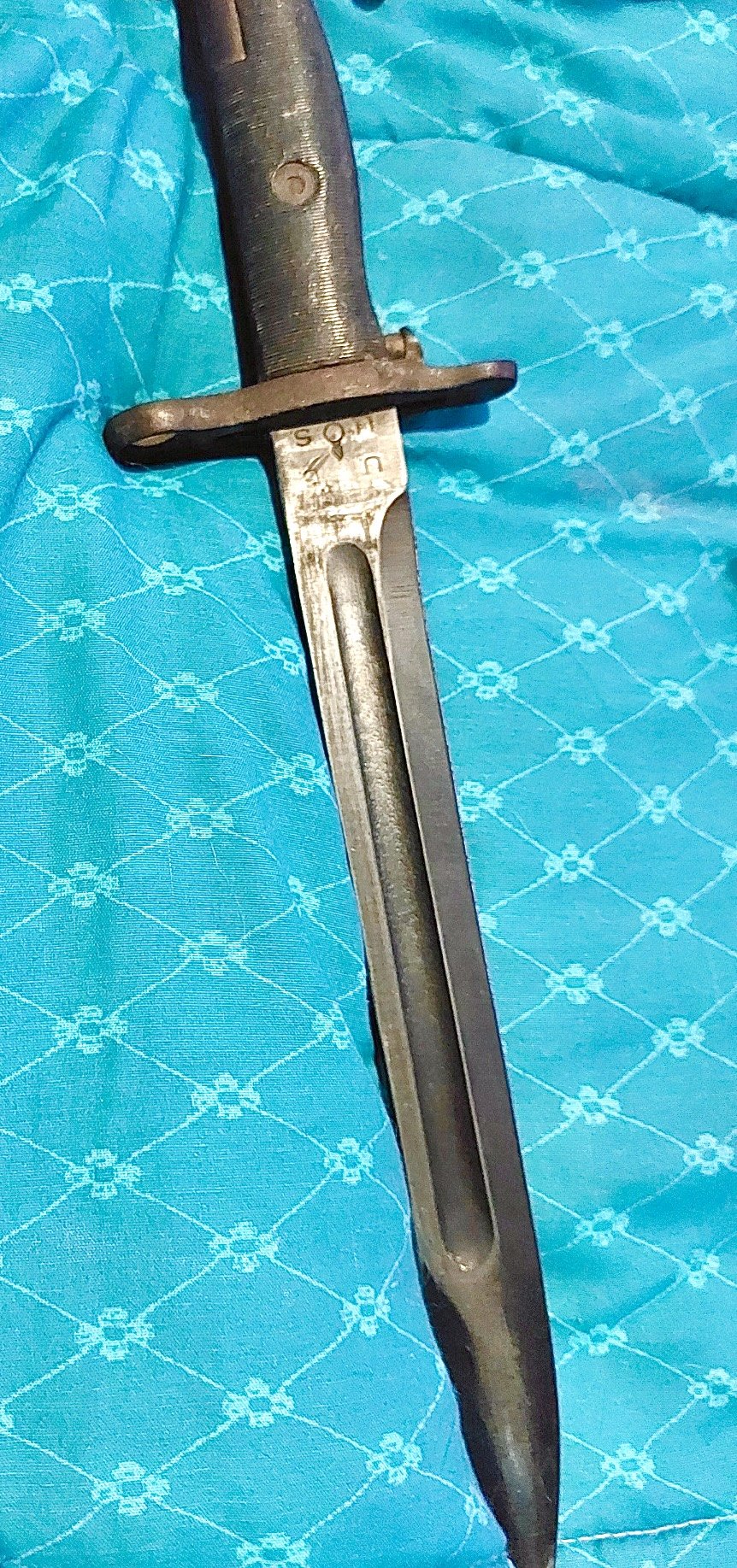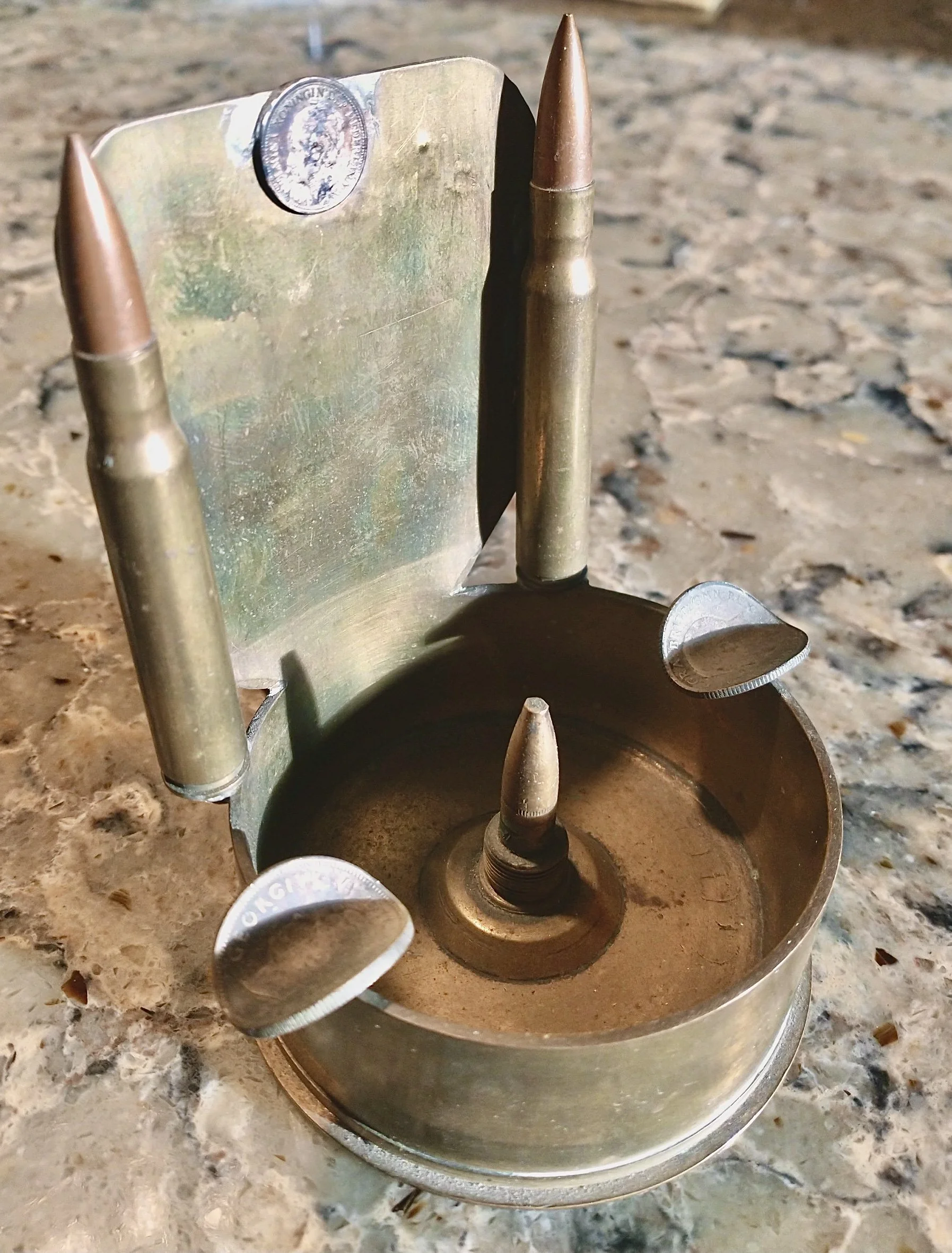Wartime Souvenirs & Memories
Occupational duties and searching of homes for weapons and contraband in the Netherlands and Germany became commonplace in early 1945.
The 319th searched occupied and abandoned homes where American soldiers collected souvenirs and keepsakes. Items were shipped home while others were confiscated by officers inspecting baggage or during a showdown inspection of barracks.
Of interest were firearms, bayonets, silverware, Nazi printed materials, belt buckles, helmets, uniforms, linens, even wooden shoes. Souvenirs collected while on furlough in Paris, London, Glasgow, Brussels and the French Riviera found a place in the soldier’s overseas bag and home coming. Foreign currency, post cards, maps, jewelry, military documents, rations, newspapers and receipts were popular items as well.
Army issued pocket guides for foreign languages, travel and the “The story of the 82nd Airborne Division,” were also popular.
Souvenirs include:
German Propaganda, Uniforms, Soldier Credentials, Dog Tags, Poetry and Other Documents
“All American” 82nd Airborne Soldier Guide & Autograph Books
Postcards, Letters, Photos, Events, Western Union Telegrams, Envelopes
Soldier’s Pocket Guide to Paris and Cities of Northern France
Firearms, Cameras, Flags, Rugs, Helmets, Cameras, Bayonets, Trench Art and Other Hardware
German Propaganda, Uniforms, Soldier Credentials, Dog Tags, Poetrty and other Documents
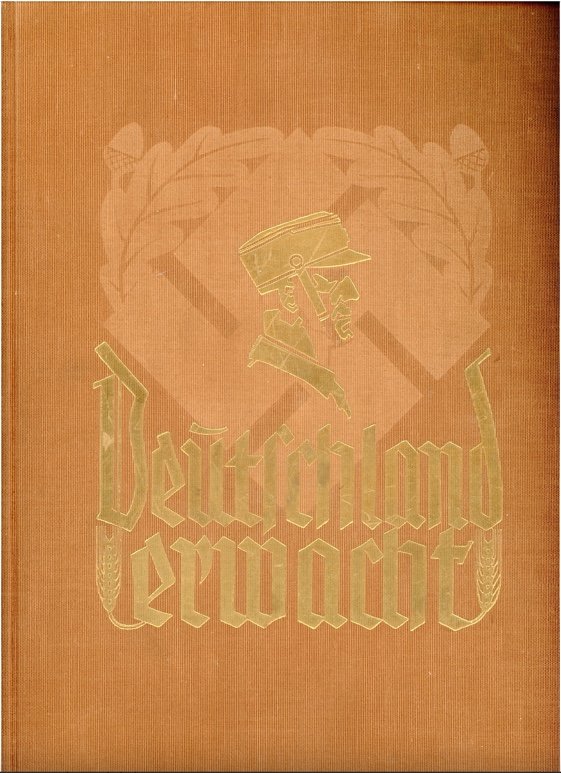
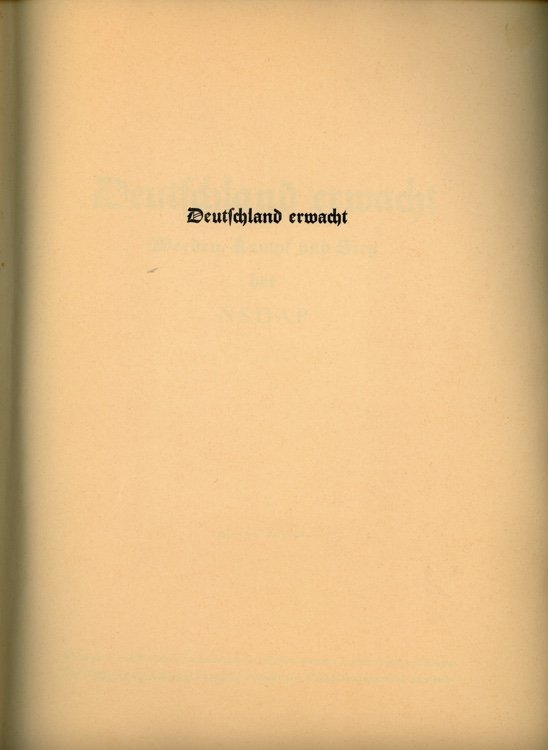
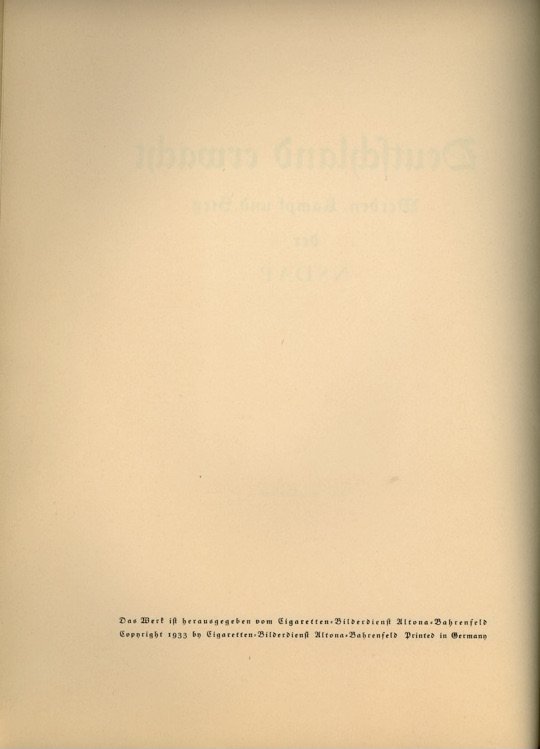
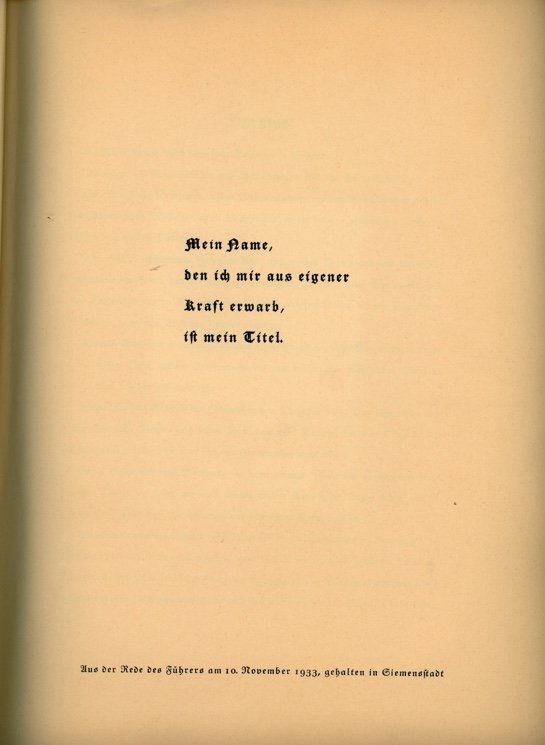
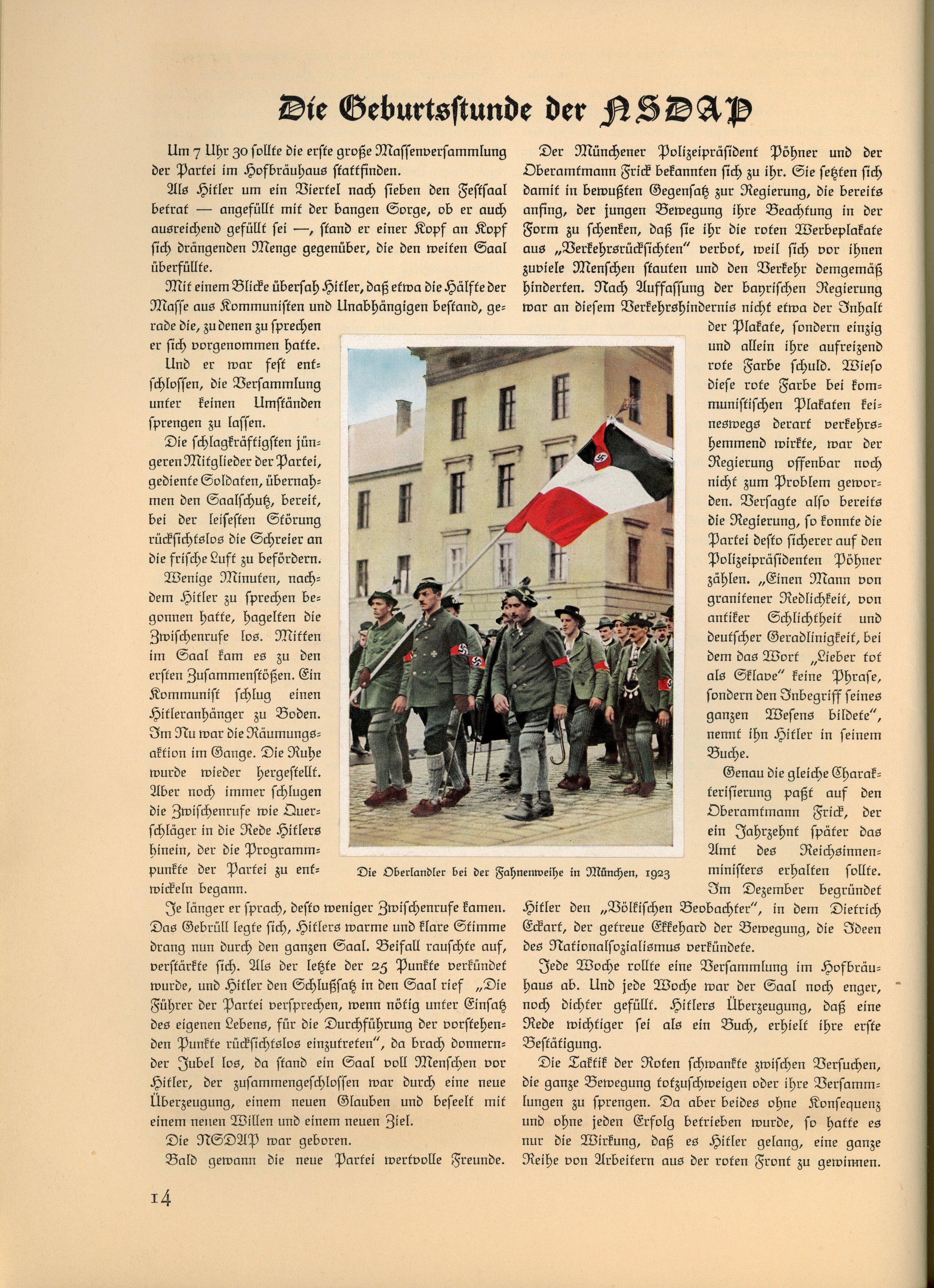
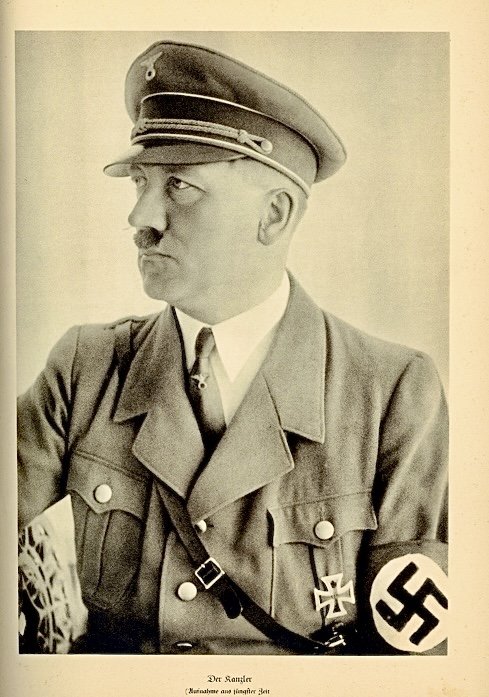
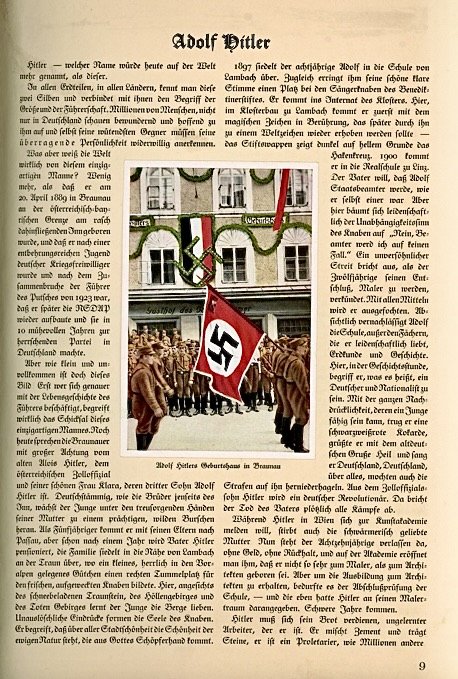
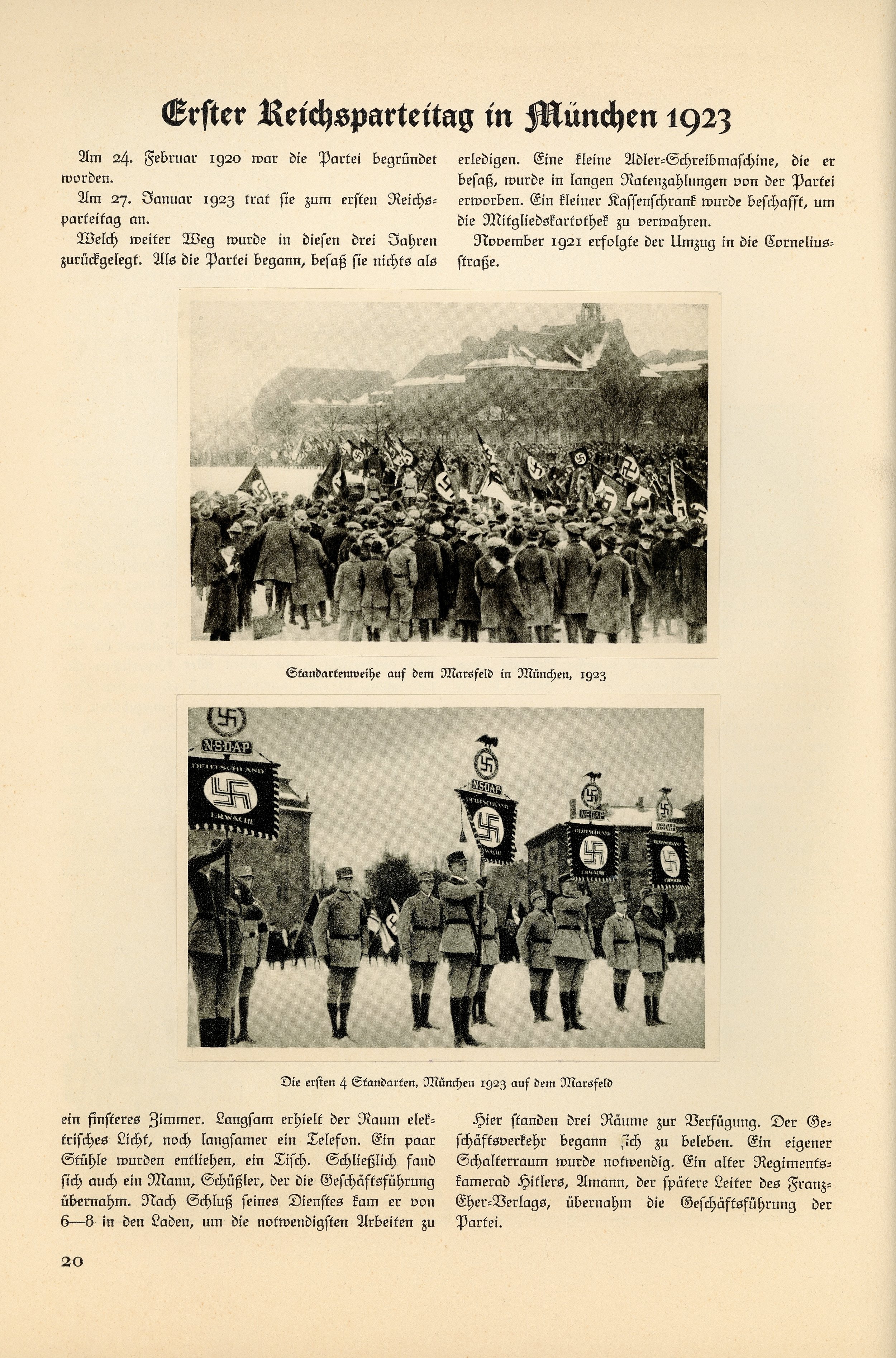
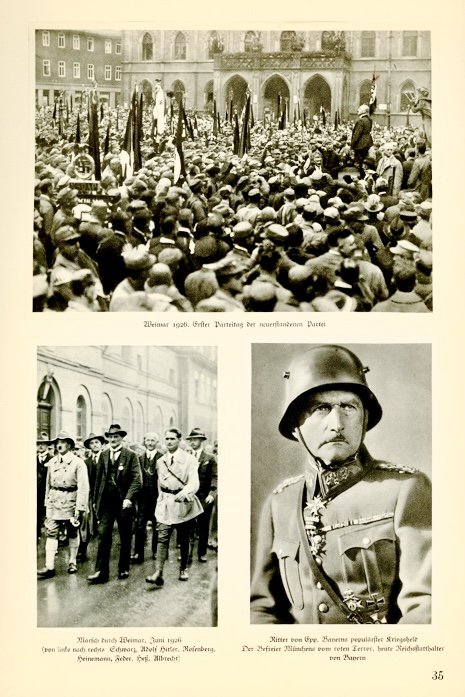
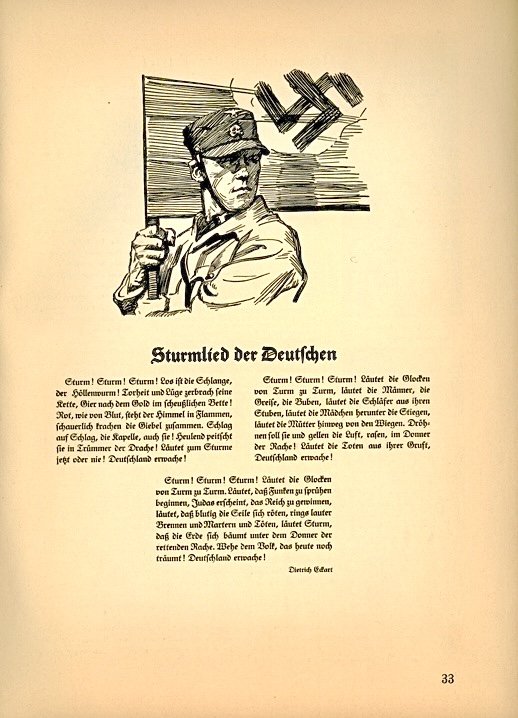
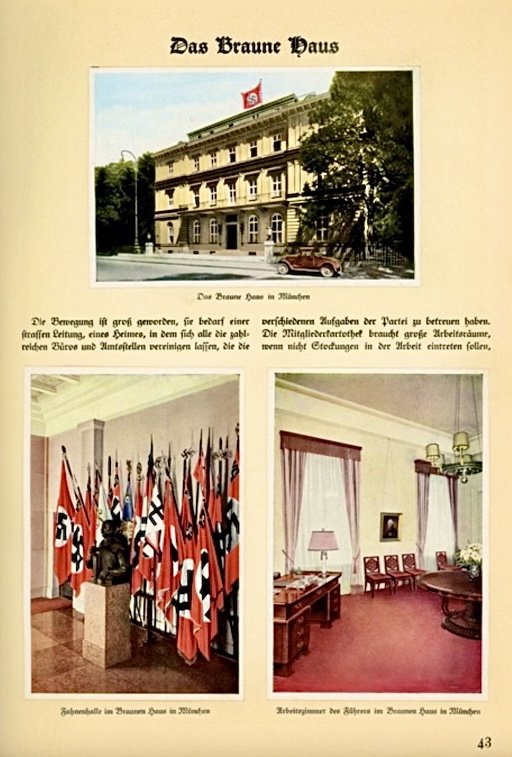
One enlisted man from A-Battery shipped home a copy of “Deutschland Erwacht” (Germany Awakens). This is a cigarette picture book (see above) tracing the history of the NSDAP (Nazi Party) from its early history to 1933. The book is the Nazi Party's tribute to itself and consists of German text, illustrations in color, black & white photos pasted in, and a fold-out photo taken at a Nazi Party rally in Nüremberg, Germany. The following images are excerpts from this book presented in a slideshow fashion, and side controls to the next or previous image.
Courtesy of the Palmisano Family
“The Pittston Poop”
The SS Pittston was a WW2 Liberty Ship transporting US troops from the ETO to the USA. Below the ship’s own voyage log/souvenir newsletter, December 29, 1945, steaming to the New York City harbor. Presented in a slideshow fashion with side controls to the next or previous image.
Courtesy of the Mahlon Sebring Gamily
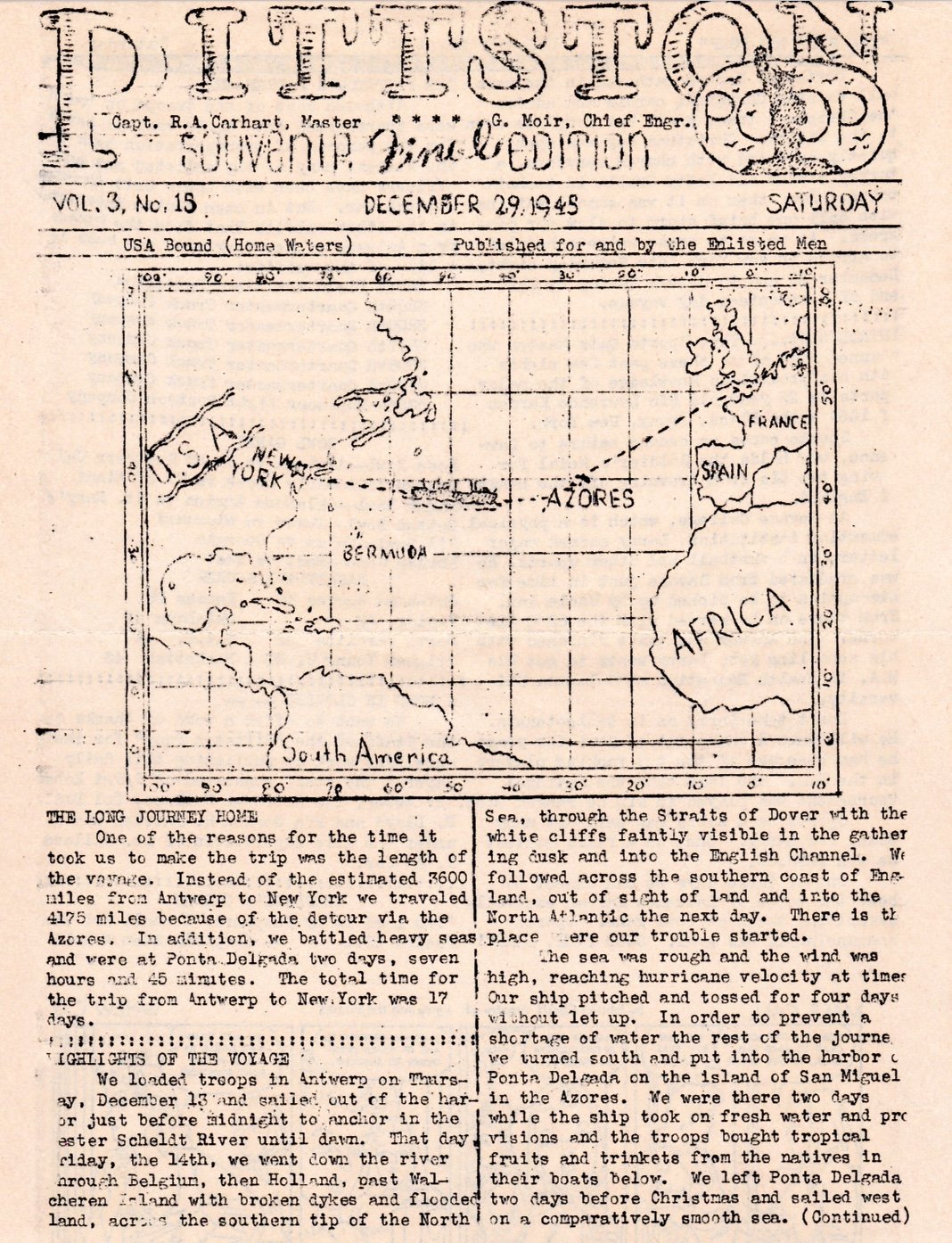
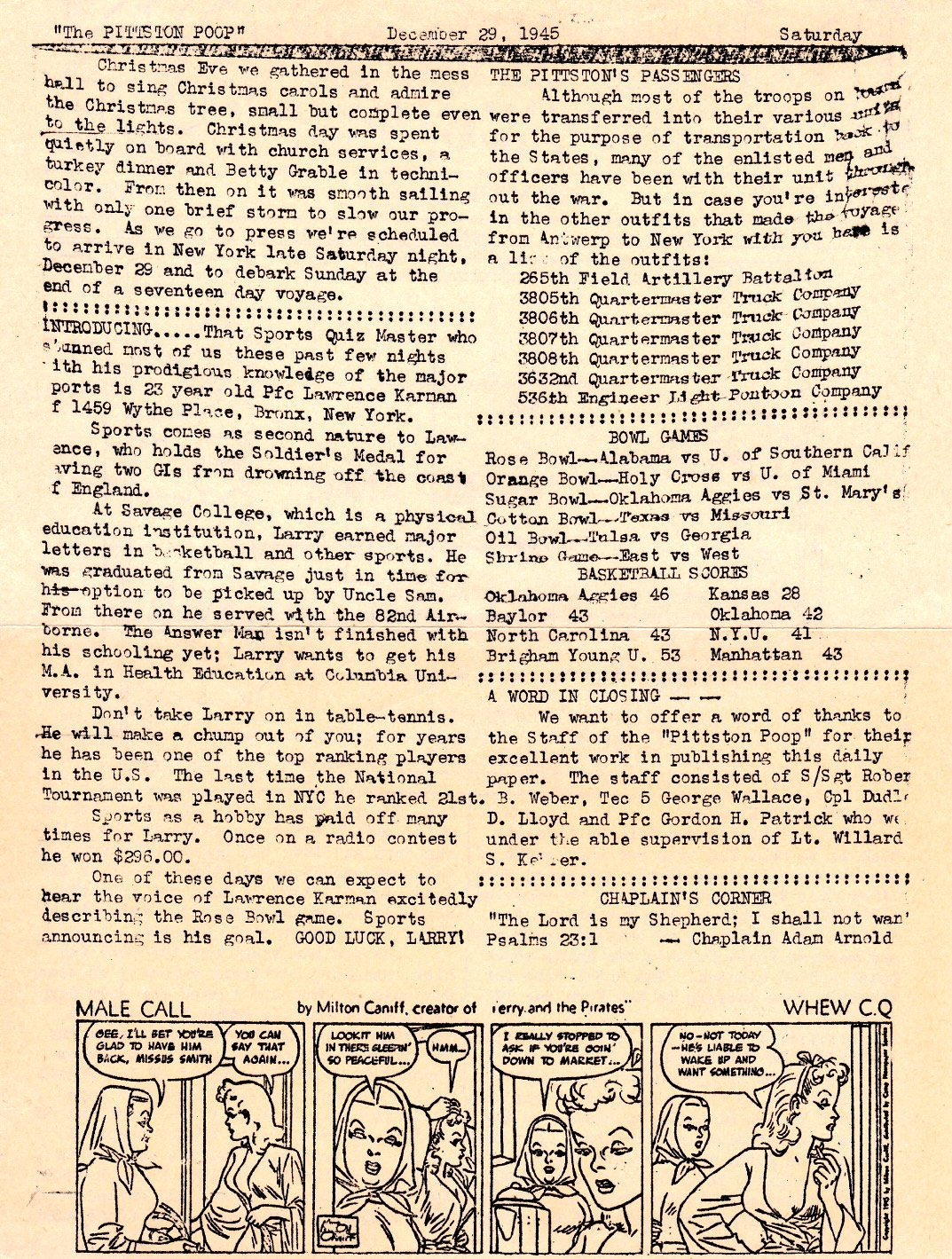
“The Fuhrer” has by decree this day of August 22, 1942, awarded the railway worker Walter Bromer the War Merit Medal.
1940 Panzer regiment driver’s license extension to September 2, 1942.
Courtesy of the George Cole Family
1940 German military driver’s license for tracked vehicles under 10 tons.
“The funeral notice of Adolph Hitler”
“Coffee on the Hill” by Sgt. Howard Fichtner, HQ-Battery, 319th GFAB.
319th Enlisted Men & Officer Dog Tags
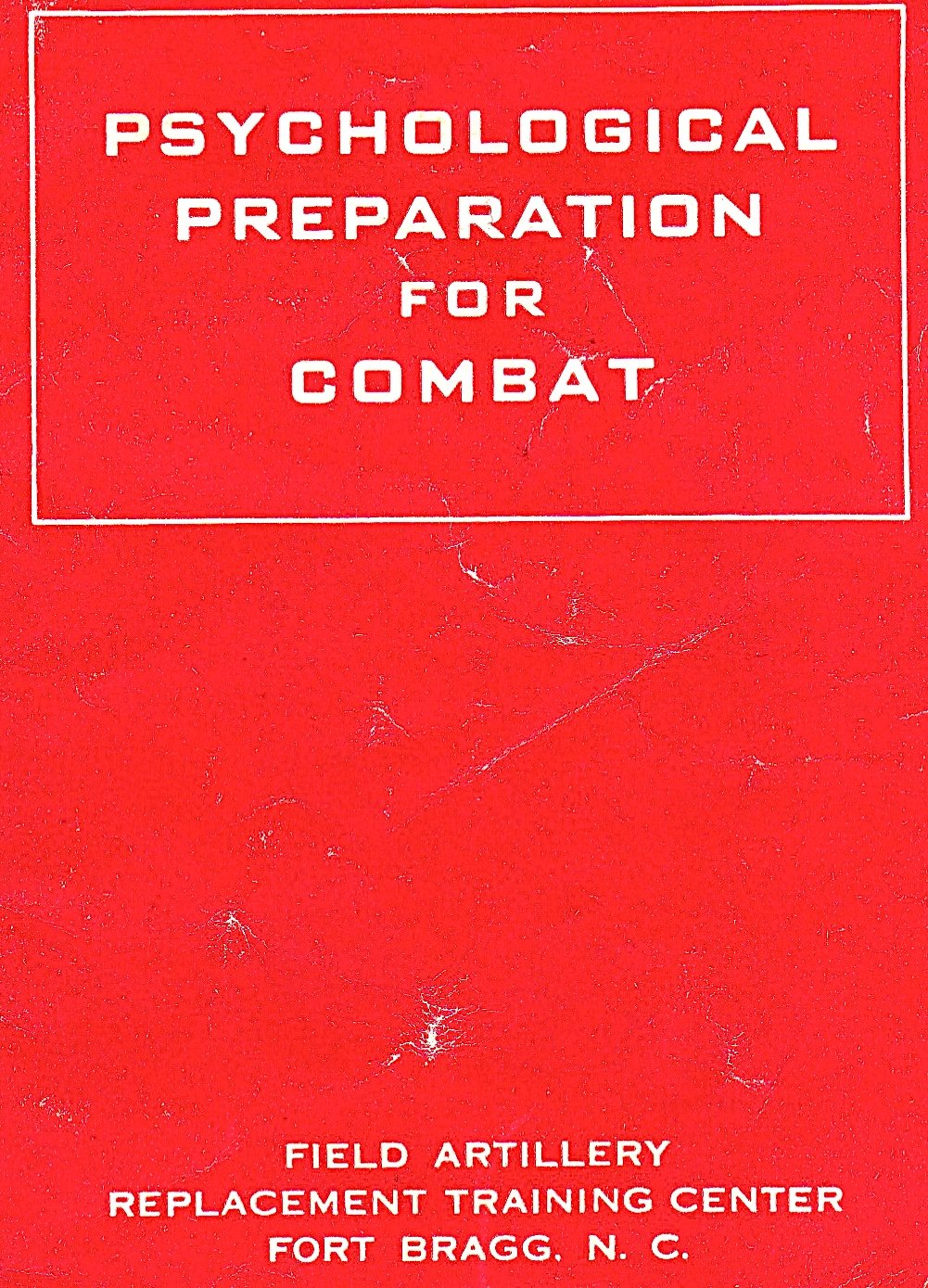
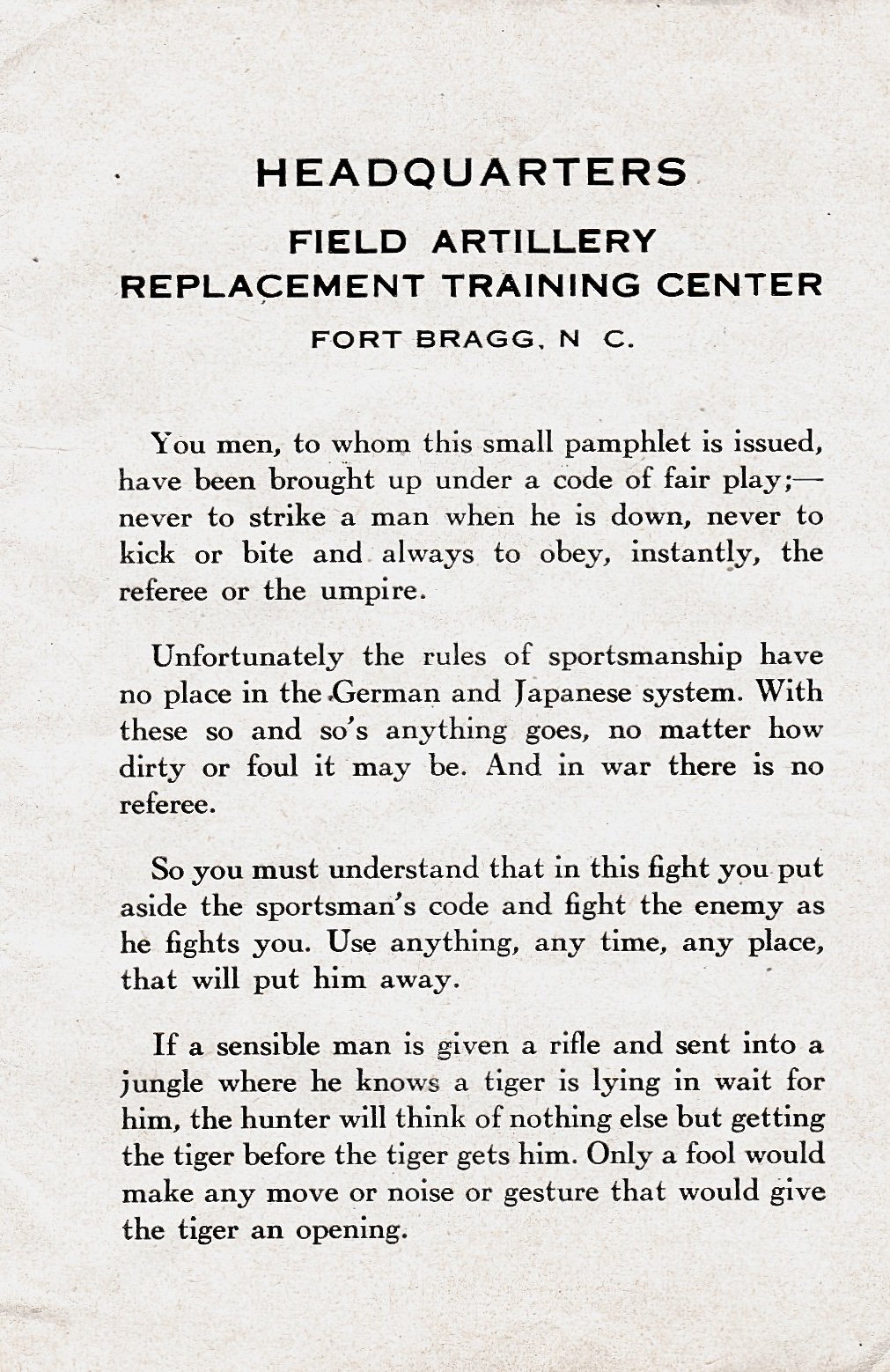
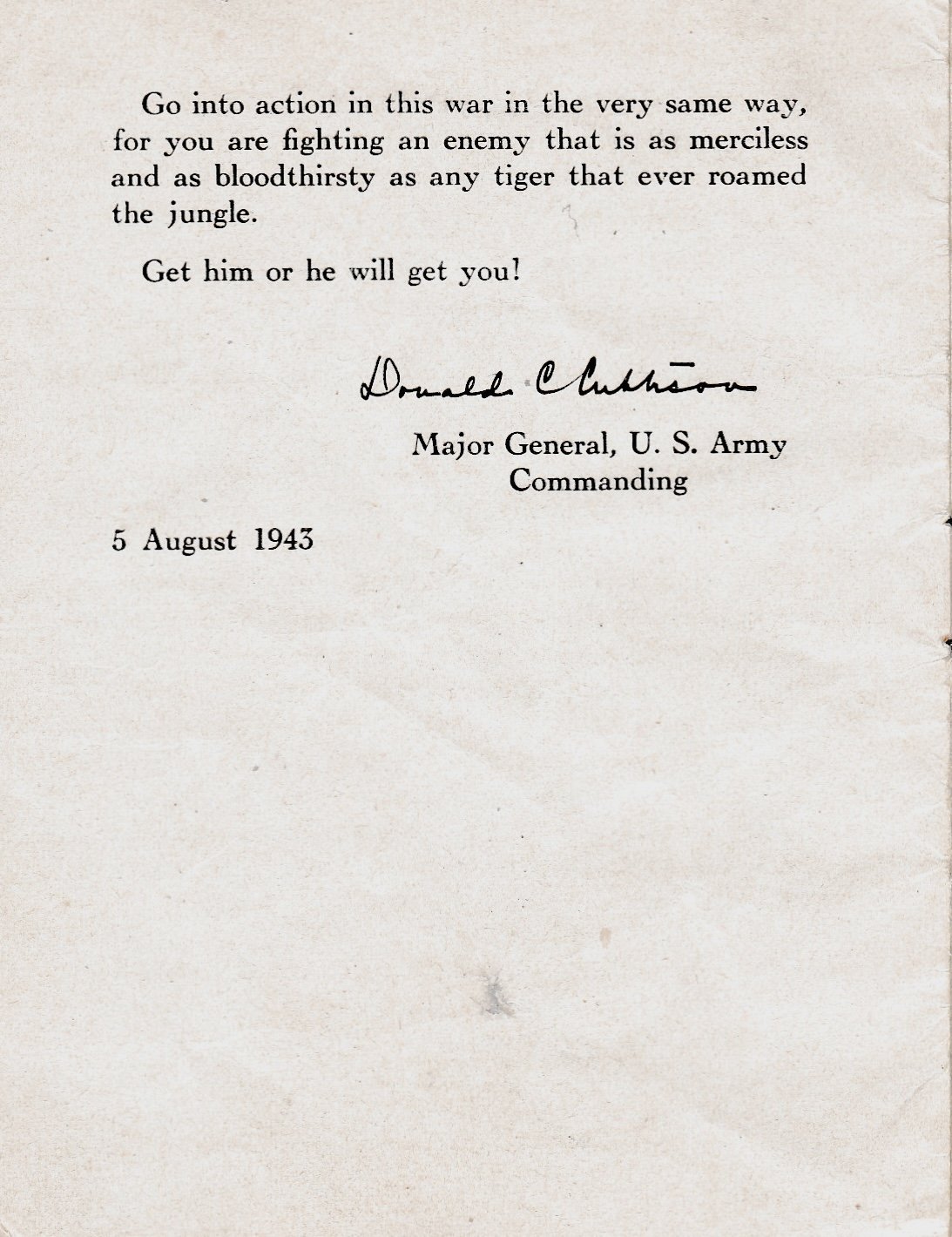
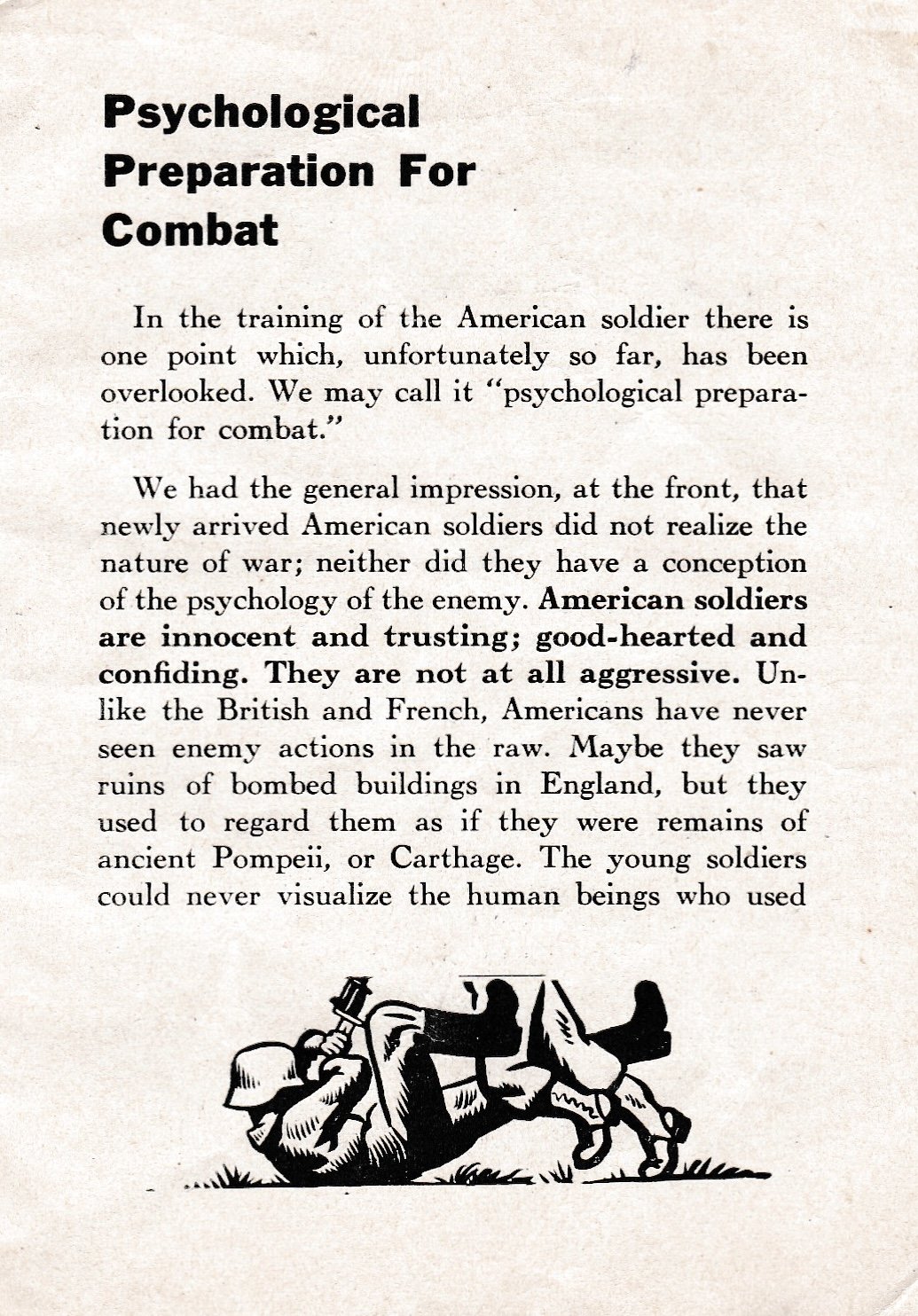
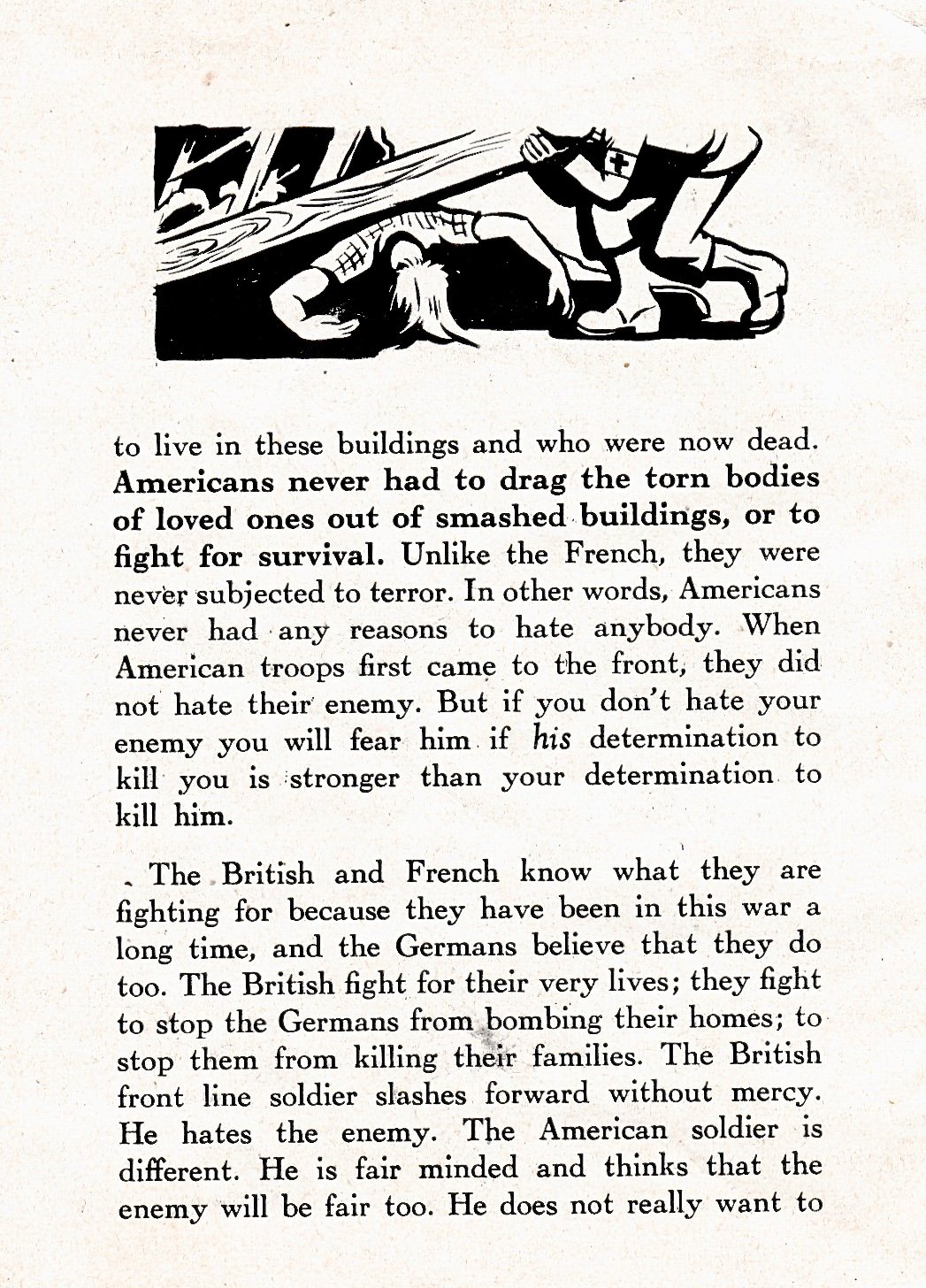
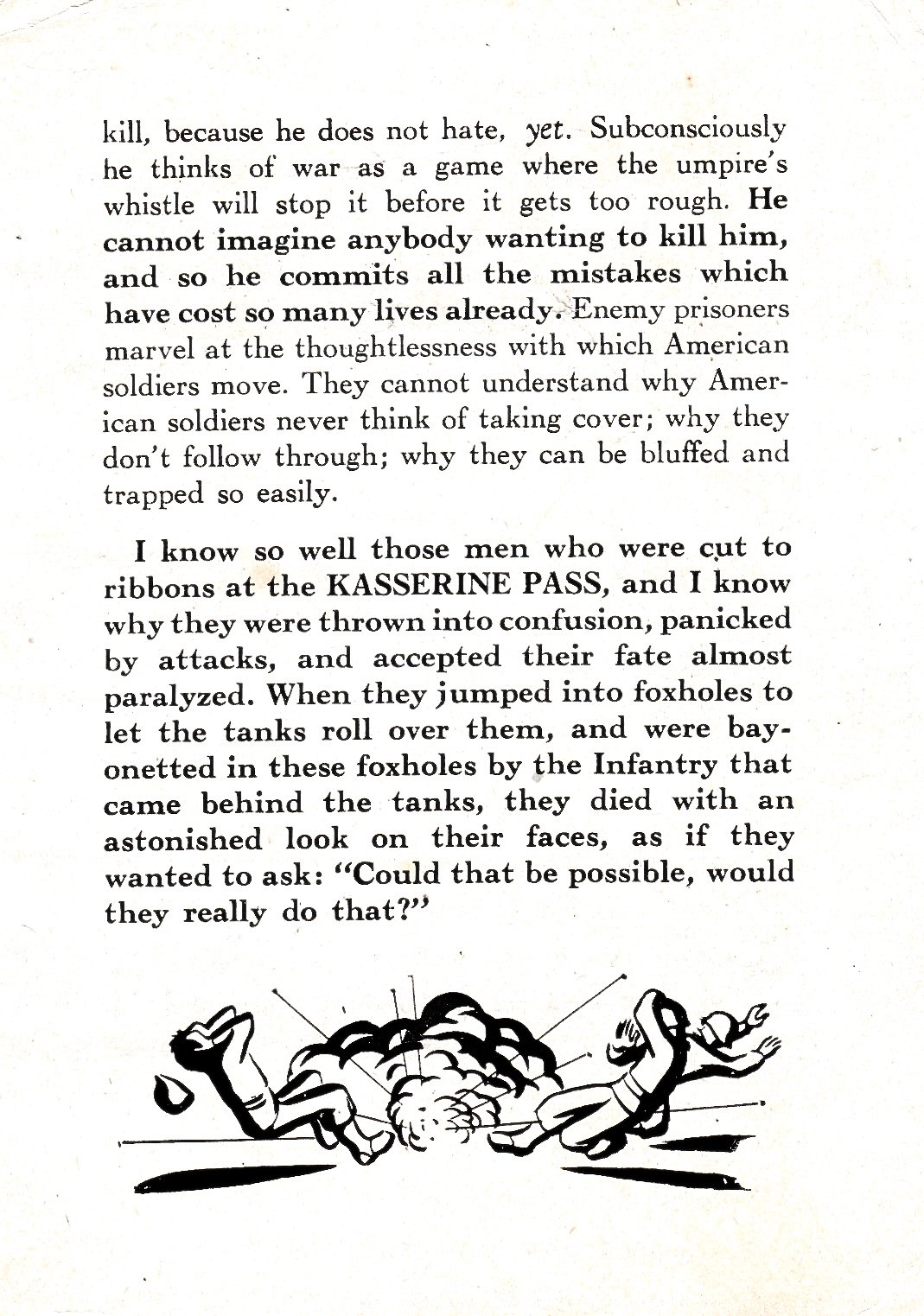
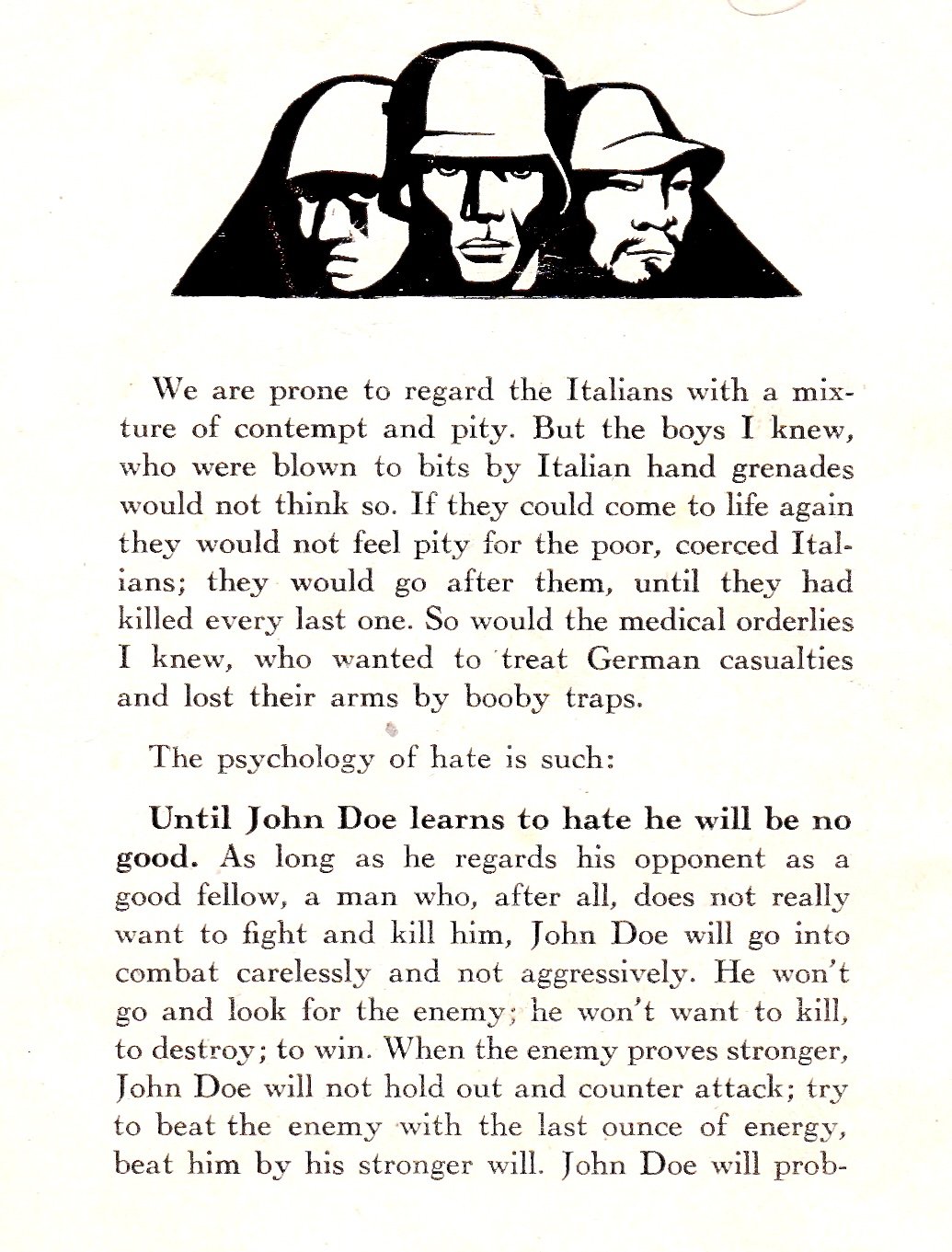
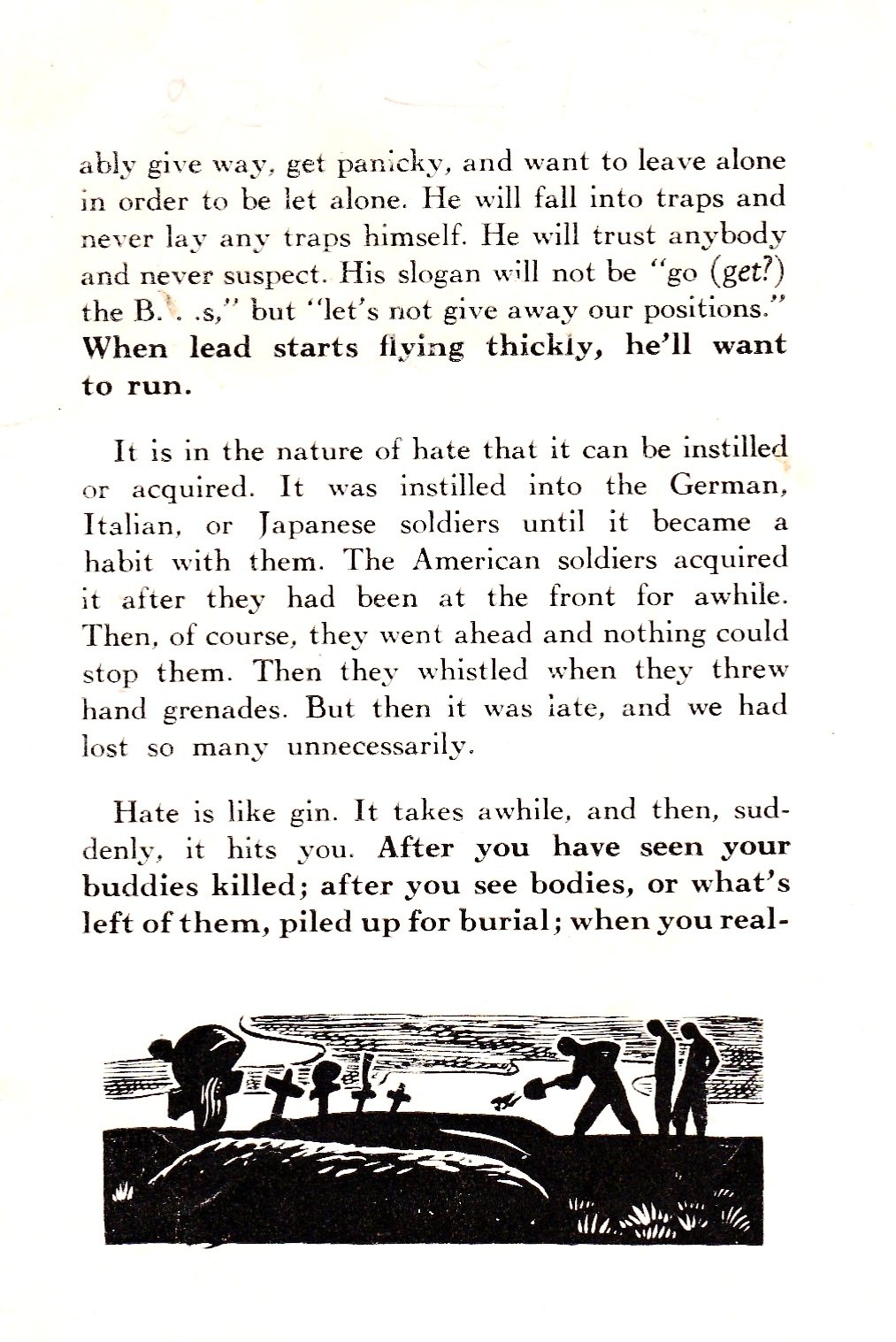
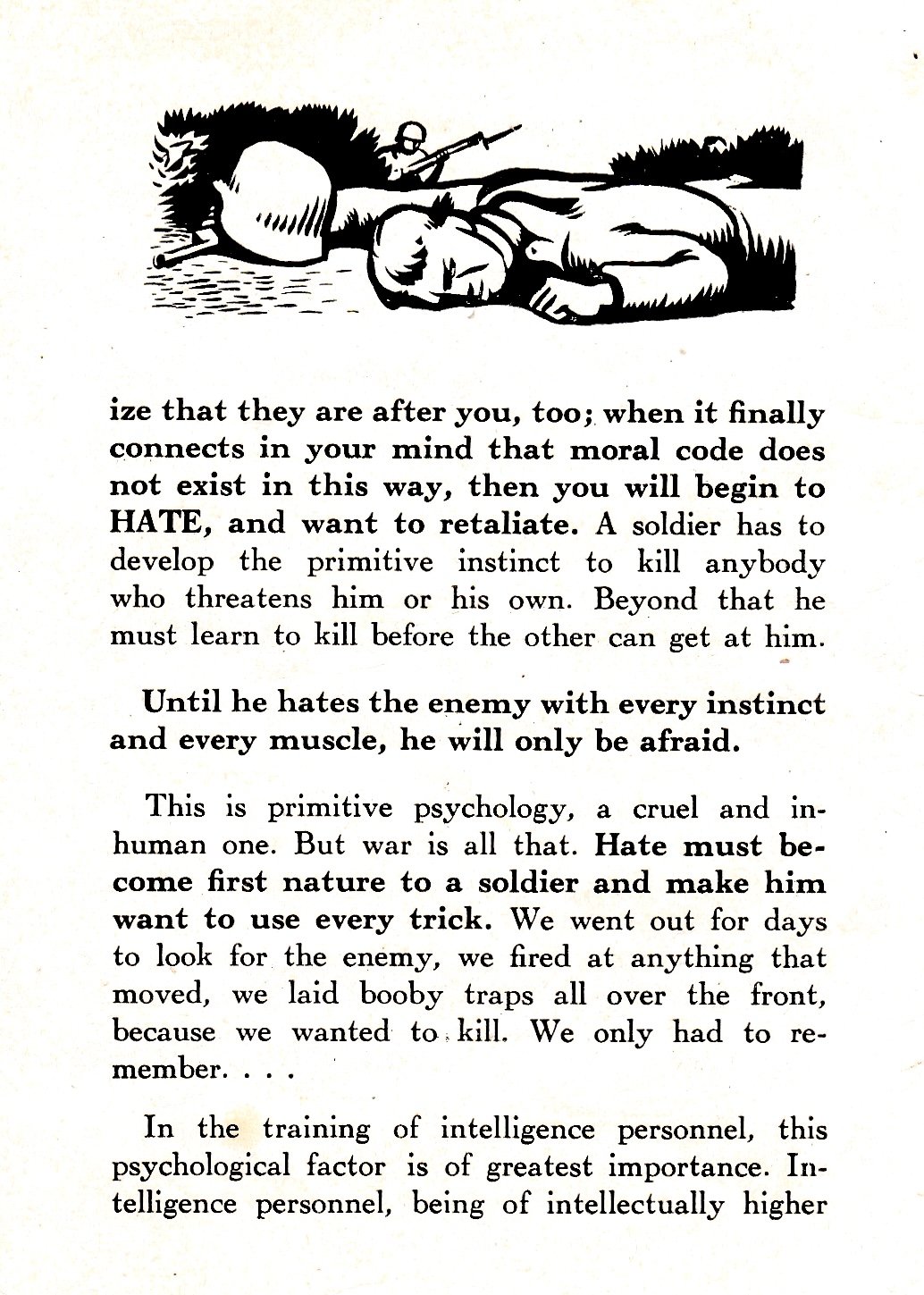
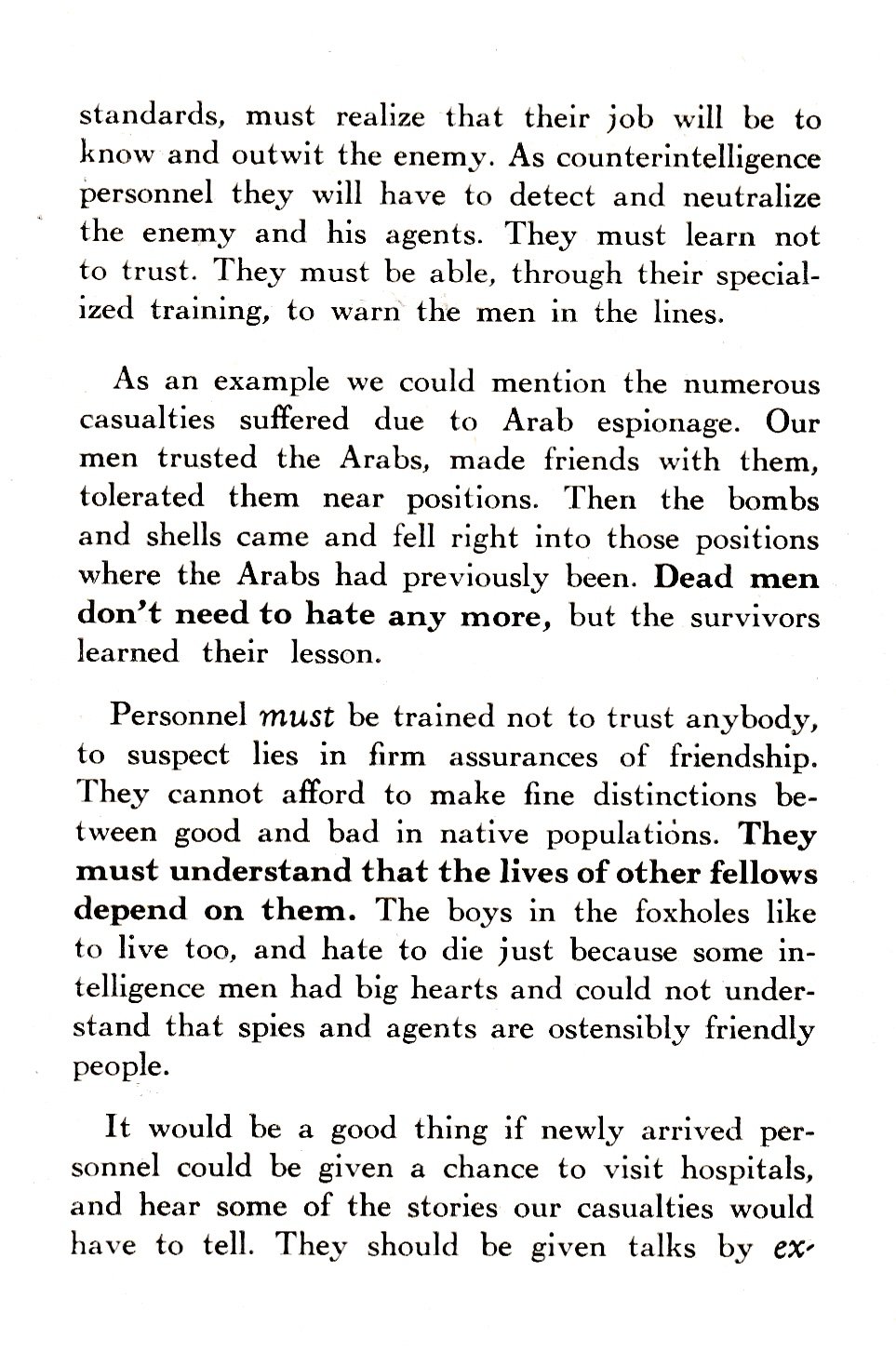
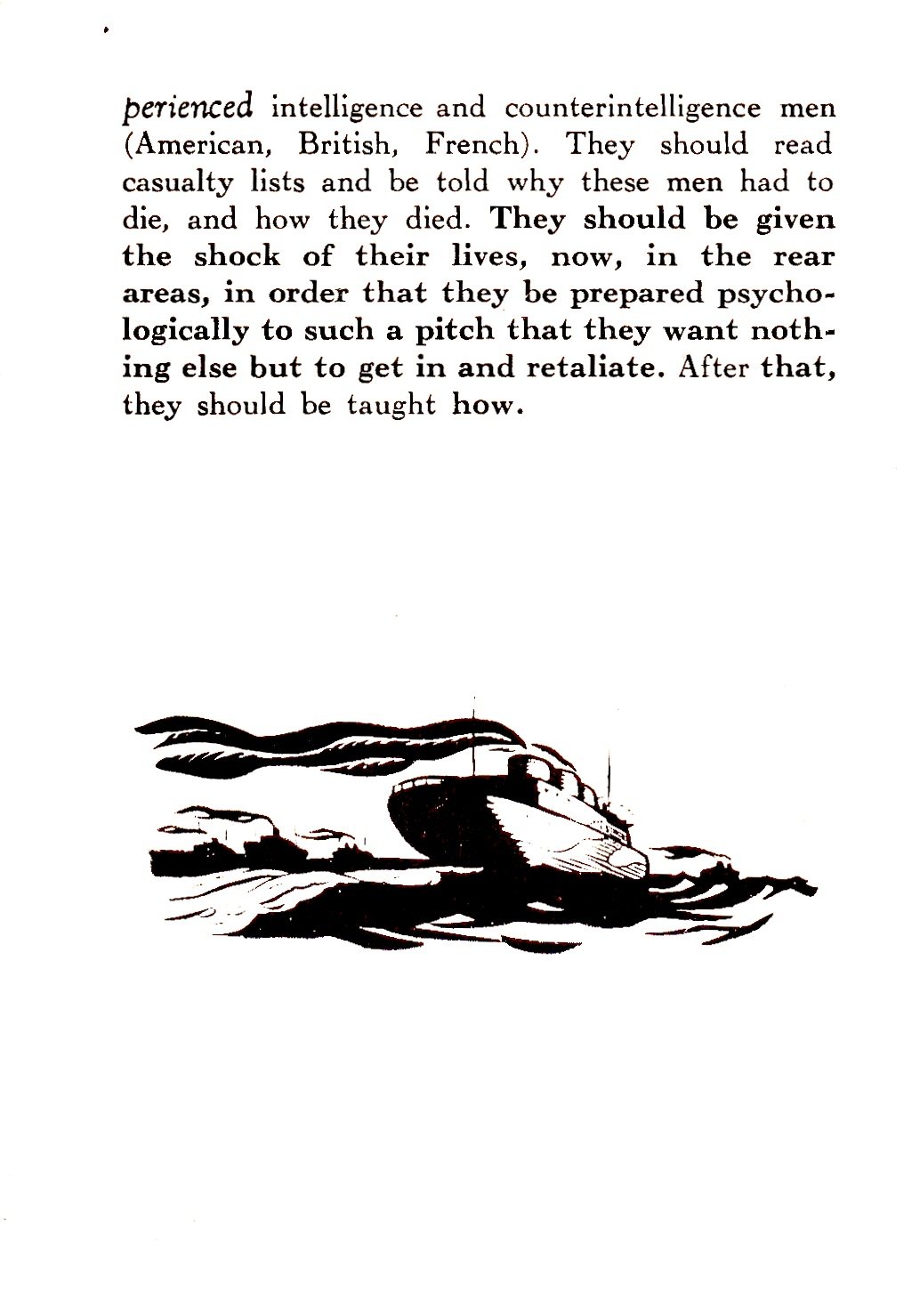
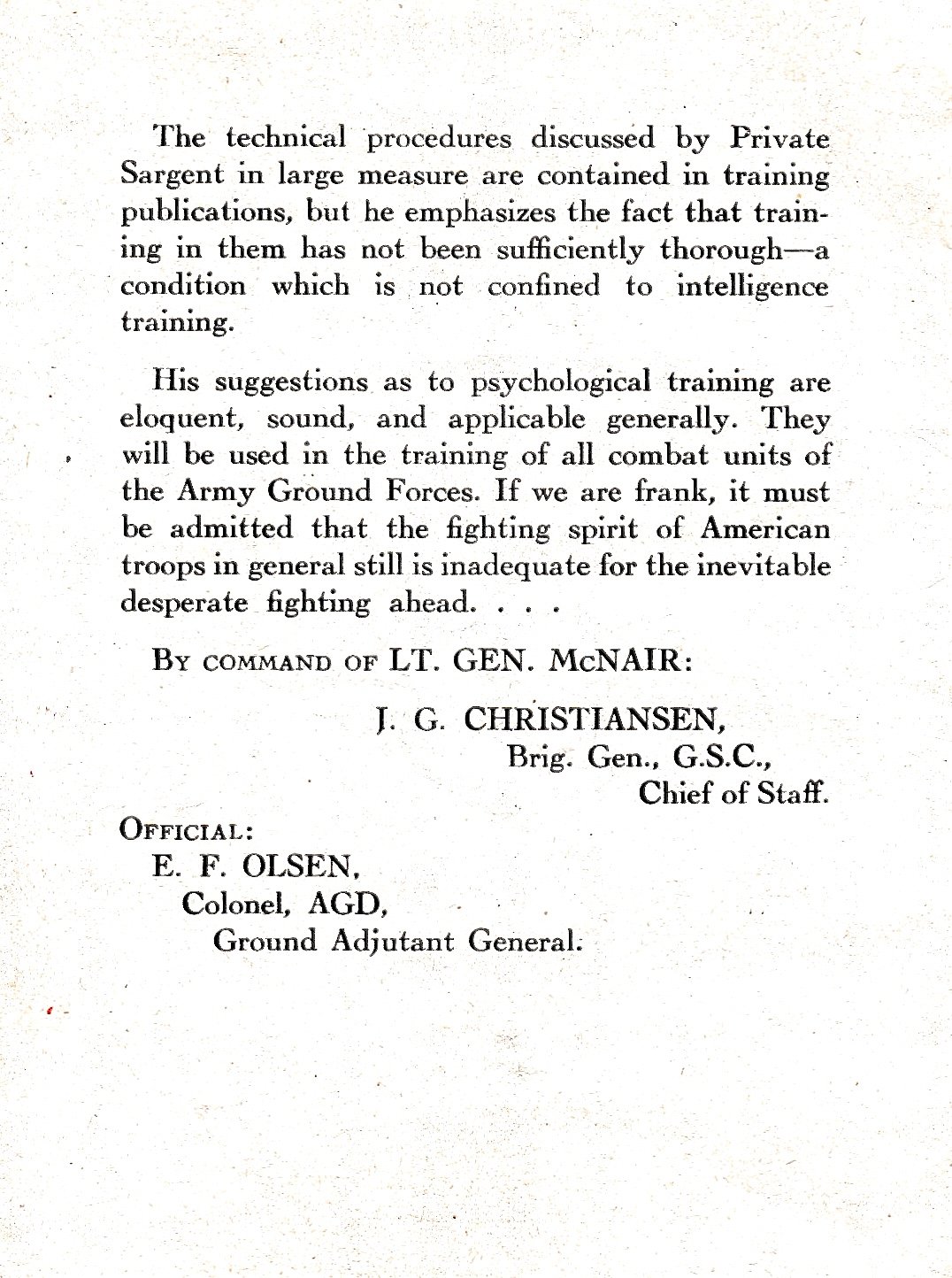
Psychological Preparation For Combat - Field Artillery Training Center
Courtesy of the Mahlon Sebring Family
“Rainbow Corner”
During World War 2 the American Red Cross created for the American servicemen on leave a massive network of hotels and recreation clubs. One of the best examples and most famous was the “Rainbow Corner” club near Piccadilly Circus in London.
Paris, France was quite proud of its popular “Rainbow Corner” to include daily sightseeing tours around Paris.
A 319th member kept a memory of his tour of Paris with an official itinerary and map of Paris. (see below)
For 60 Francs, guests of the bus tour visited the Arch of Triumph, Eiffel Tower, Napoleons Tomb and The Louvre, to name a few of the highlights. And all tours included a competent lecturer.
The Paris “Rainbow Corner” club was quite the gathering place as evidenced (see photo below) by the crowd of servicemen and woman celebrating the surrender of the Japanese Army.
August 15, 1945: The “Rainbow Corner” Red Cross Club, Paris, France - Allied servicemen and women celebrate Japan’s surrender.
The Paris “Rainbow Corner” was near the Champs- Elysées at 8 rue de la Madeleine. The slogan “Drop in at the Rainbow Corner” became a popular tune… “glad to see you here whil dunkin dough-nuts sit-in in a corner dreaming of a world that’s free.”
Army Exchange Service Ration Card - ETOUSA
Because of supply shortages a rationing system was implemented in the European Theater of Operation, United States Army (ETOUSA), January, 1945, directing that clothing and accessories would only be sold on presentation of a ration card. The ration cards below were property of Captain Charles Sartain, A-Battery, 319th Field Artillery.
As the saying goes everything from “soup to nuts” was available, but rationed on a weekly schedule. Beer, tobacco, candy, cookies and matches were available weekly. Razor blades and soap every two weeks, while writing tablets, tooth powder and pipe cleaners every four weeks. Items such as playing cards, lighter fluid, face towels and Nescafe (powdered coffee) were limited to every eight weeks.
WW2 ration books and stamps were also widely used by United States citizens.
“All Americans All Over”
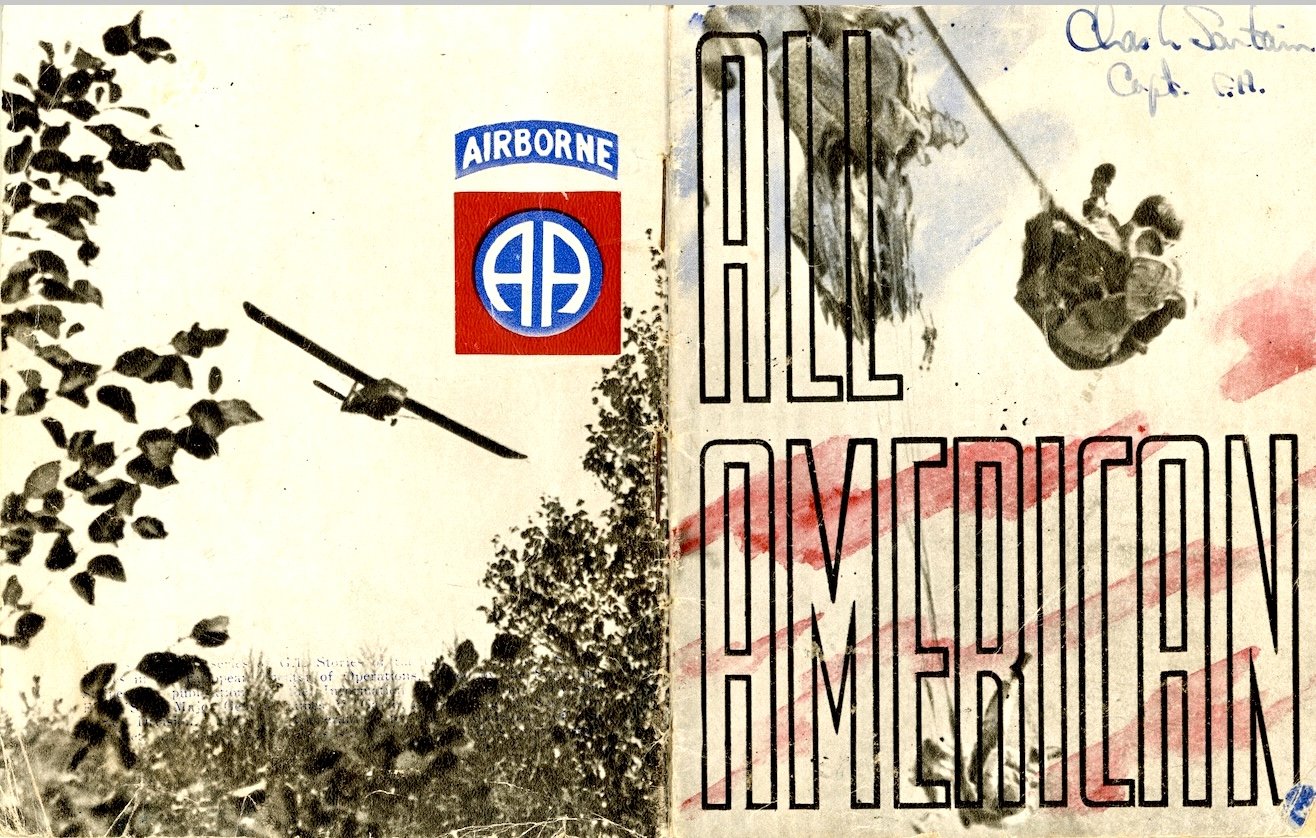
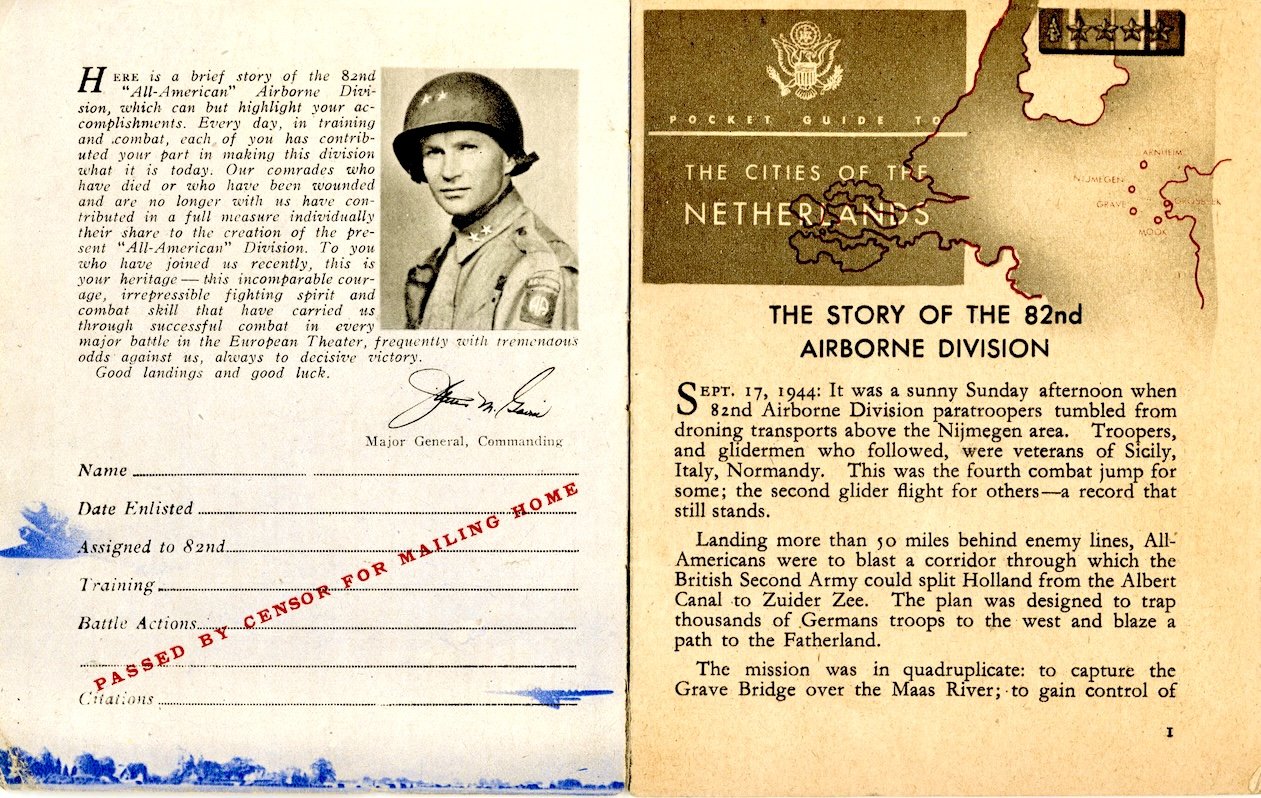
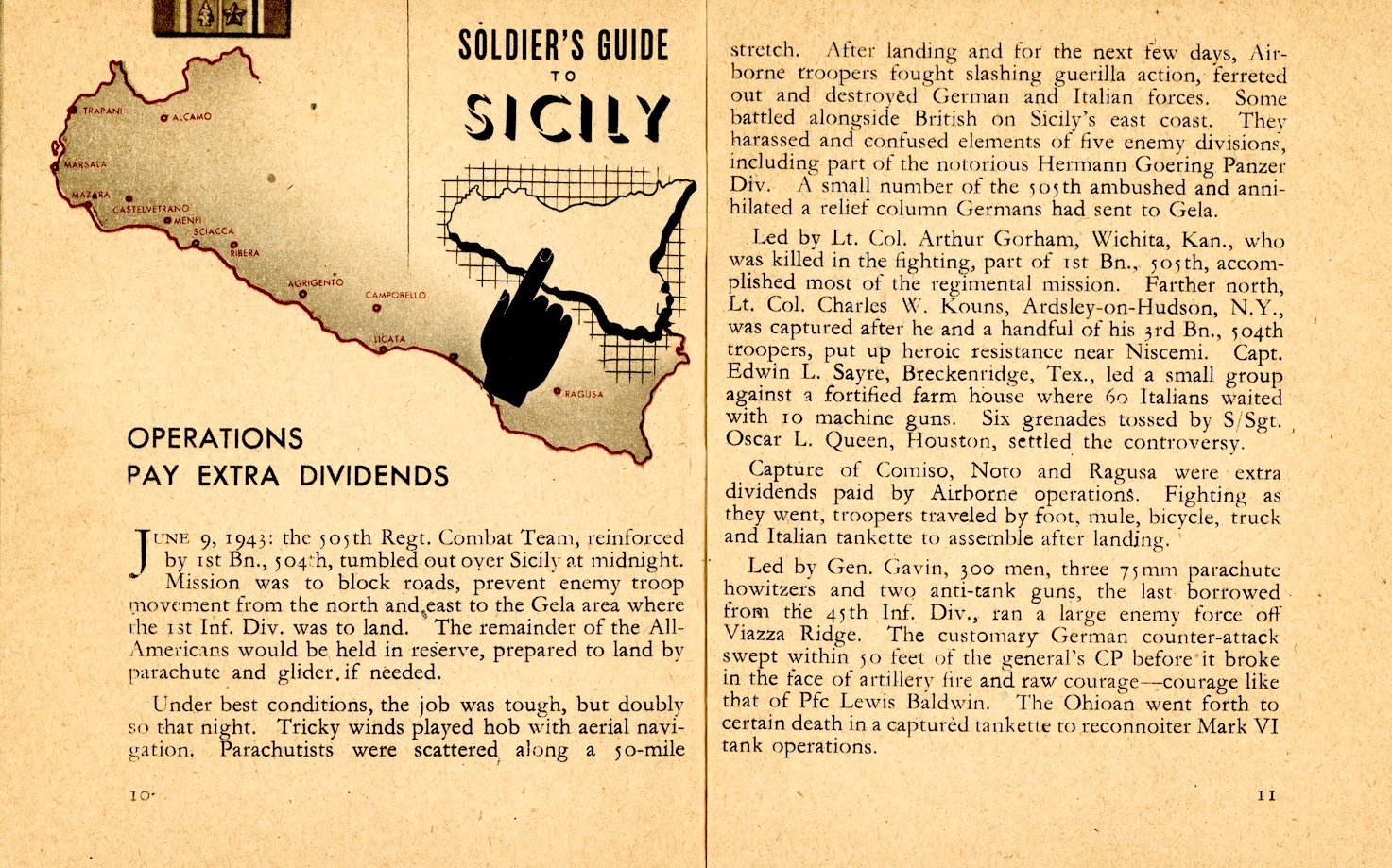
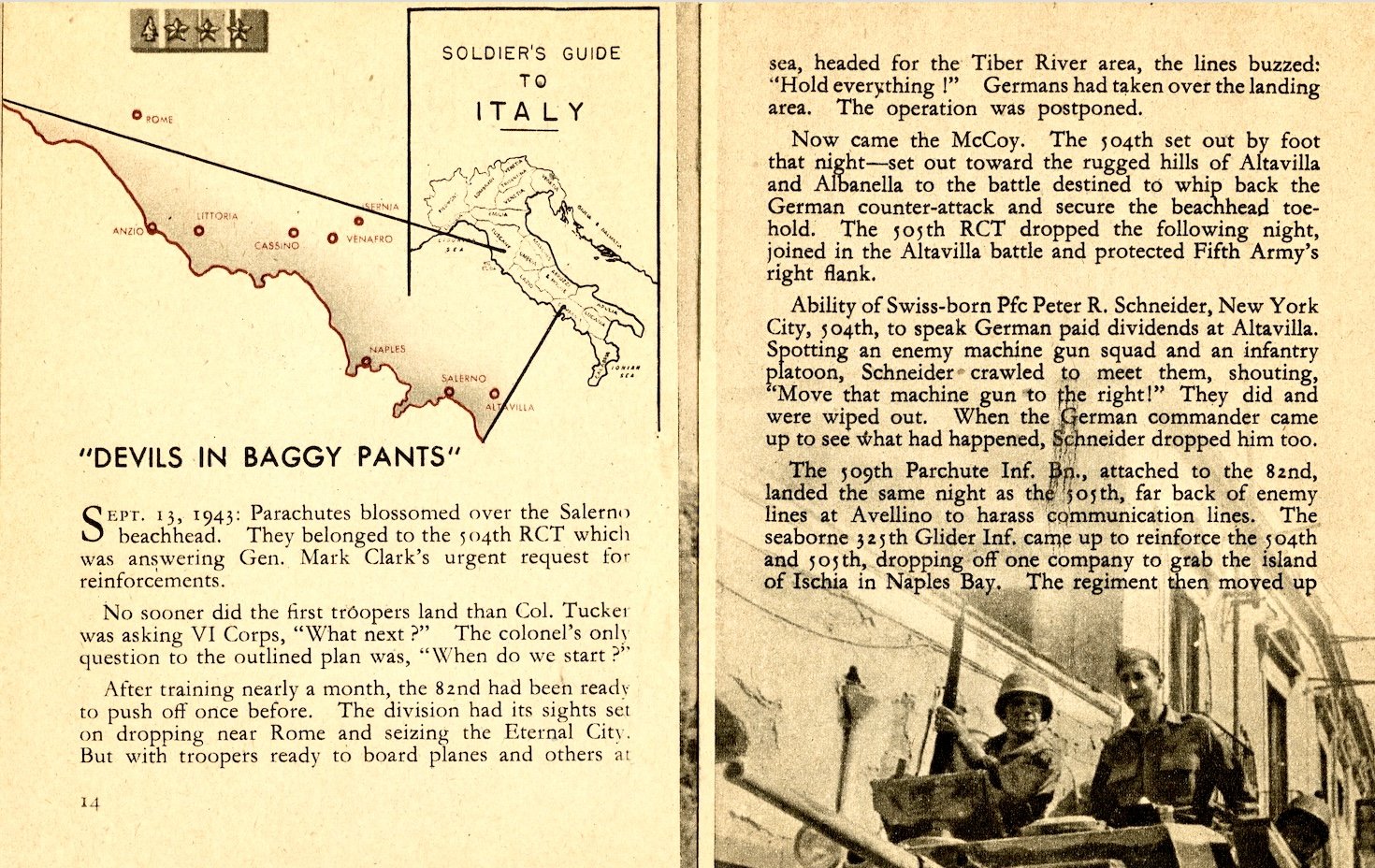
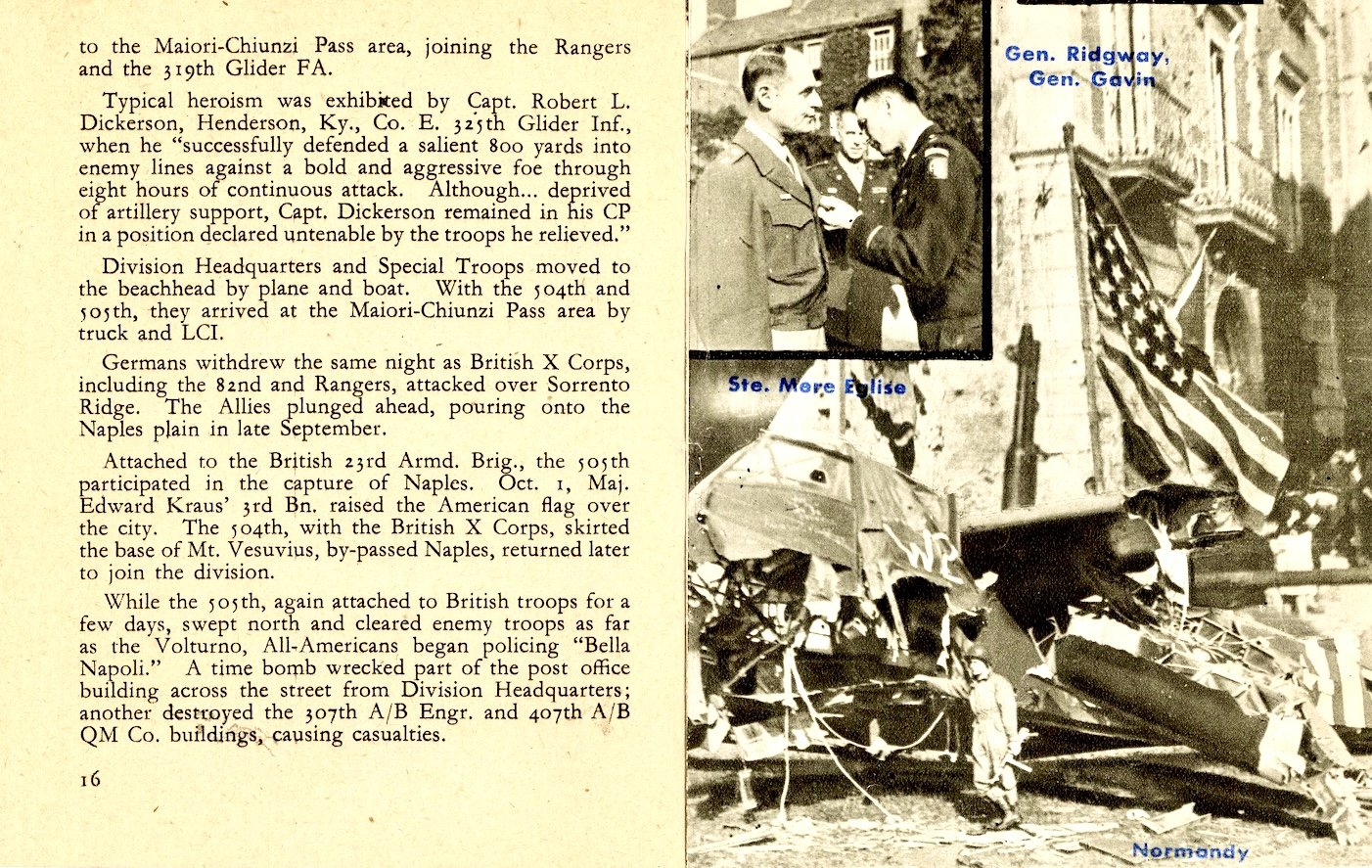
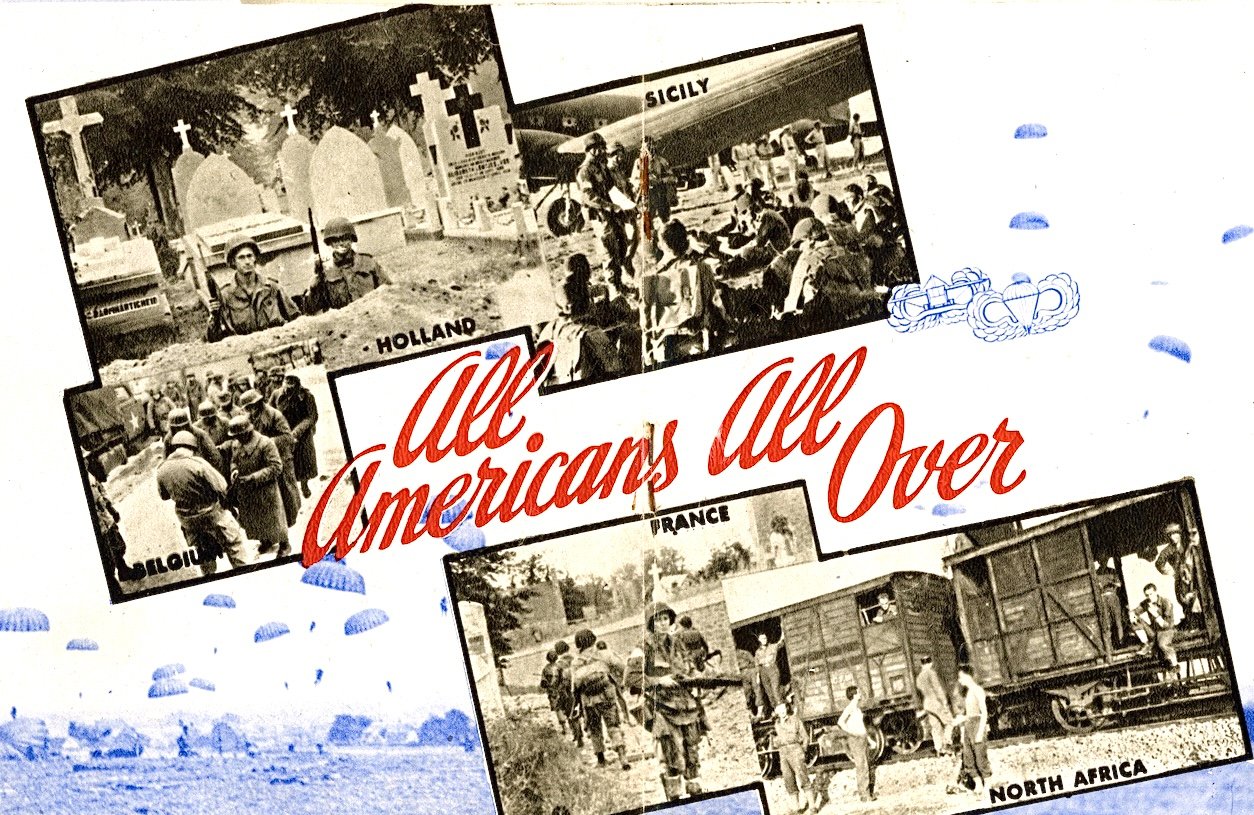
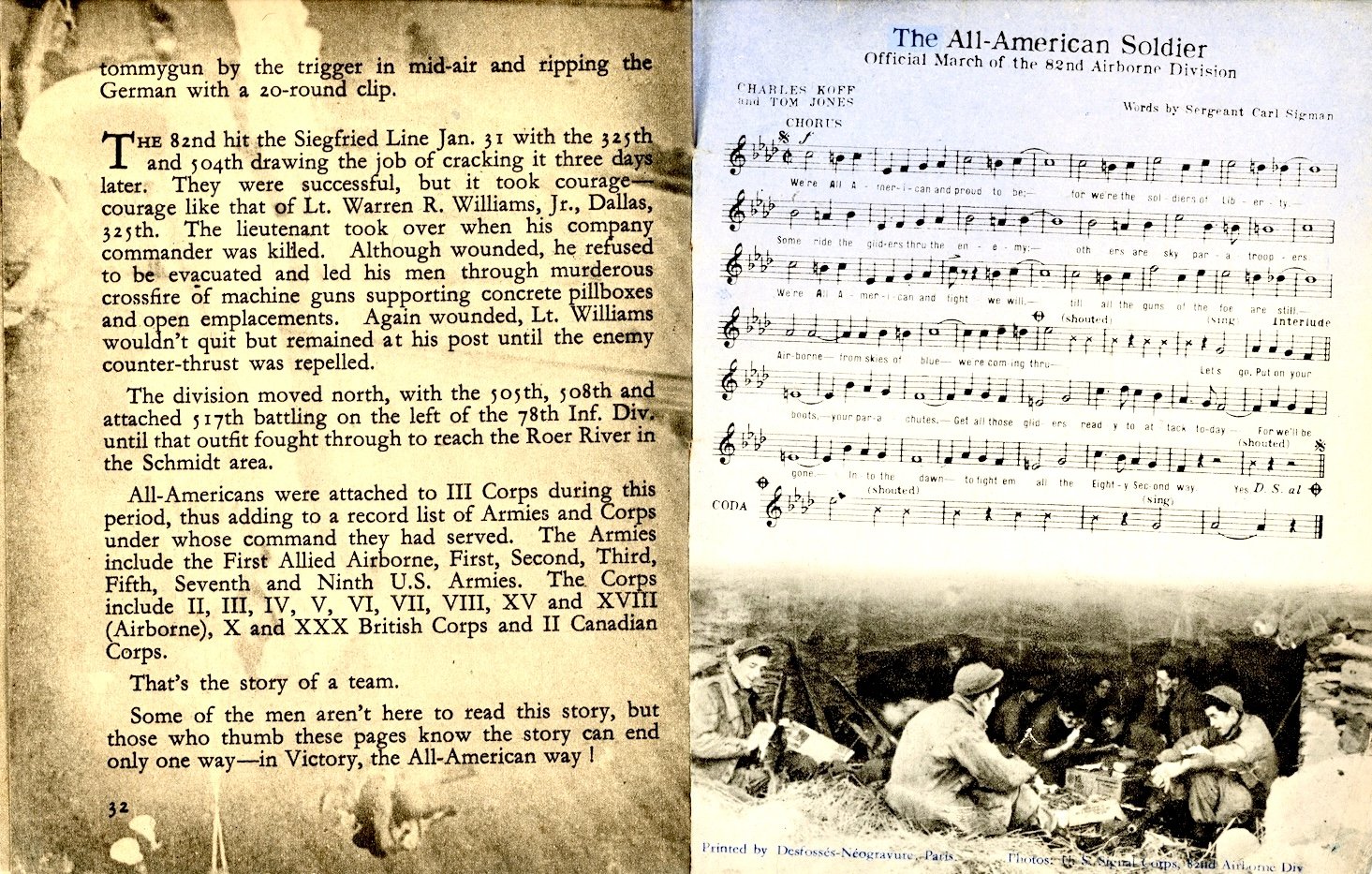
Autograph Books
Summary of Operations books were available to the 319th soldiers in June 1945. They signed each others manual like you would an “autograph” book. Courtesy of the Casimir Sobon family
Presented below in a slideshow fashion with side controls to the next or previous image
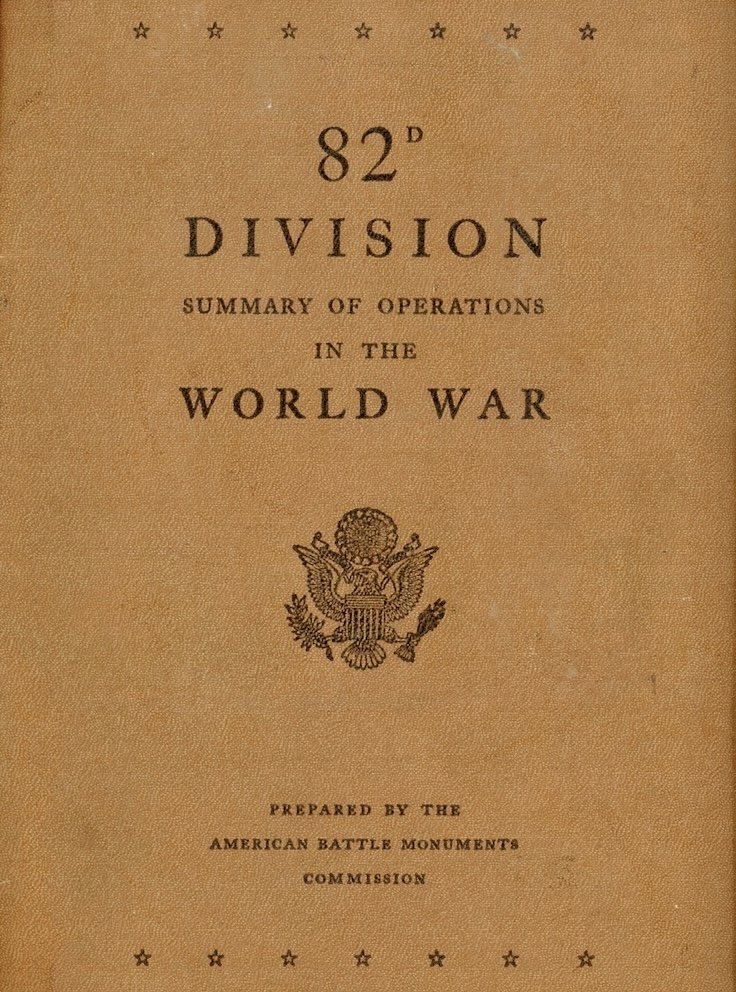
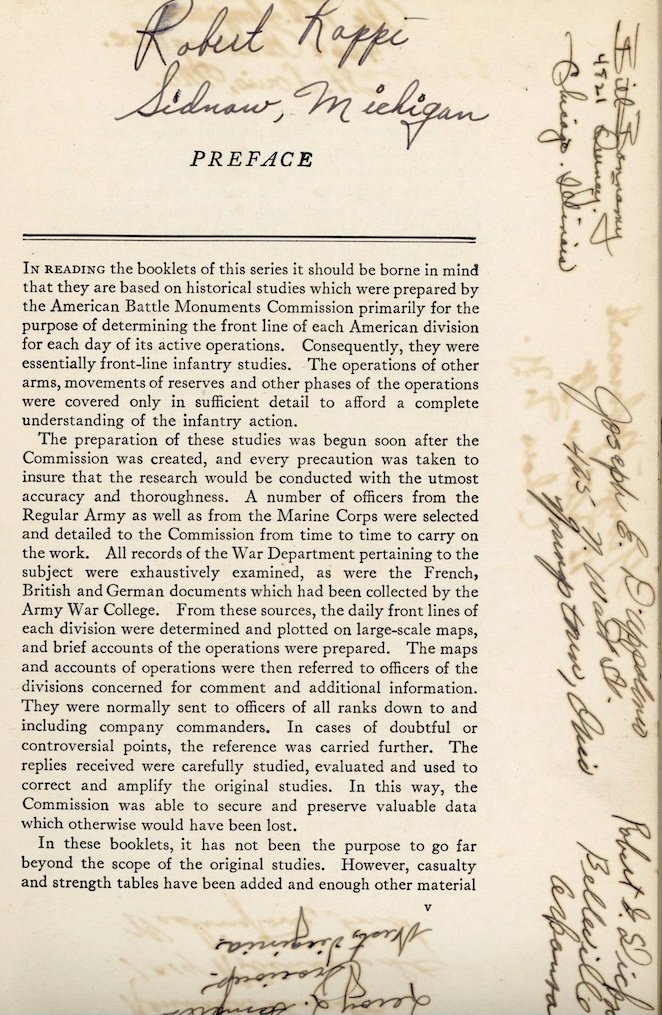
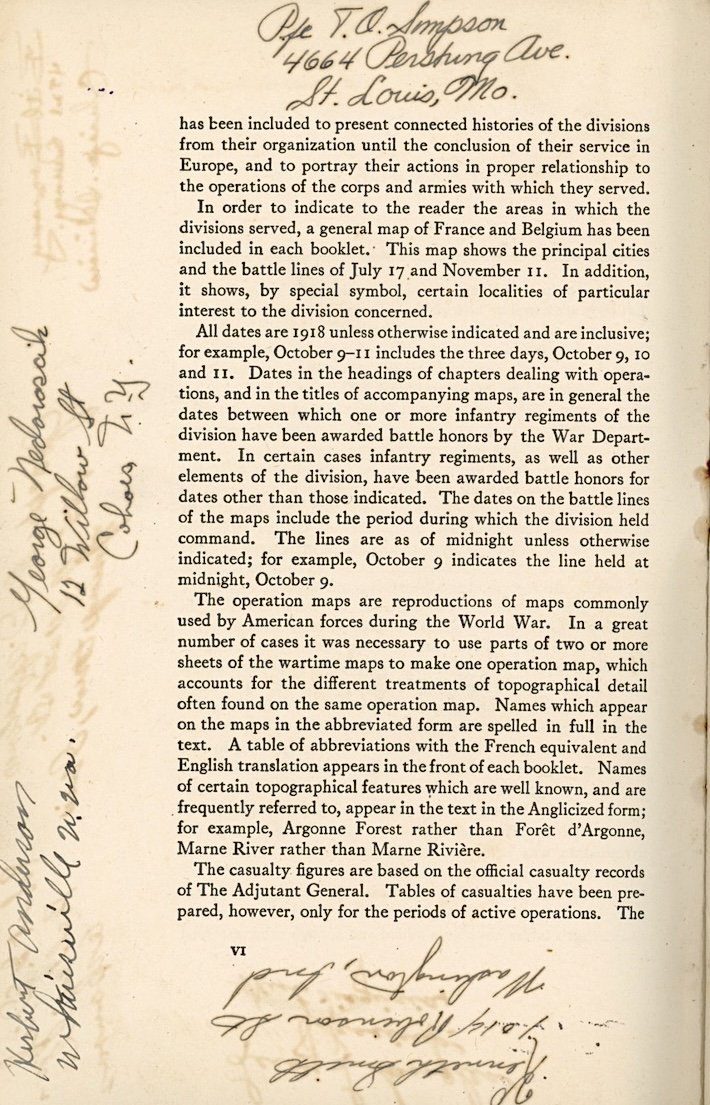
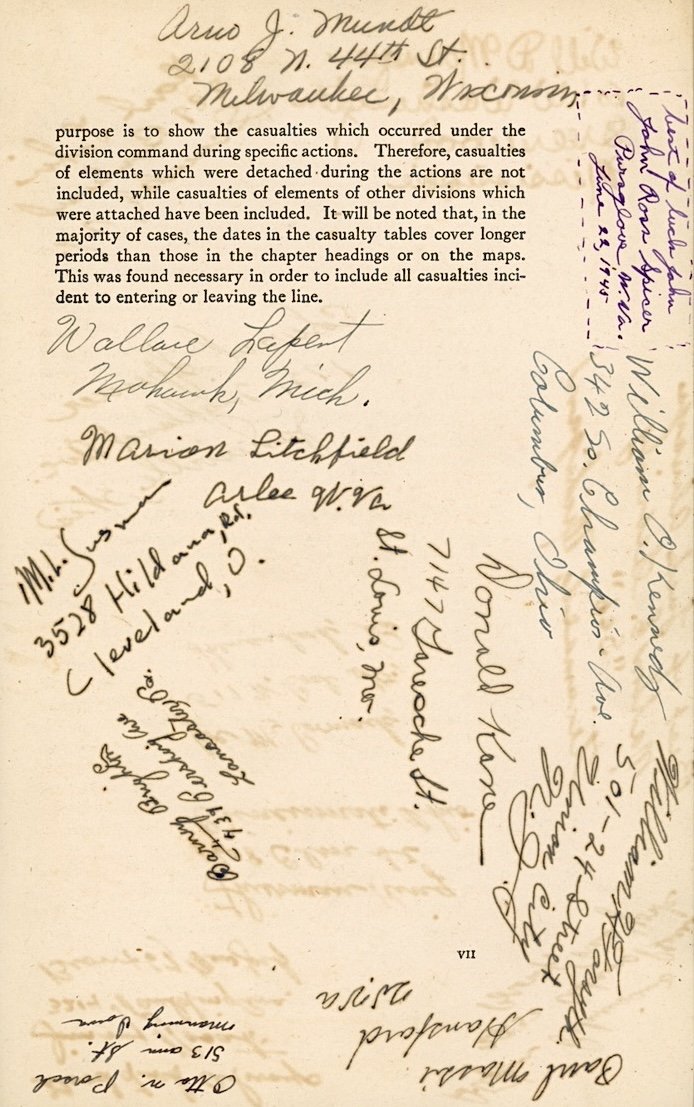
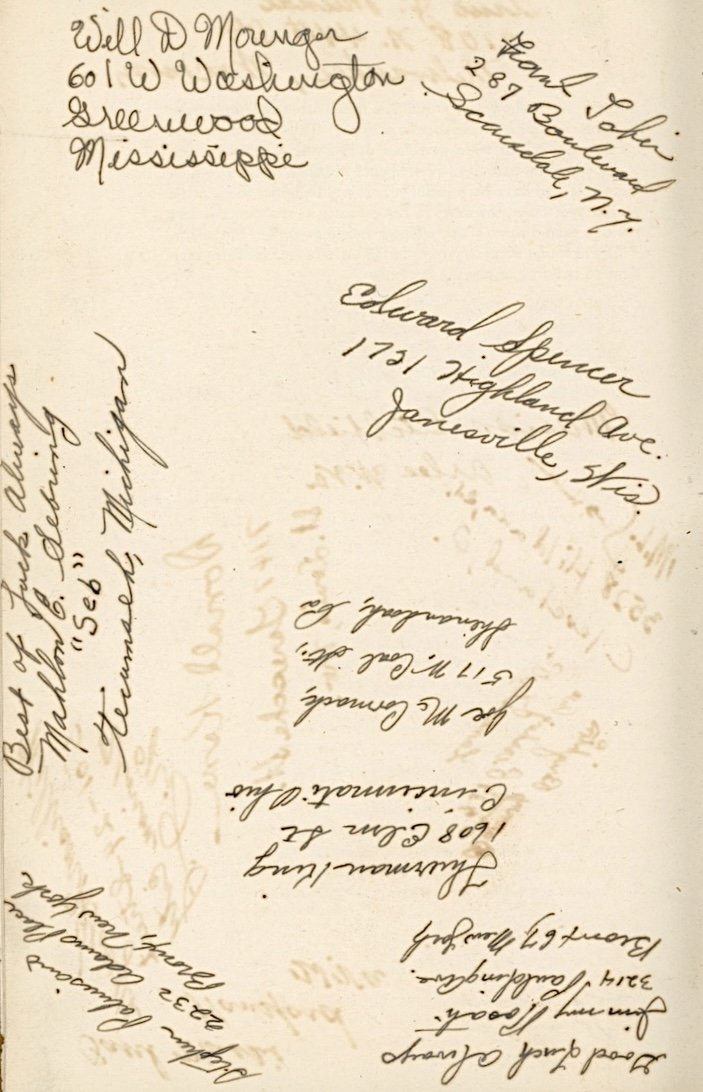
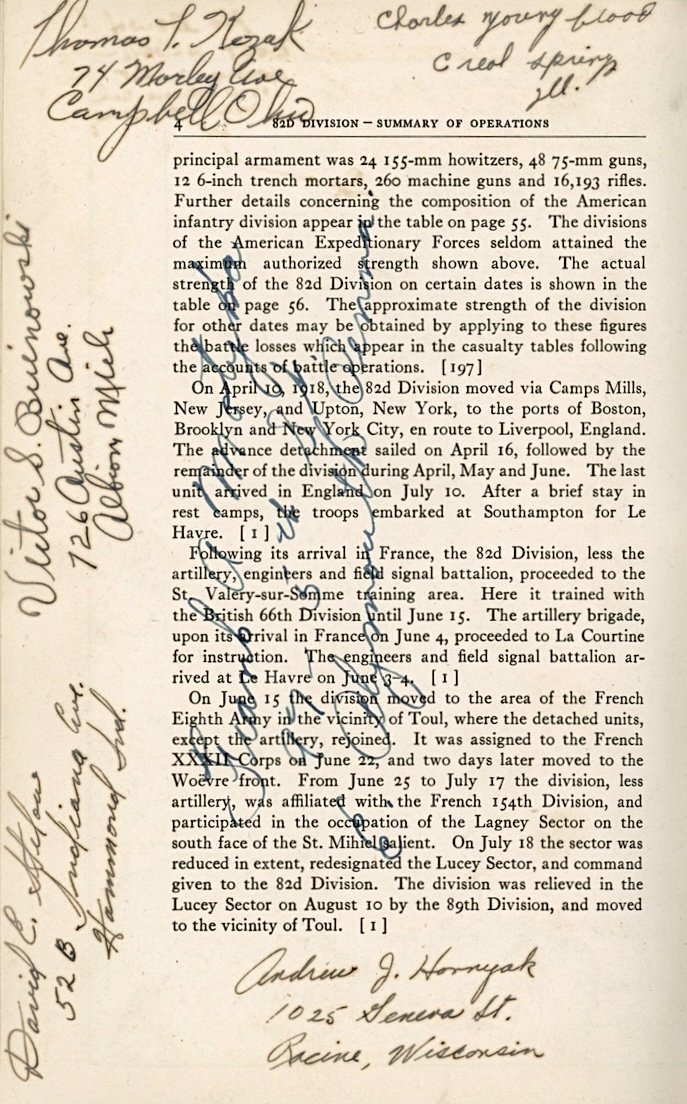
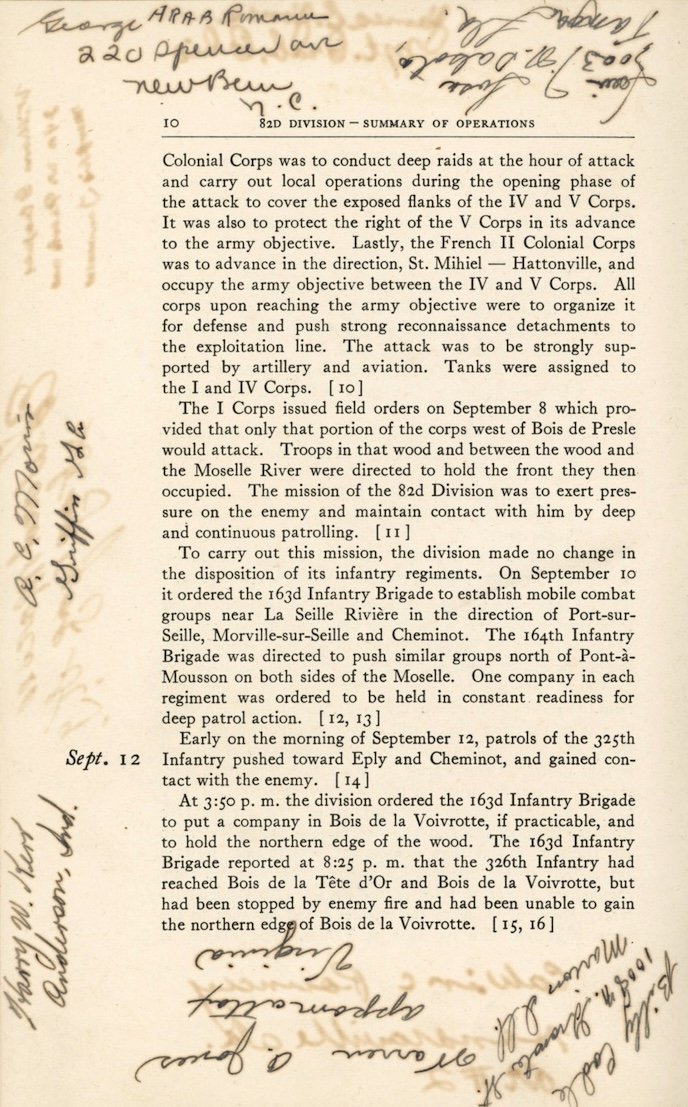
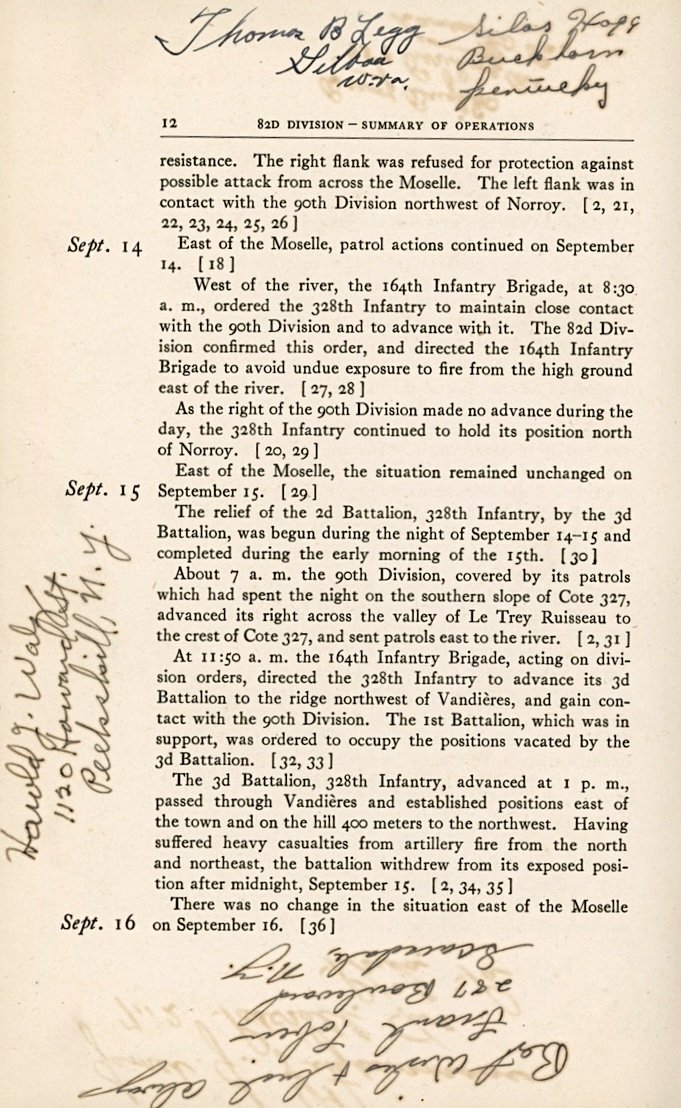
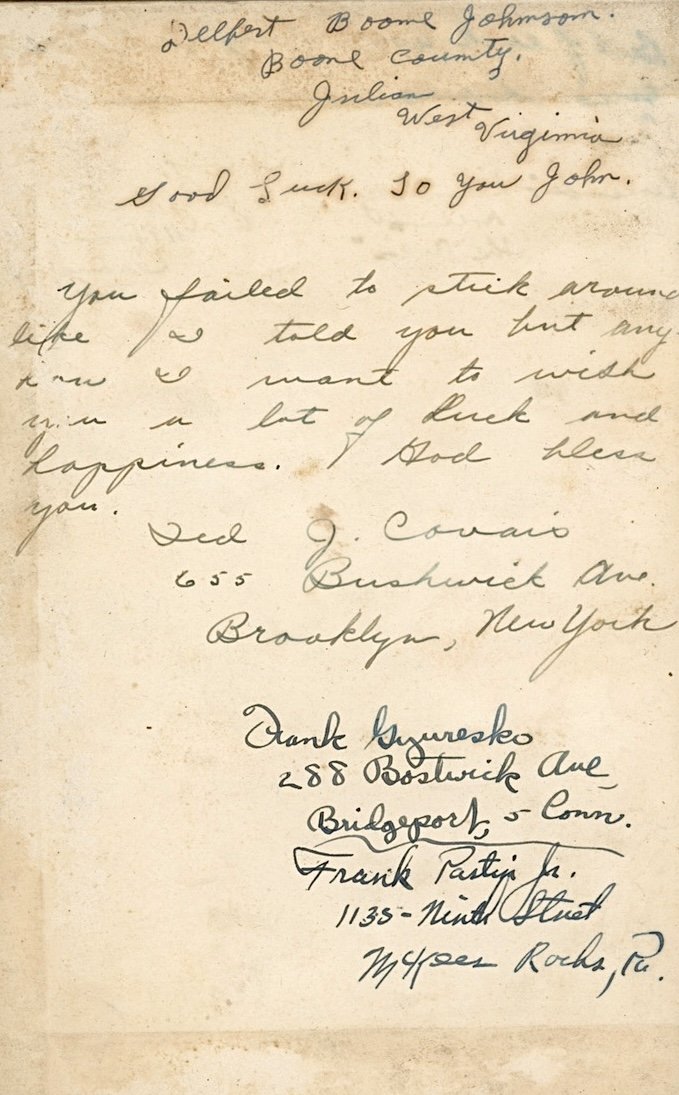
Holiday Greetings and Memories
Christmas 1942
Christmas 1942 - Ft. Bragg chapel
Christmas greetings 1942
Christmas 1942 - Ft. Bragg
The 82nd Airborne made this Christmas card (above) available to the men of the 319th Glider Field Artillery to send home during the Fall of 1944. “This Christmas greeting knows no miles, nor reckons times as some, it’s born of those remembered years and heralds ones to come.” This card was sent home by a B-Battery, 319th Glider Field Artillery soldier with all his love.
Merry Christmas - 1944
Merry Christmas - Fort Sheridan, Illinois - 1935
Merry Christmas - V-Mail - 1943 - Somewhere in Italy
Postcards, Letters, Envelopes, Western Union Telegrams, Events, Photos & Misc.
Tunisia - Carthage & Roman Amphitheater - 1943
Fort Dix, New Jersey Separation Center - What Next? - Things to do when you arrive home
March 4, 1942
Camp Claiborne, Louisiana
Ballymena, Northern Ireland
First anniversary of D-Day on June 5, 1945 - Township of Sainte - Mere- Eglise, France, celebration and dinner.
29, April 1943 - Road To Berlin - 8, August 1945.
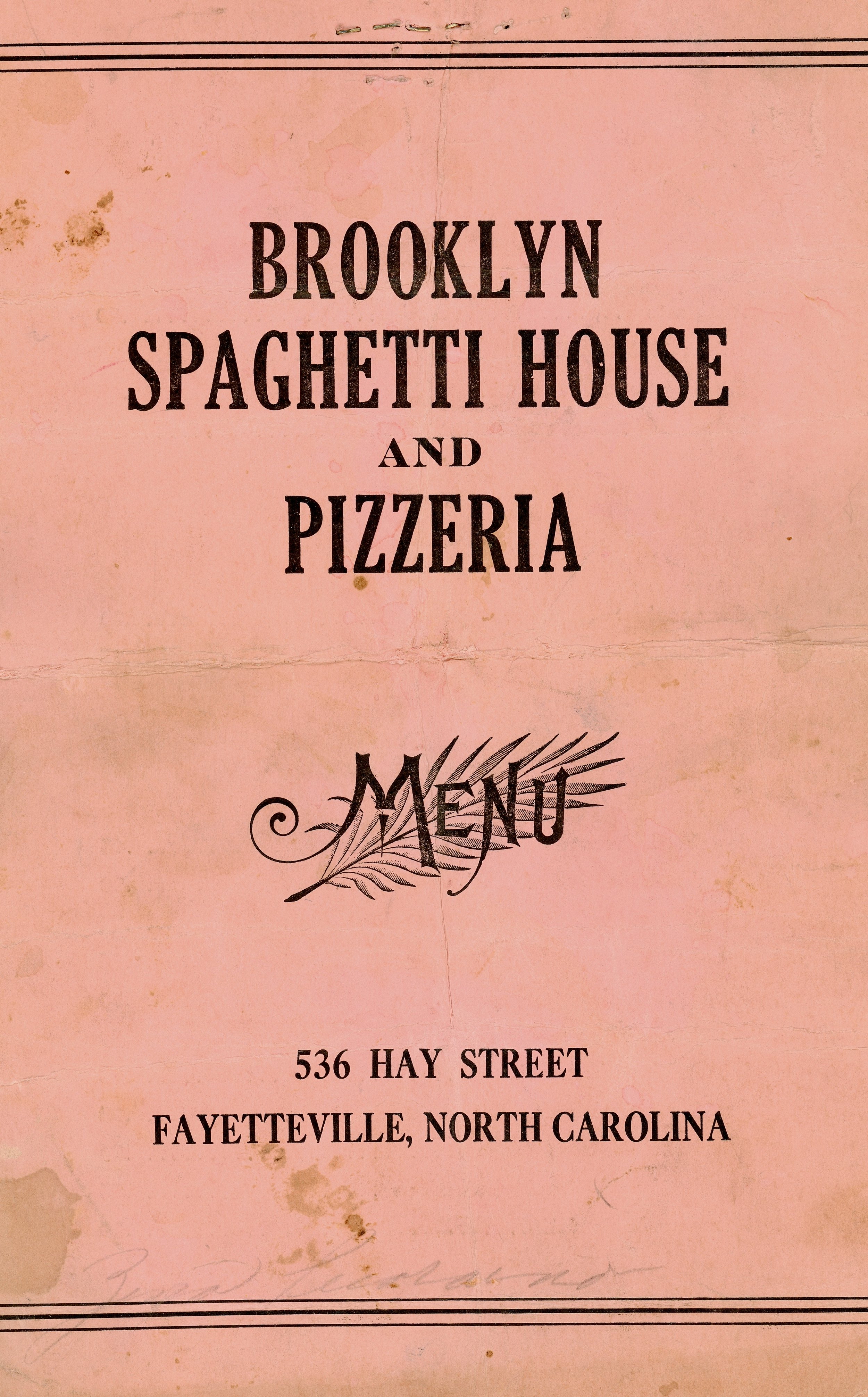
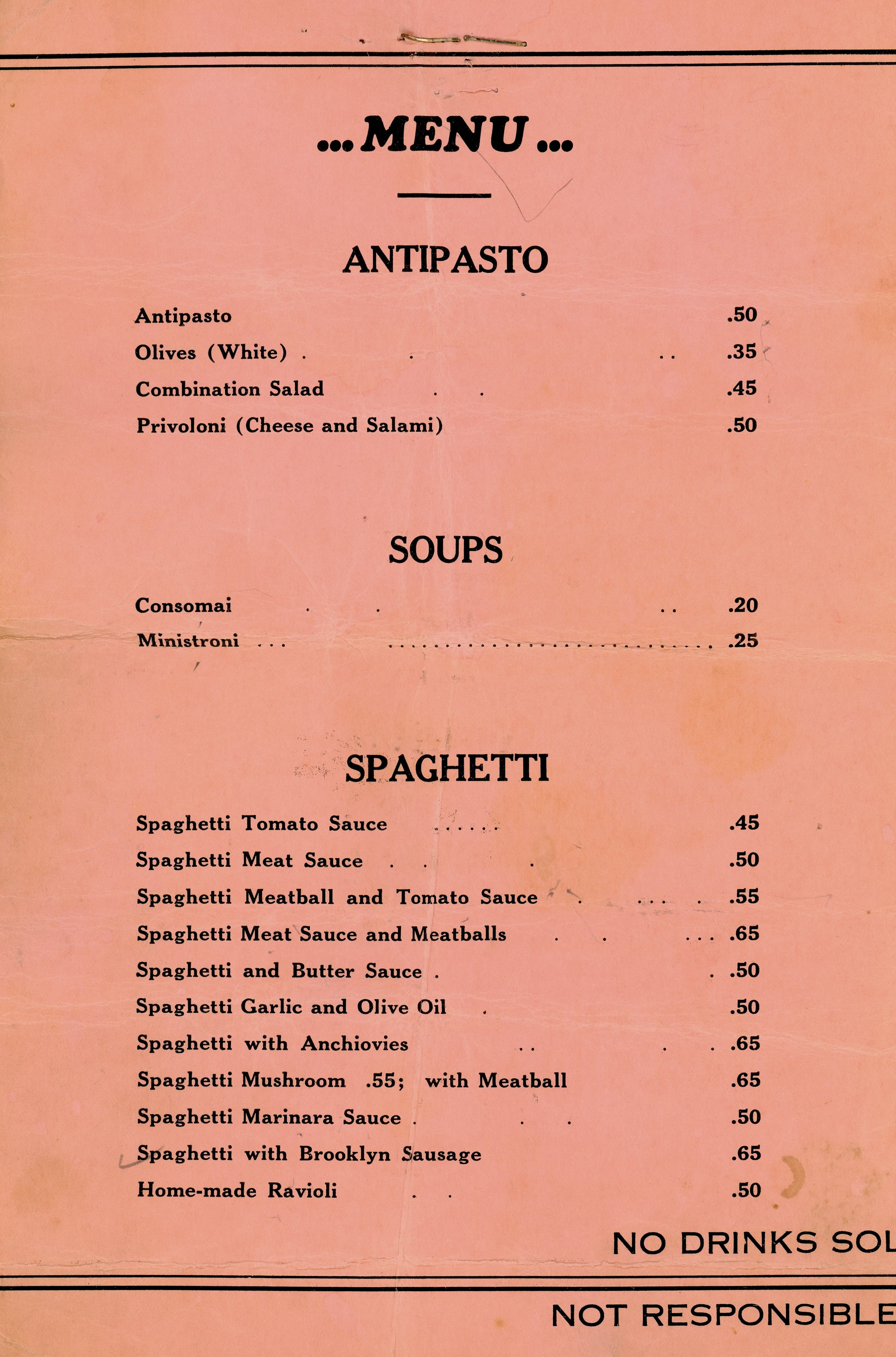
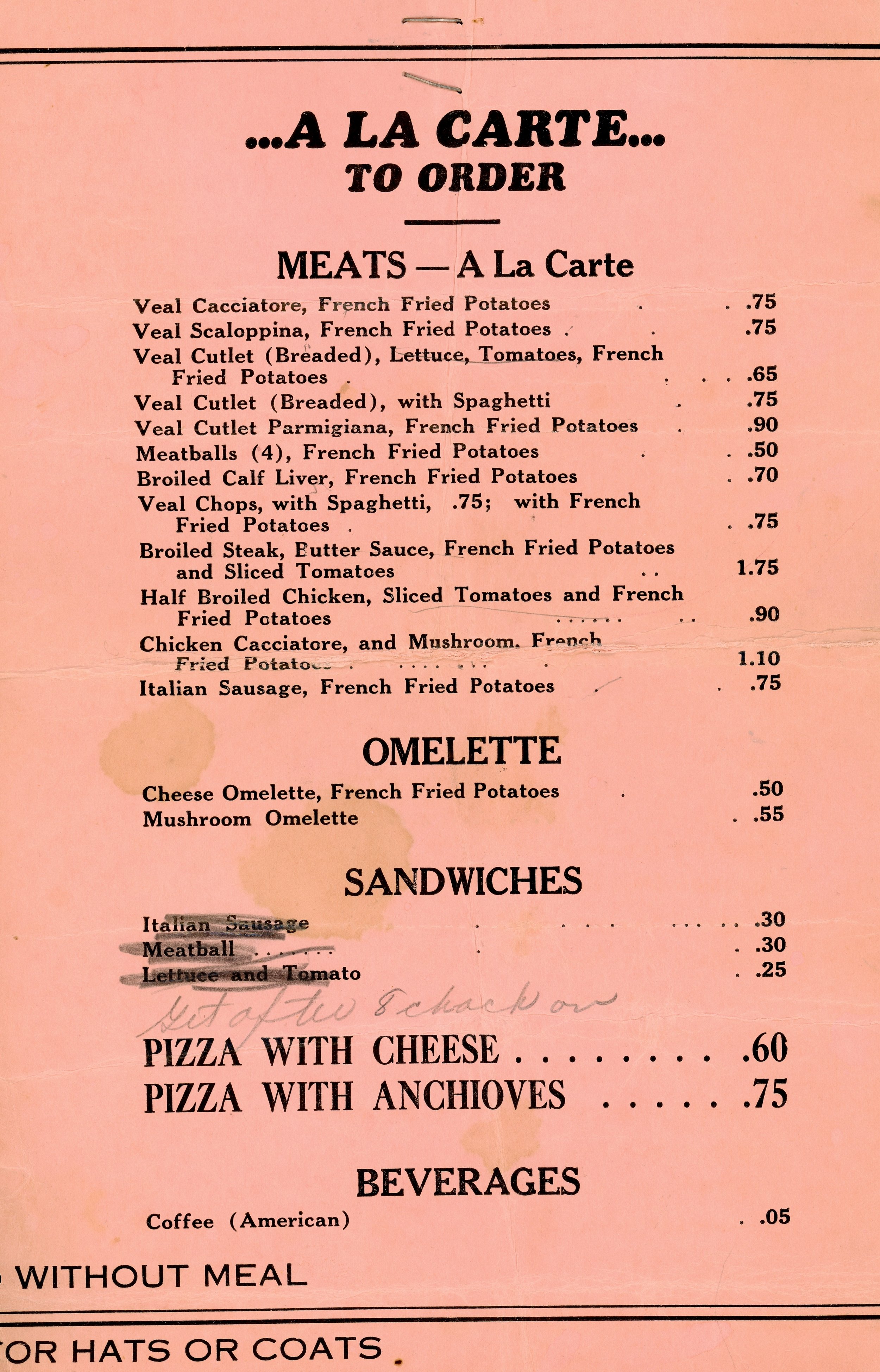
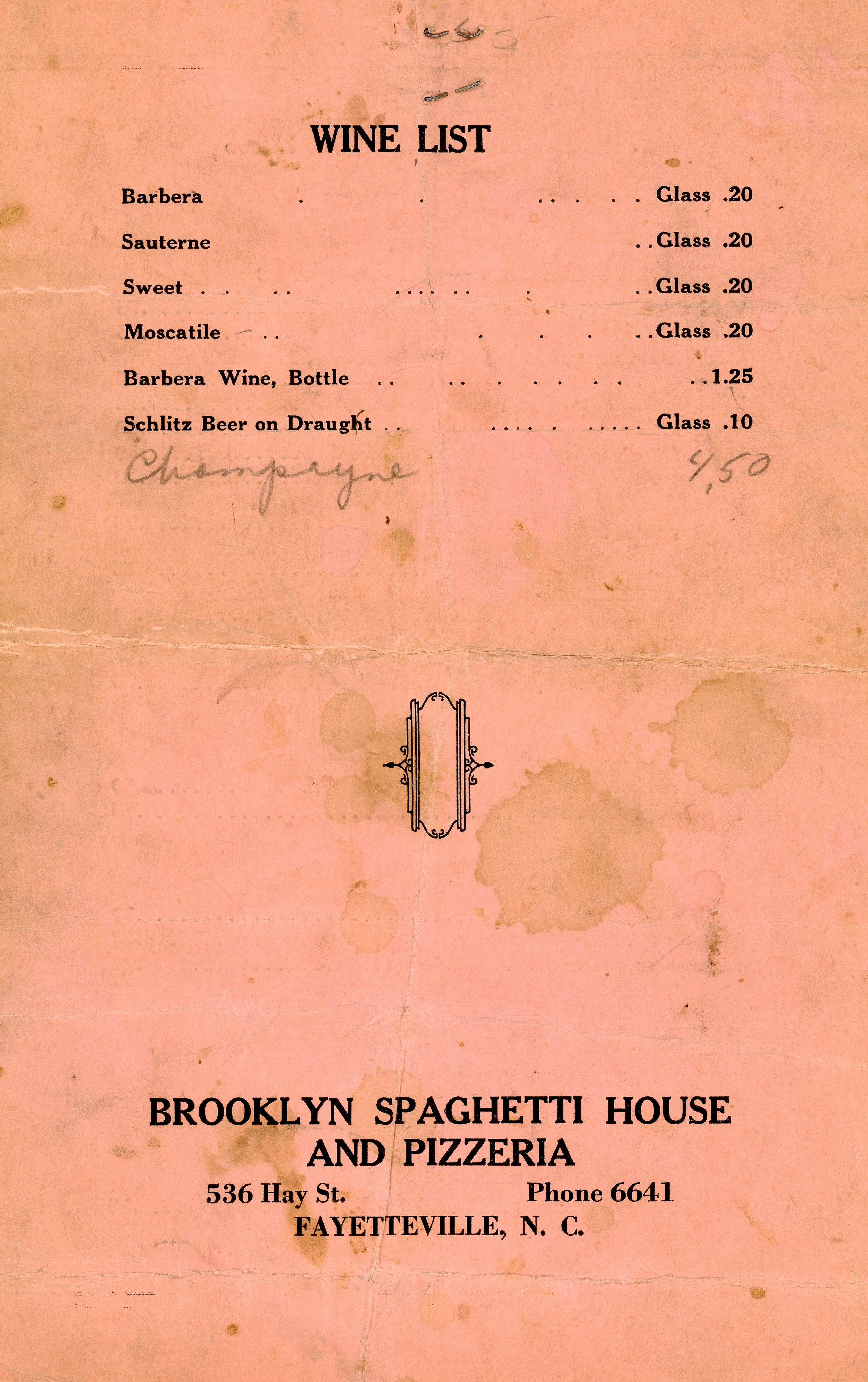
Brooklyn Spaghetti & Pizzeria - Fayetteville, North Carolina - 1943.
Presented in a slideshow fashion, and side controls to the next or previous image.
“Trails in the Sub Stratosphere”
“Thanksgiving Day Dinner in Italian Mud”
The Orange Garden officer’s club - Naples, Italy - October 1943.
Supplies pour ashore the Normandy Beach.
“It’s best not speak to paratroopers about saluting. They always ask where you got your boots.”
“A little chapel not far from Hell”
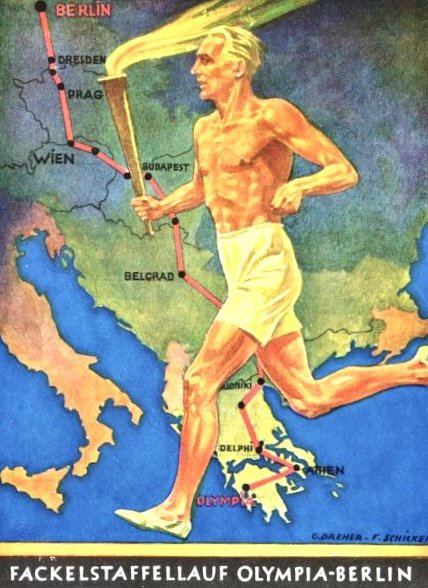

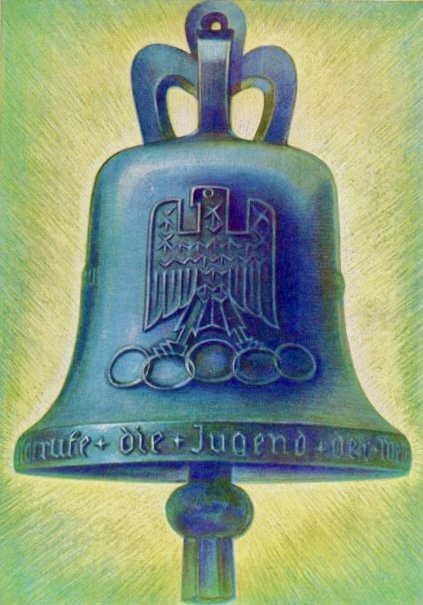
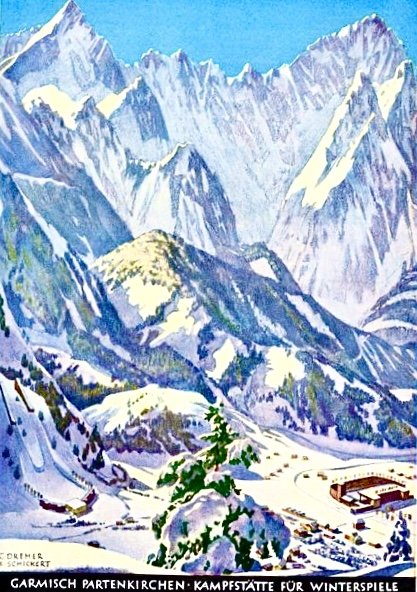
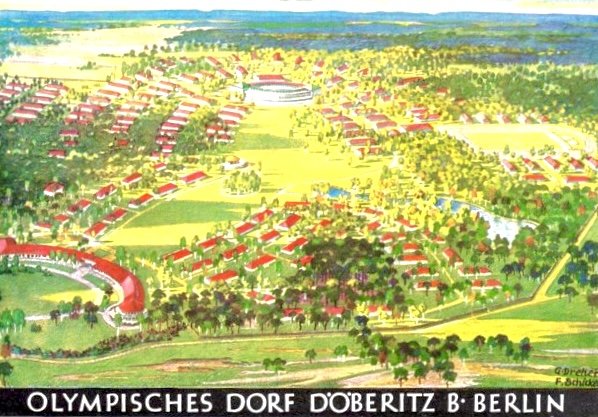
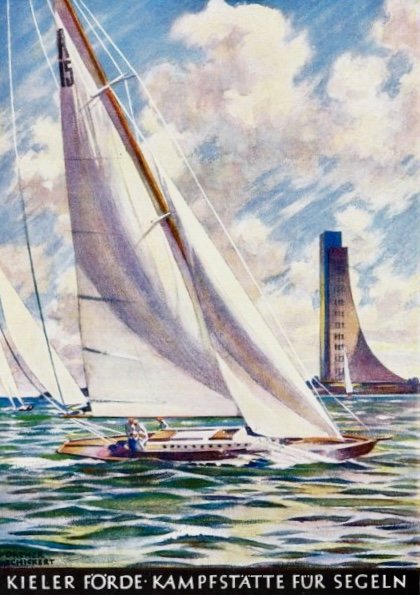

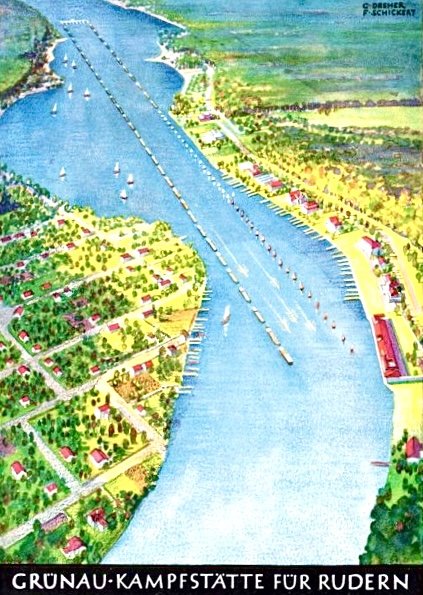
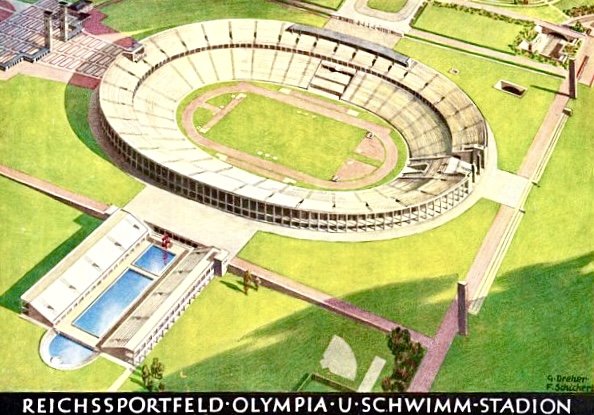
1936 Olympics - Germany - Postcards
Presented in a slideshow fashion, and side controls to the next or previous image.
Courtesy of the Mahlon Sebring Family.
Nijmegen, Holland
Crossing the Rhine River - 1945.
1944 American Red Cross Map of Paris
Map of Paris - places to see - general information
American Red Cross Clubs and locations - Paris, France - 1944.
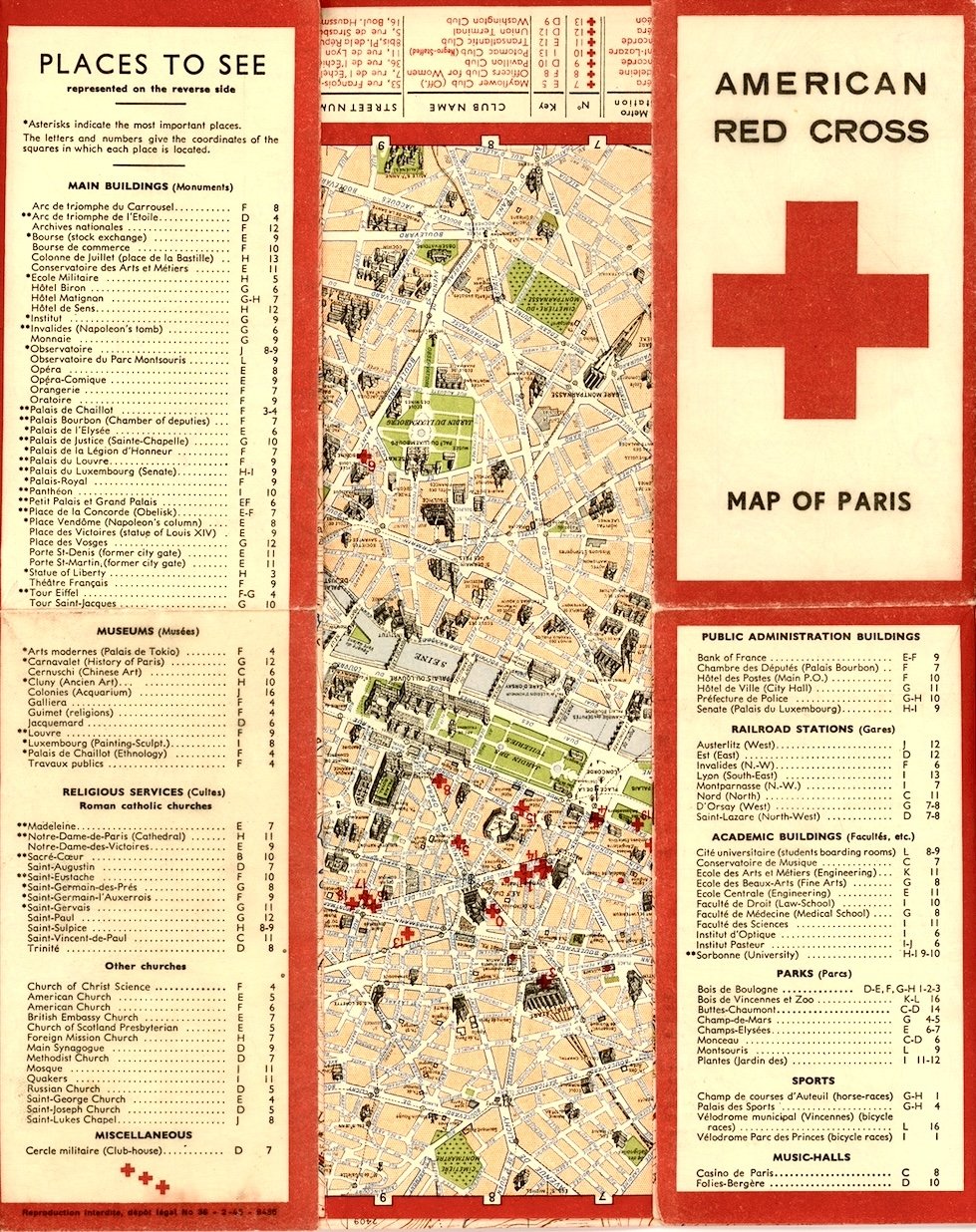
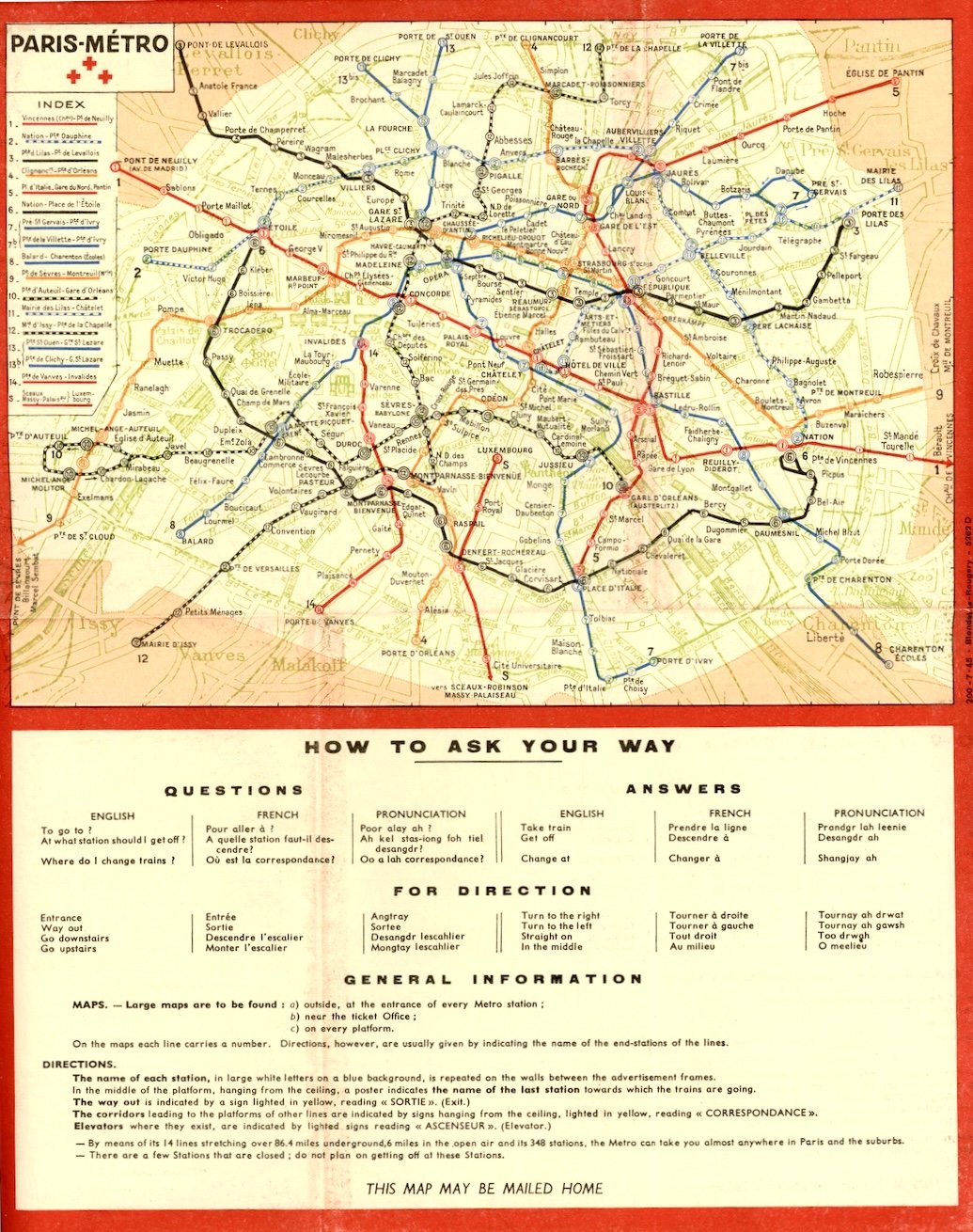
Soldier’s Language Guide to North Africa
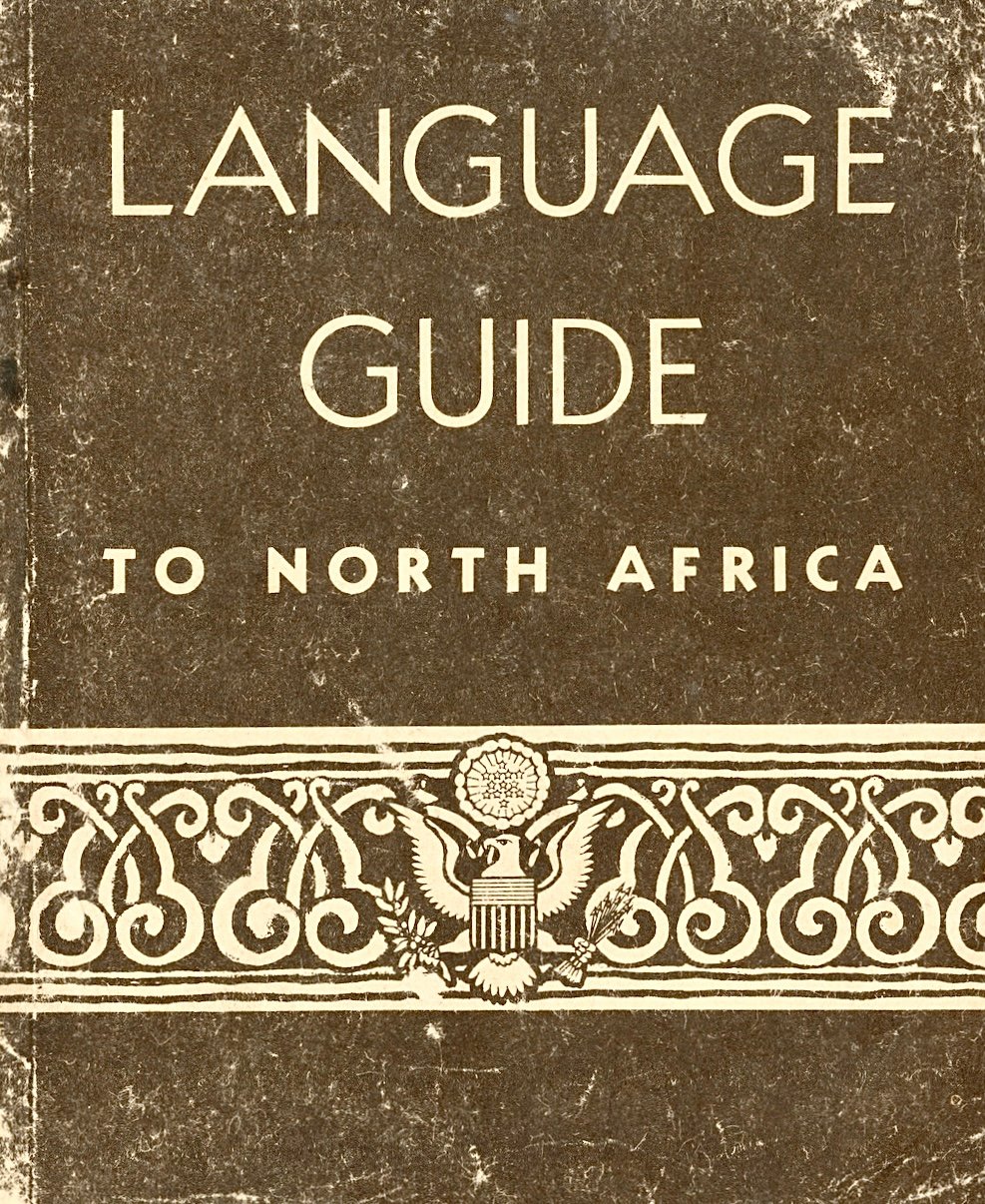
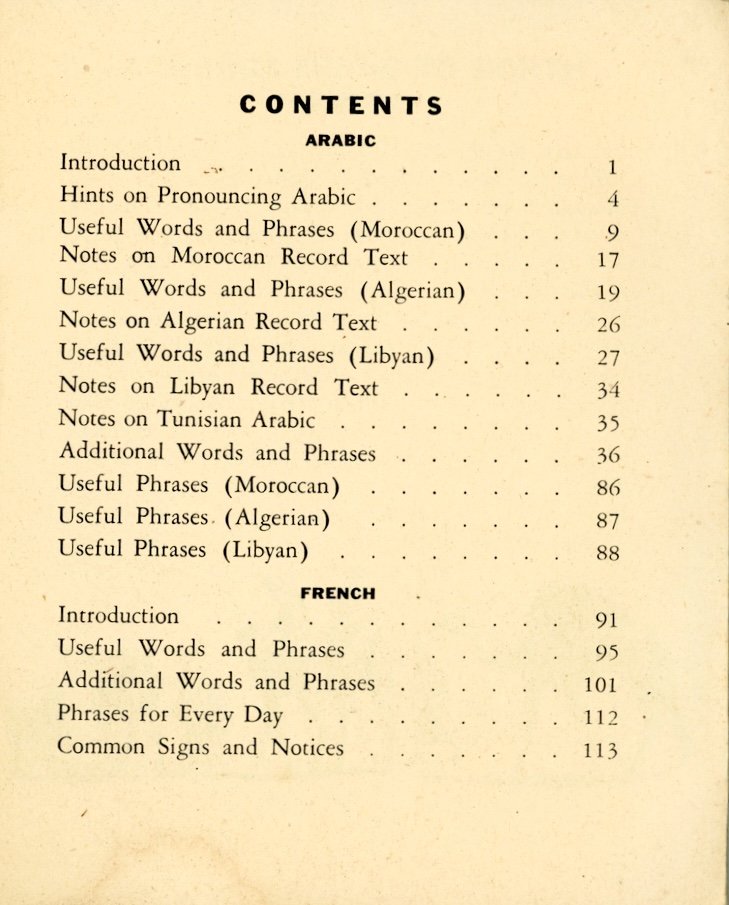
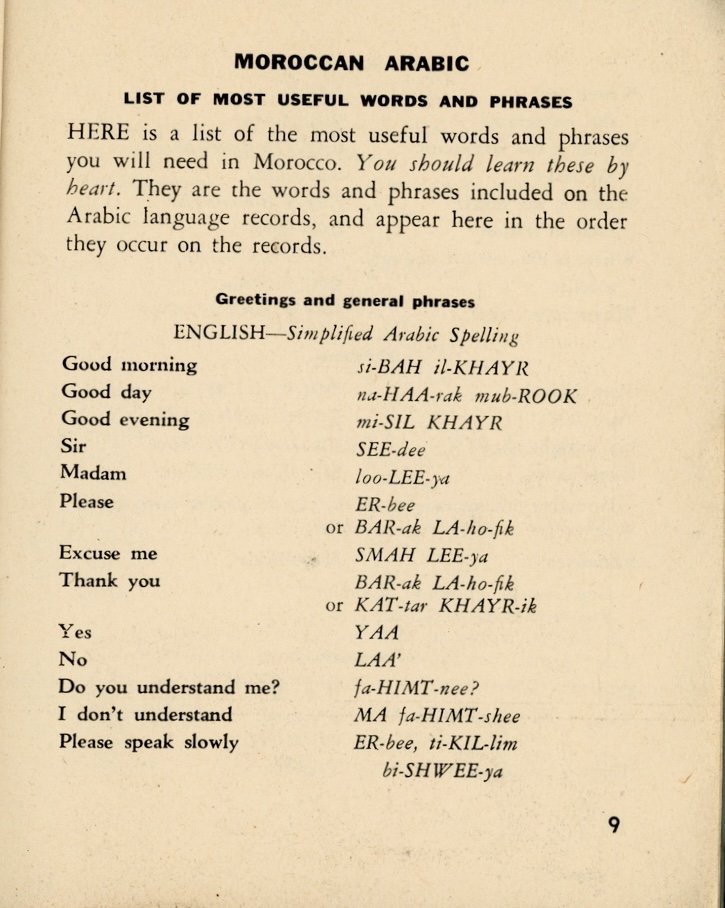
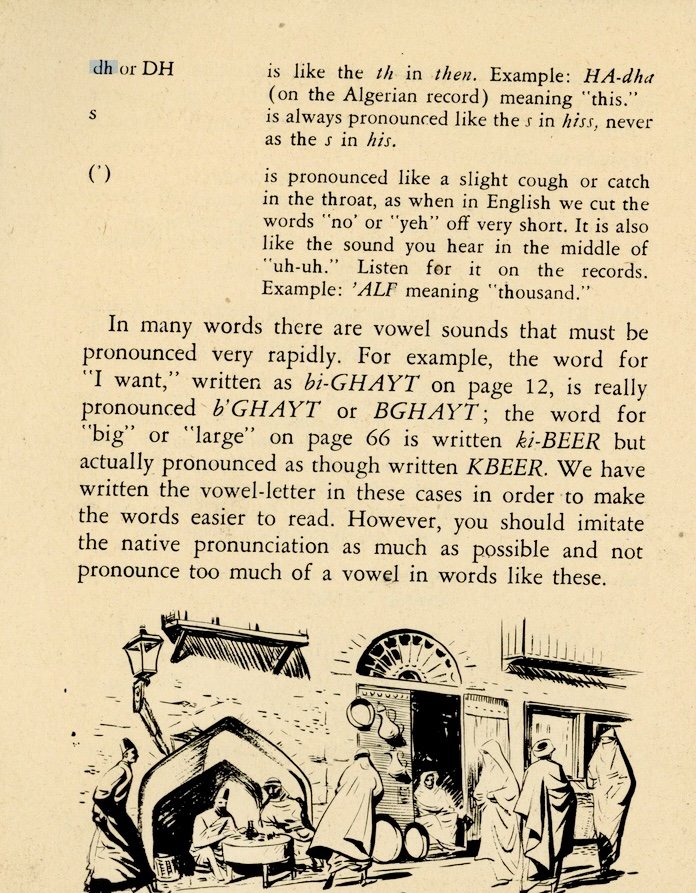
Soldier’s Pocket Guide to Paris and cities of France
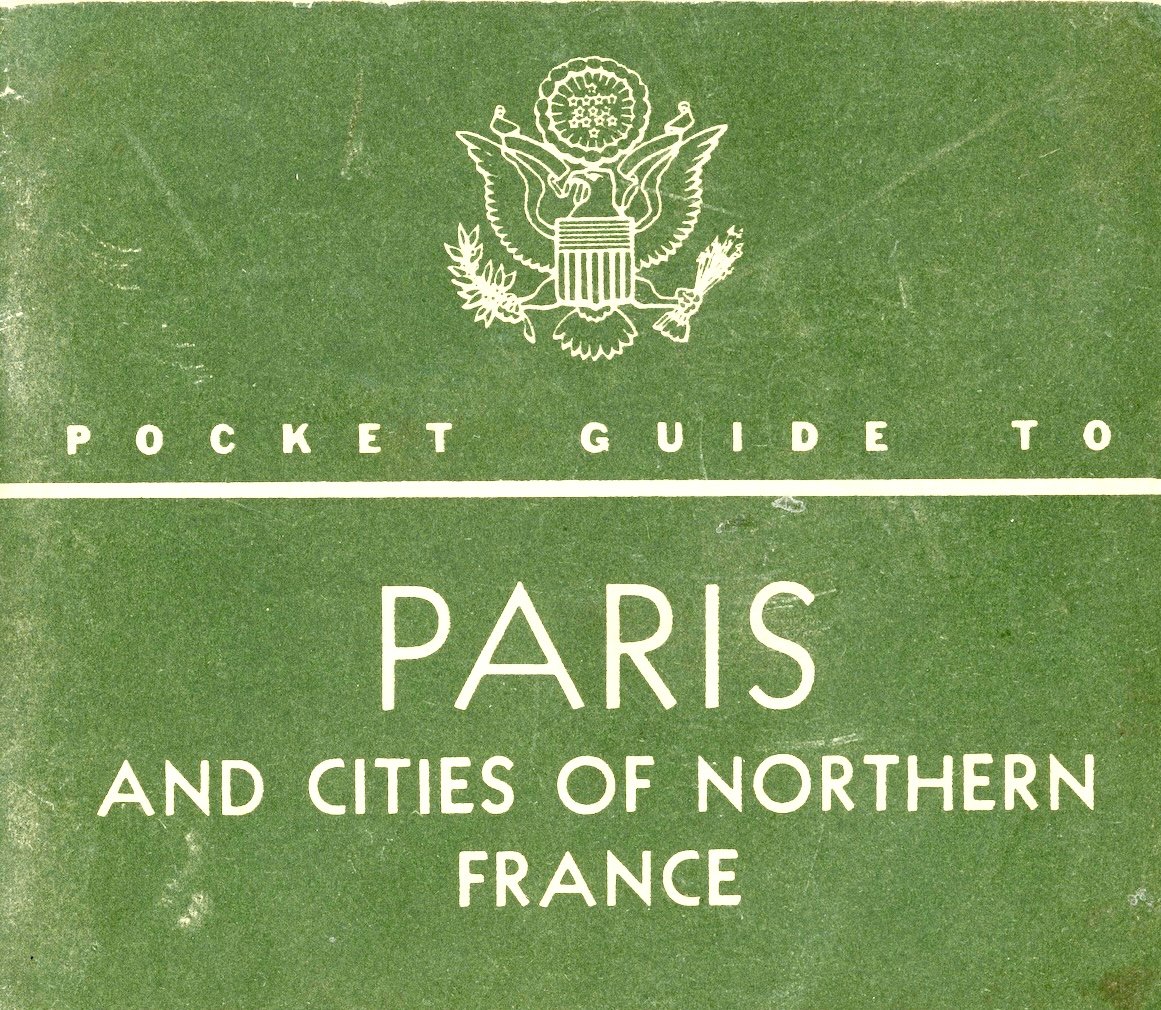
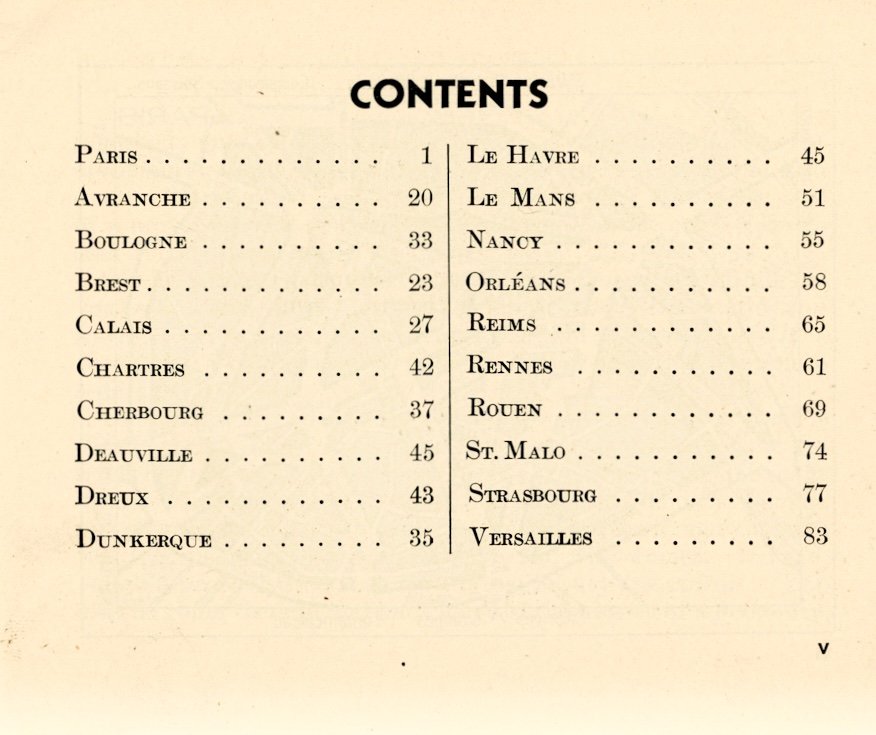
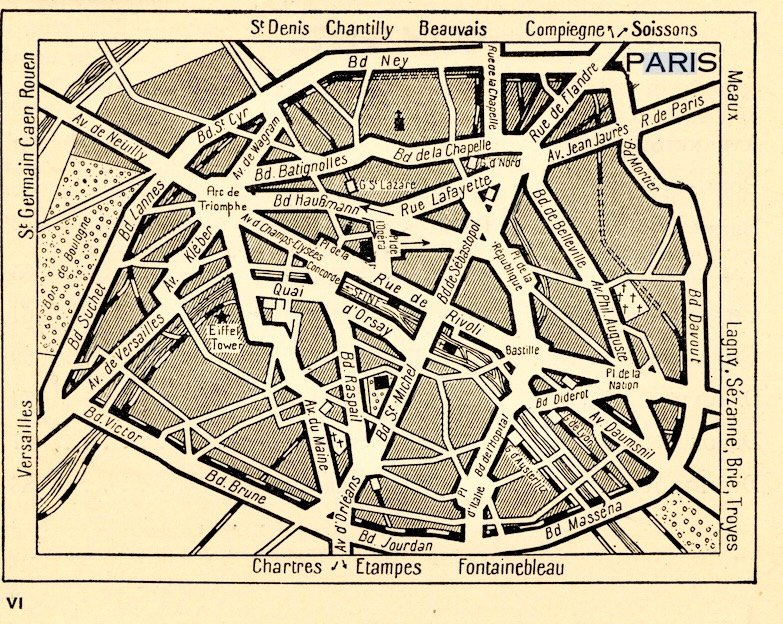
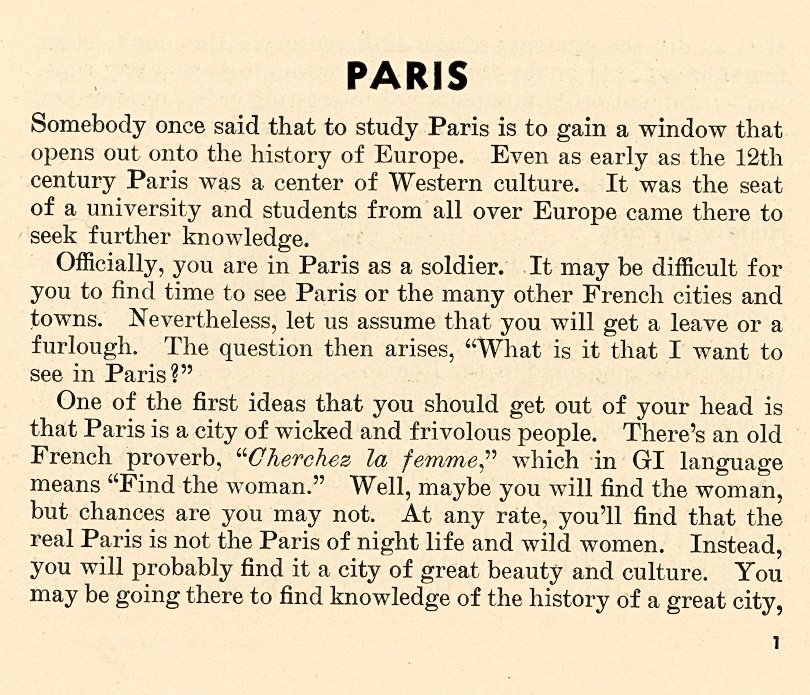
Firearms, Cameras, Flags, Rugs, Helmets, Bayonets, Trench Art and other Hardware
German Luger with rare 6 inch long barrel (left) and standard Luger semi-auto pistol.
Courtesy of the Andrew Hawkins Family
Enemy flag signed by B-Battery soldiers presented to Private Steve Zwerko while recovering from serious wounds received during the D-Day glider landing near Ste. Mere Eglise, France.
Courtesy of the Jasick Family
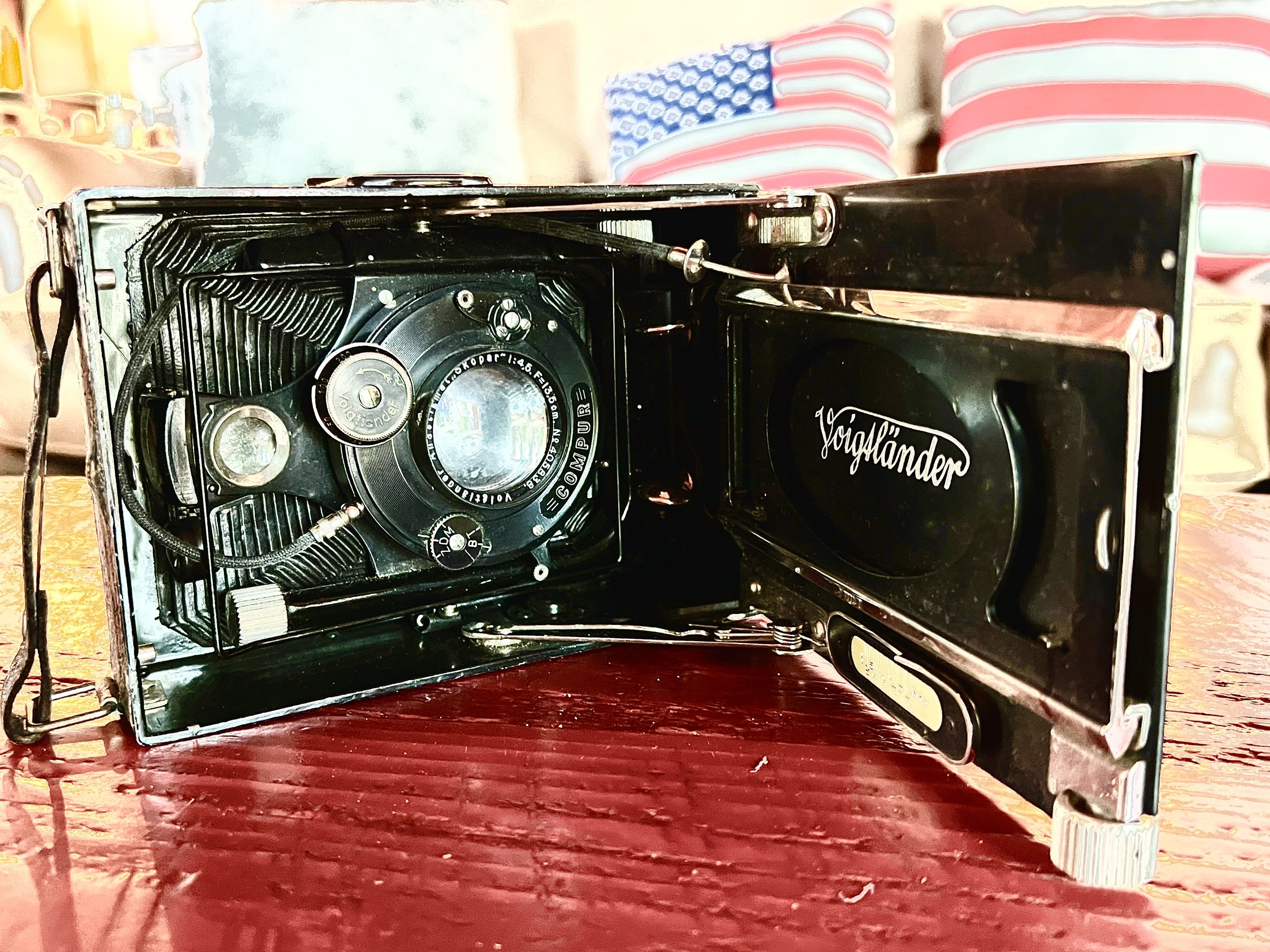
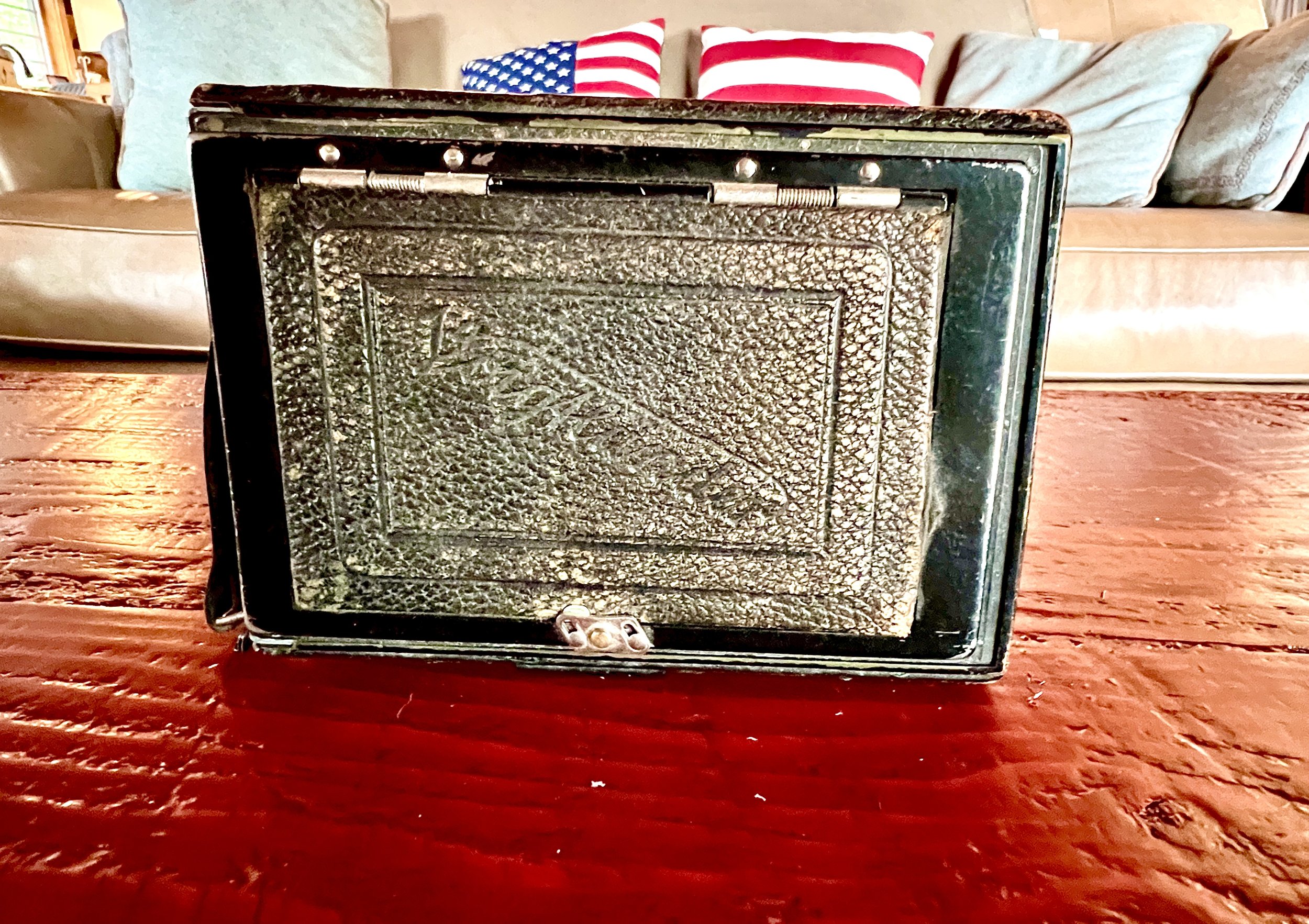
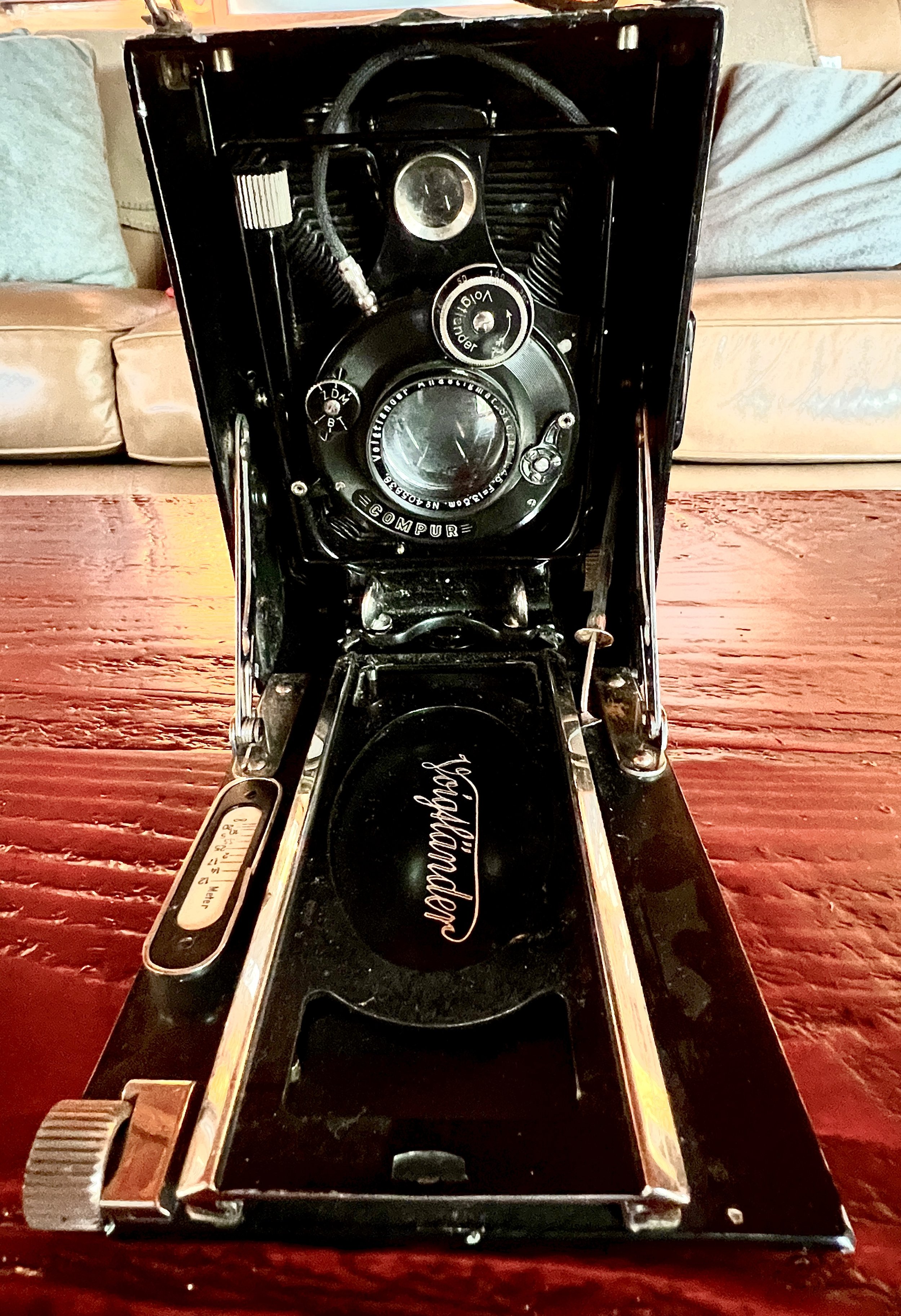

German WWII Voigtlander folding bellows camera
Presented in a slideshow fashion, and side controls to the next or previous image
Courtesy of the Pachmayer Family
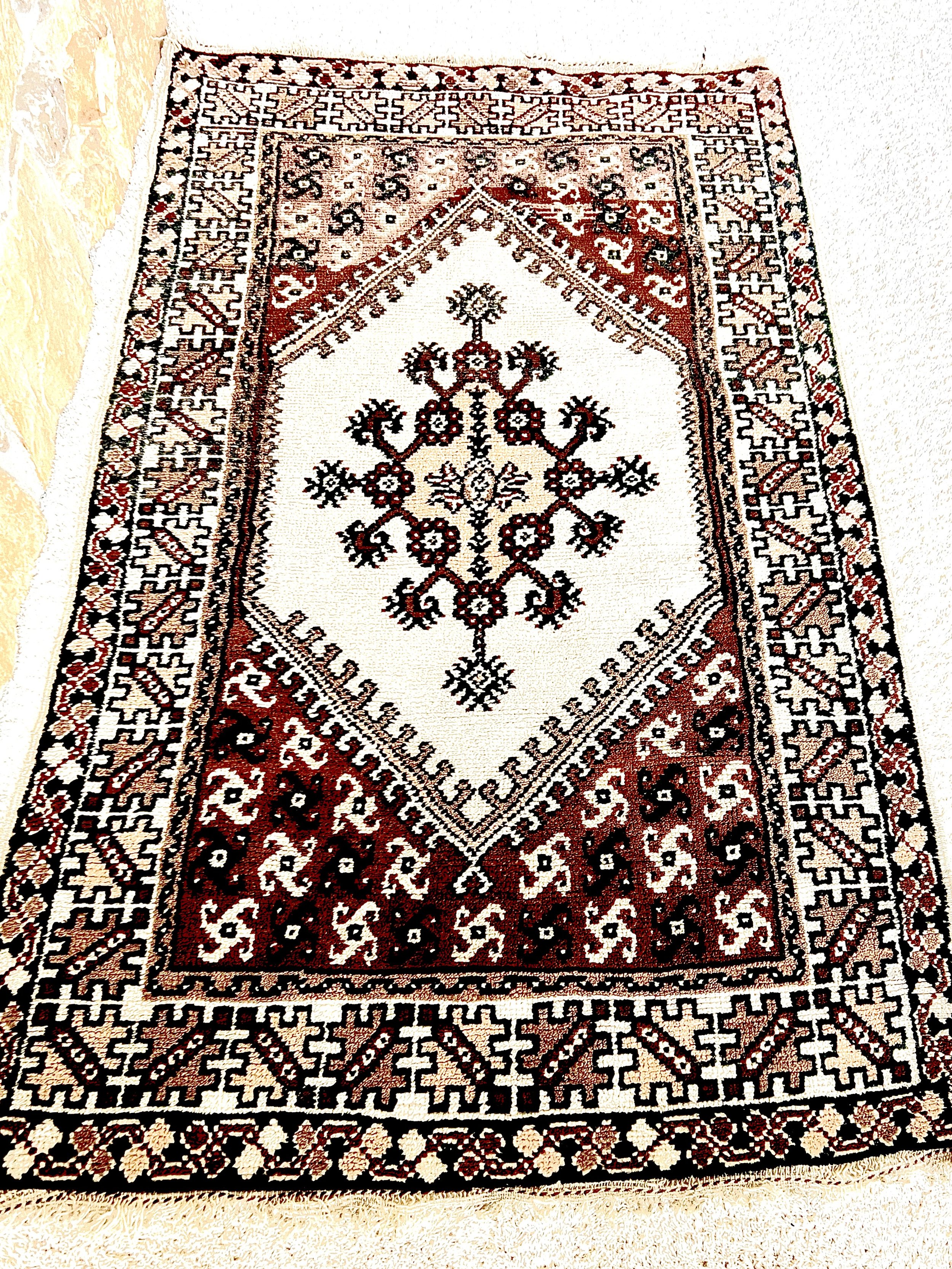
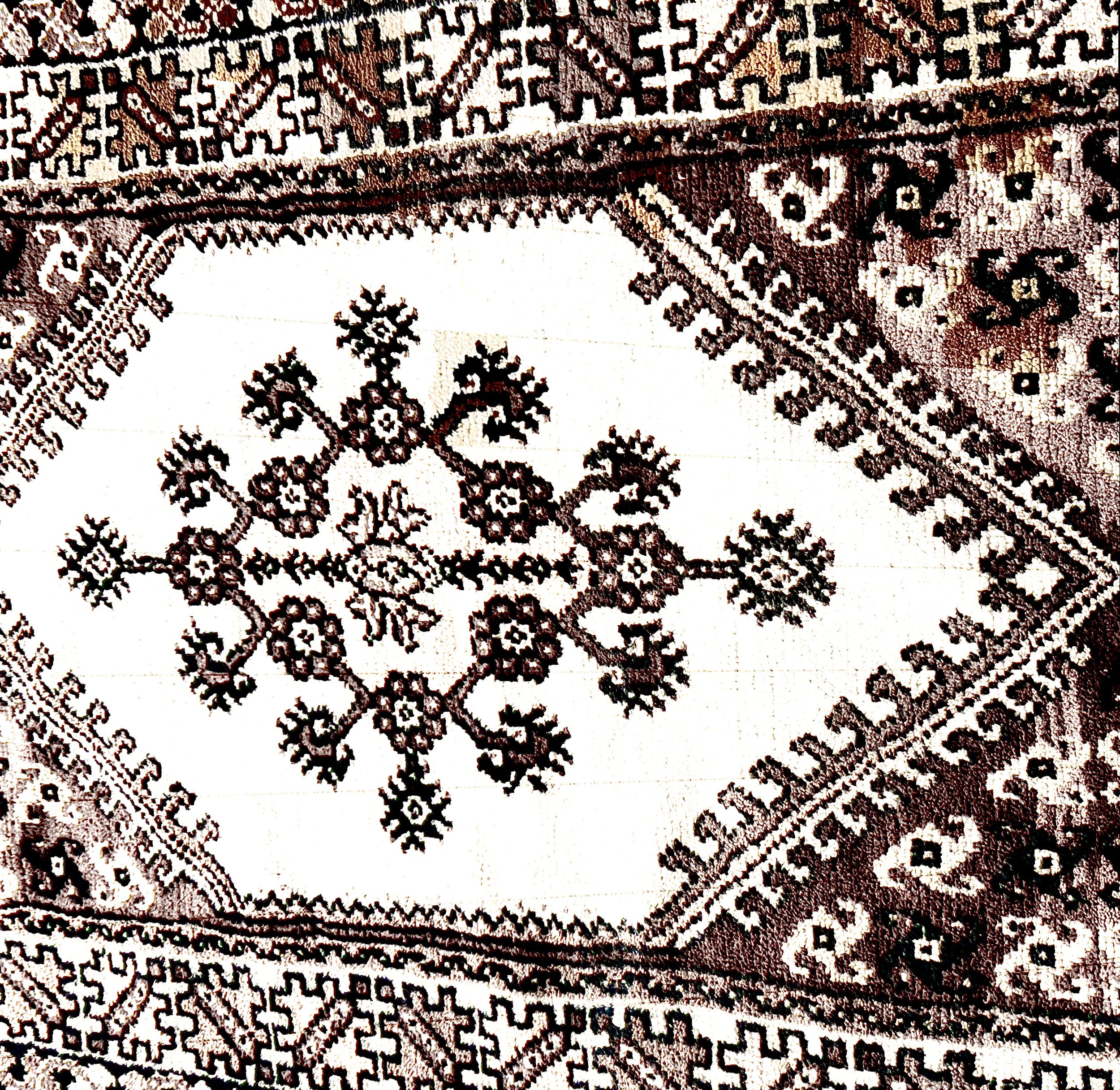
Hand Woven Rug from North Africa - 1943
Courtesy of the Connelly-Harris Family
U.S Army bayonet and brass knuckle handle for a 1918 trench knife
Czech Brno 8mm Mauser rifle.
Courtesy of the Mahlon Sebring Family
Beretta 9mm - 1942 semi-auto pistol

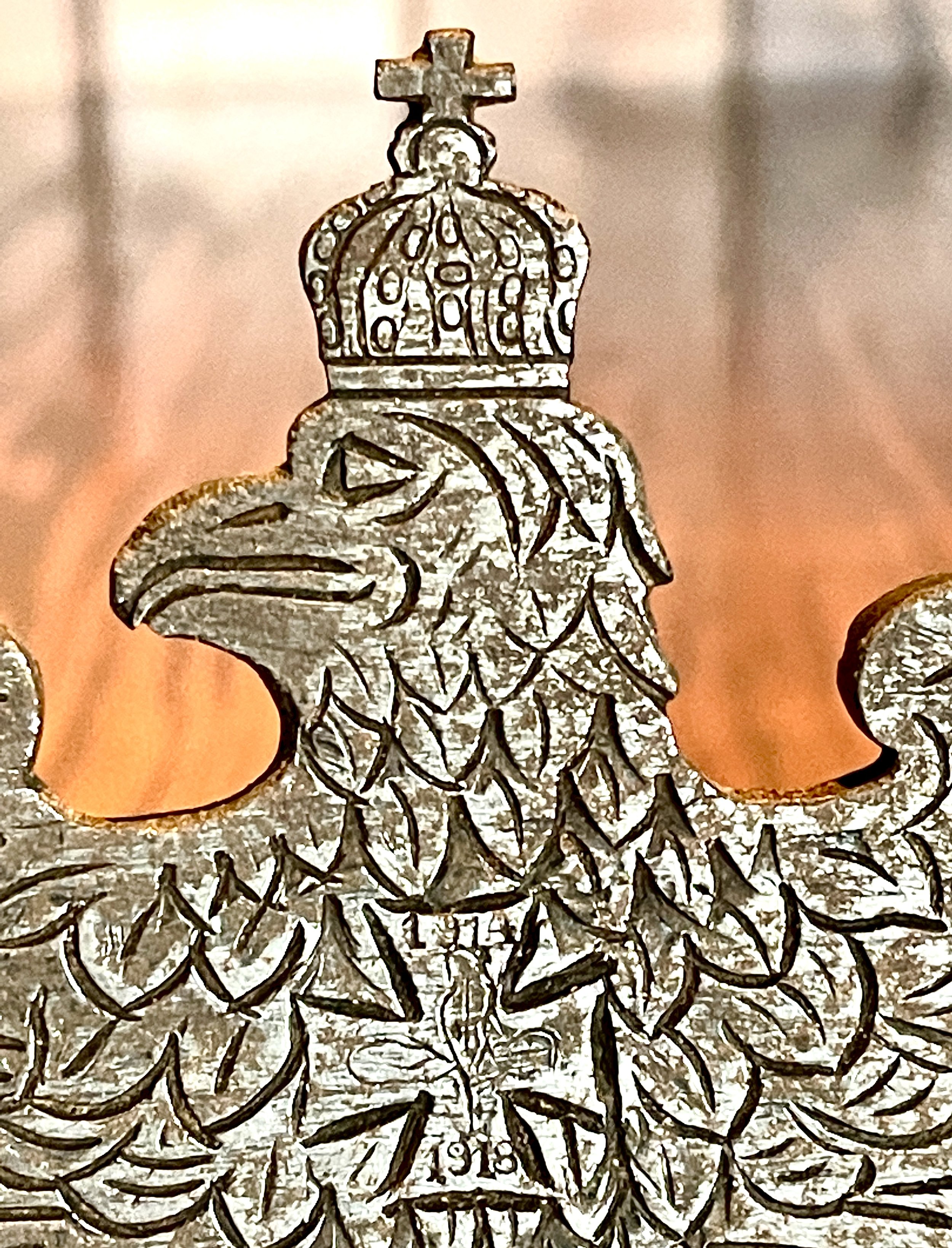
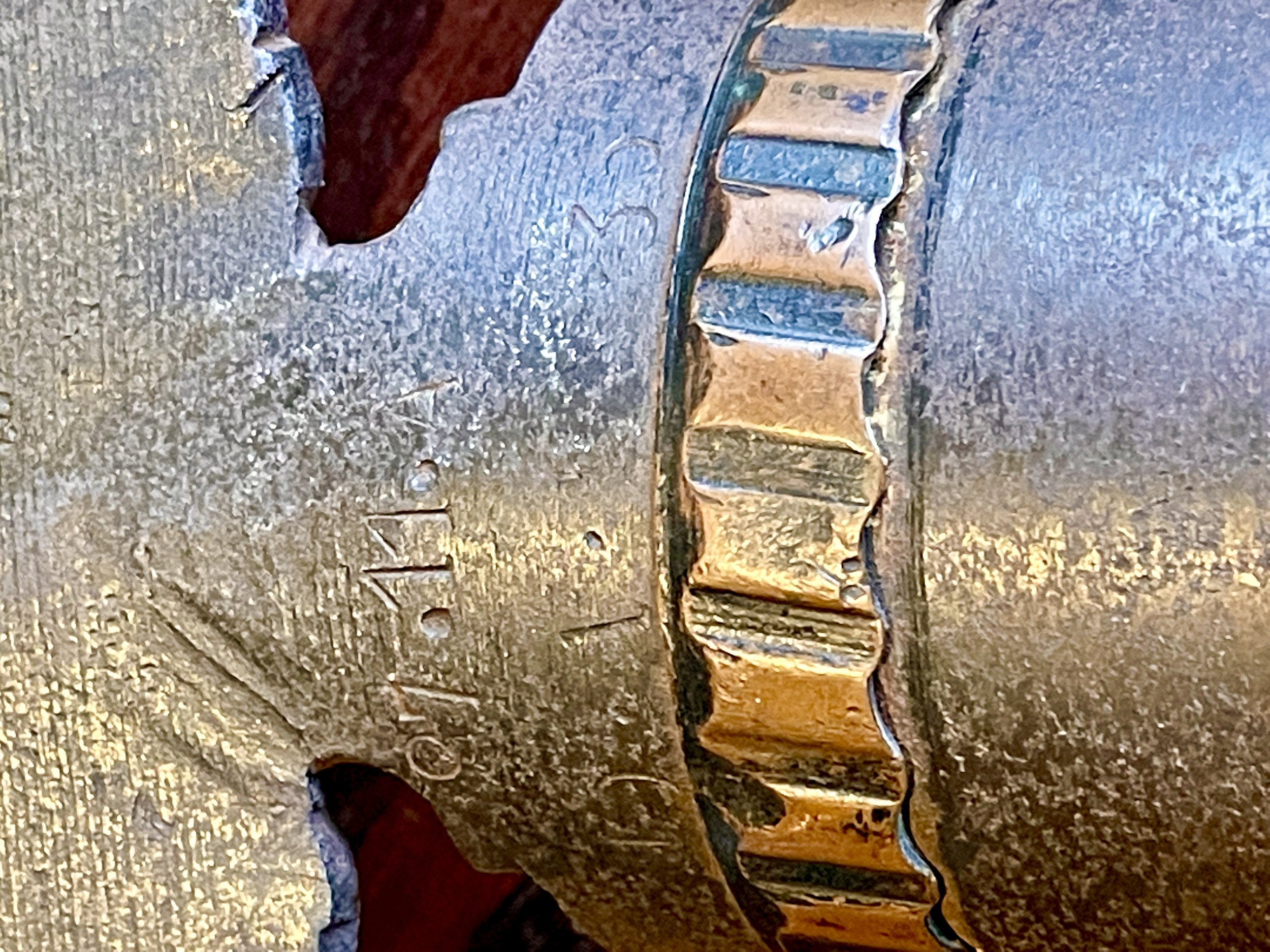
German Army WW1 Trench Art
Courtesy of the Pongracic Family
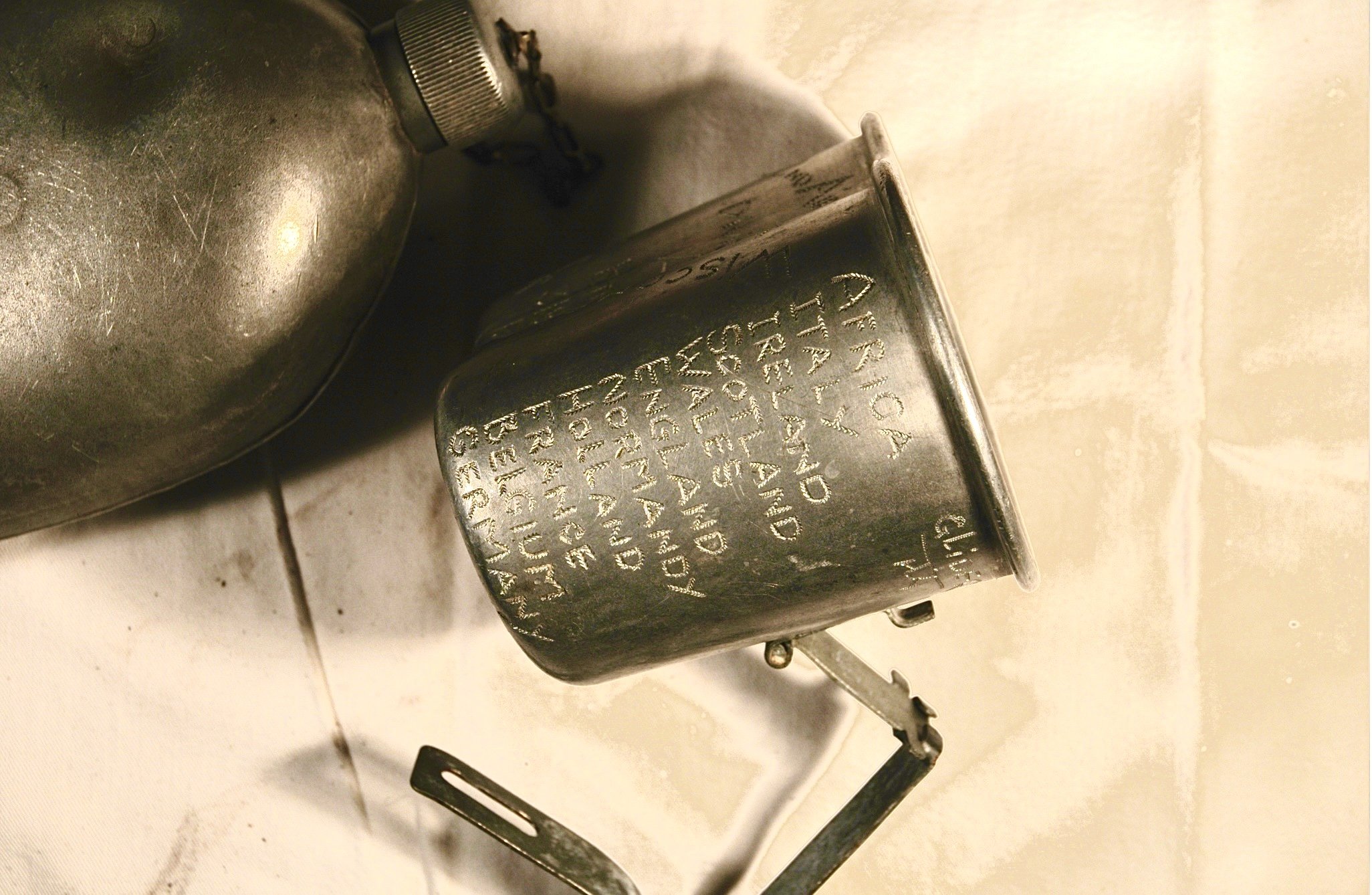
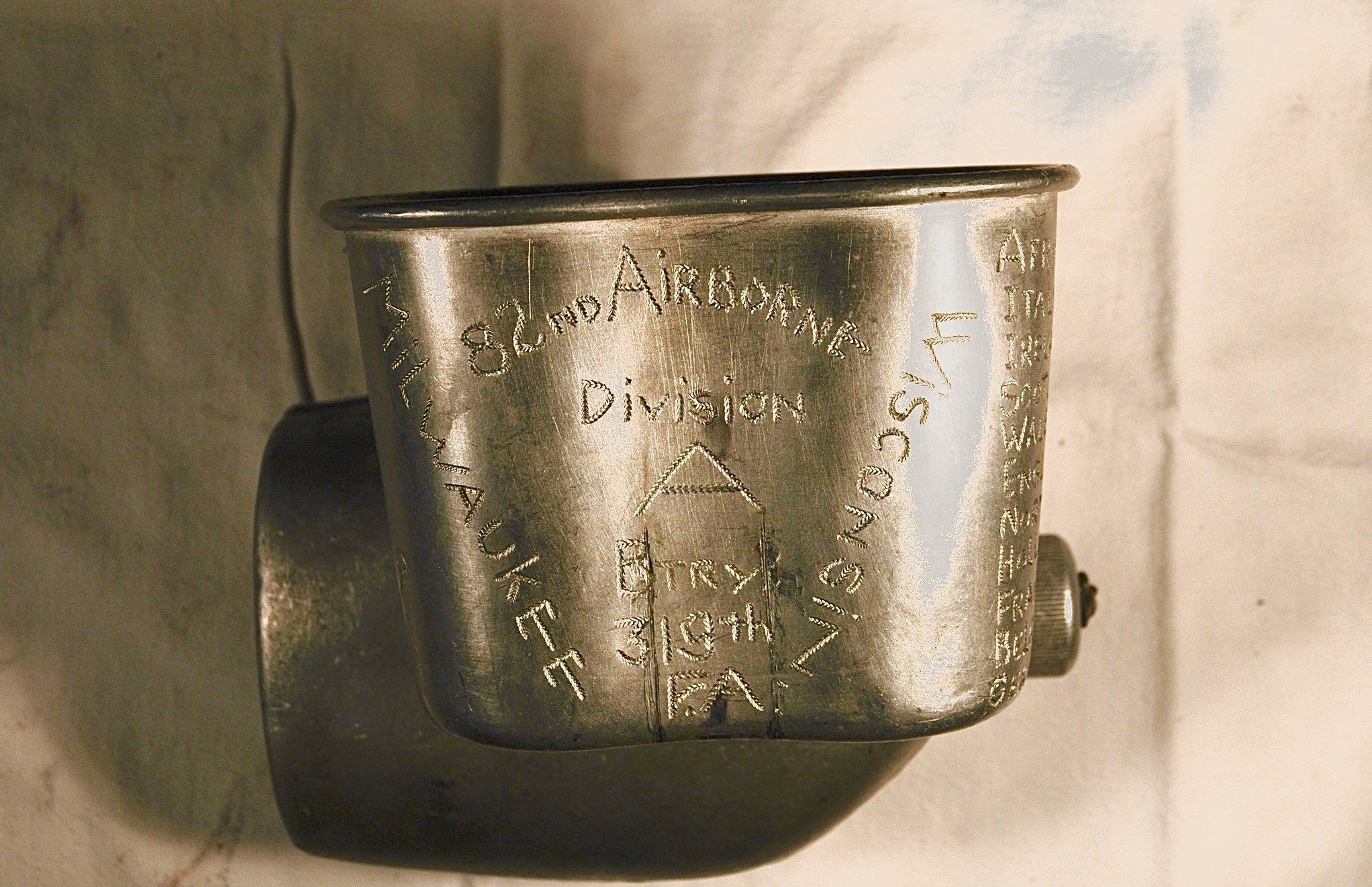
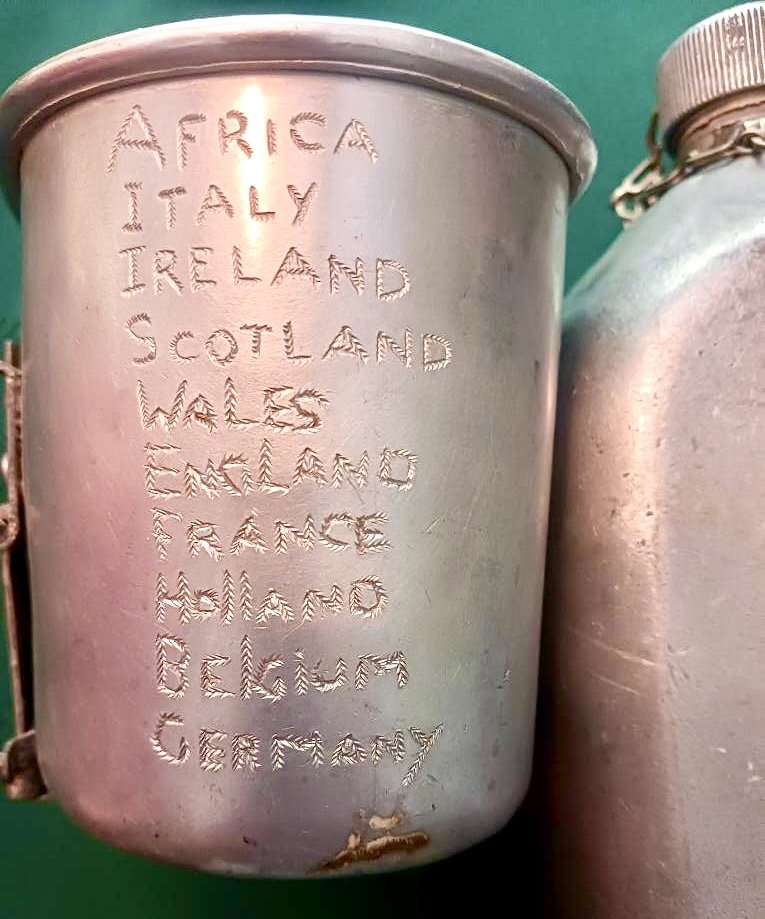
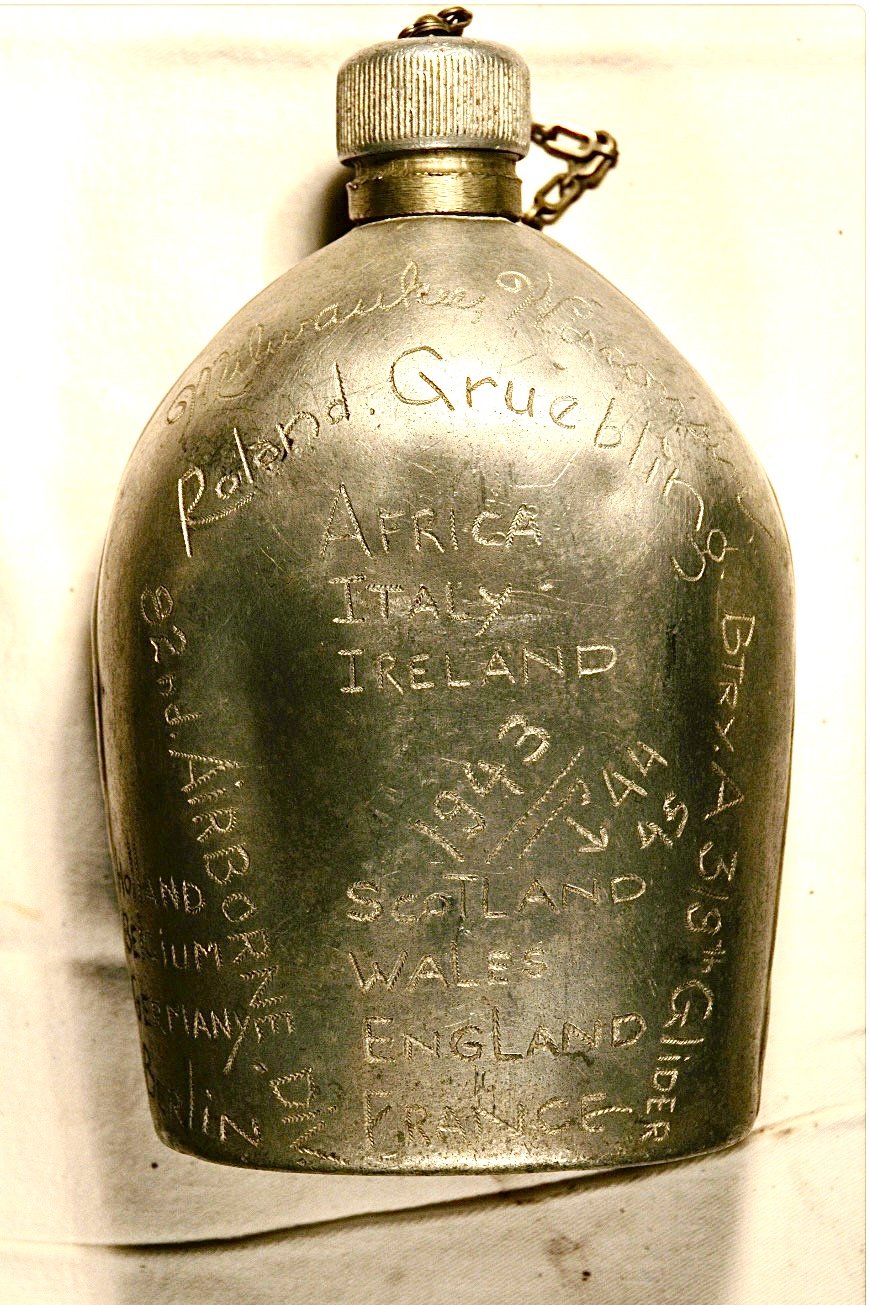
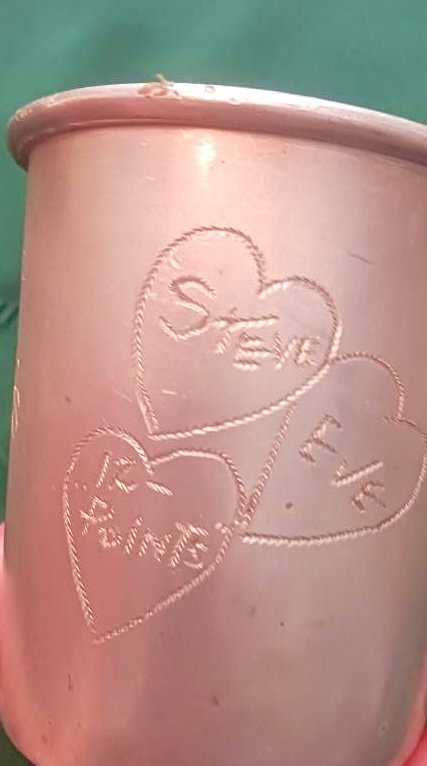
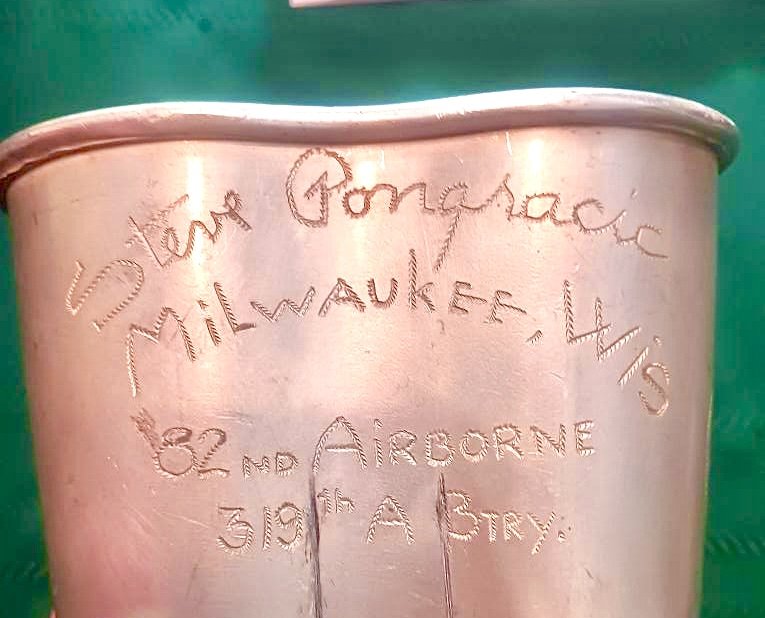
Canteen & Mess Kit Etching
Courtesy of the Pongracic Family


